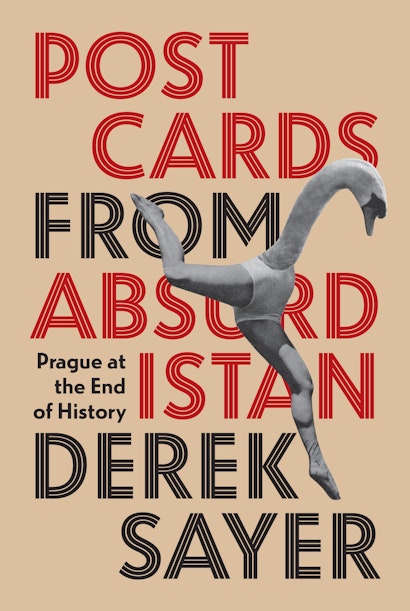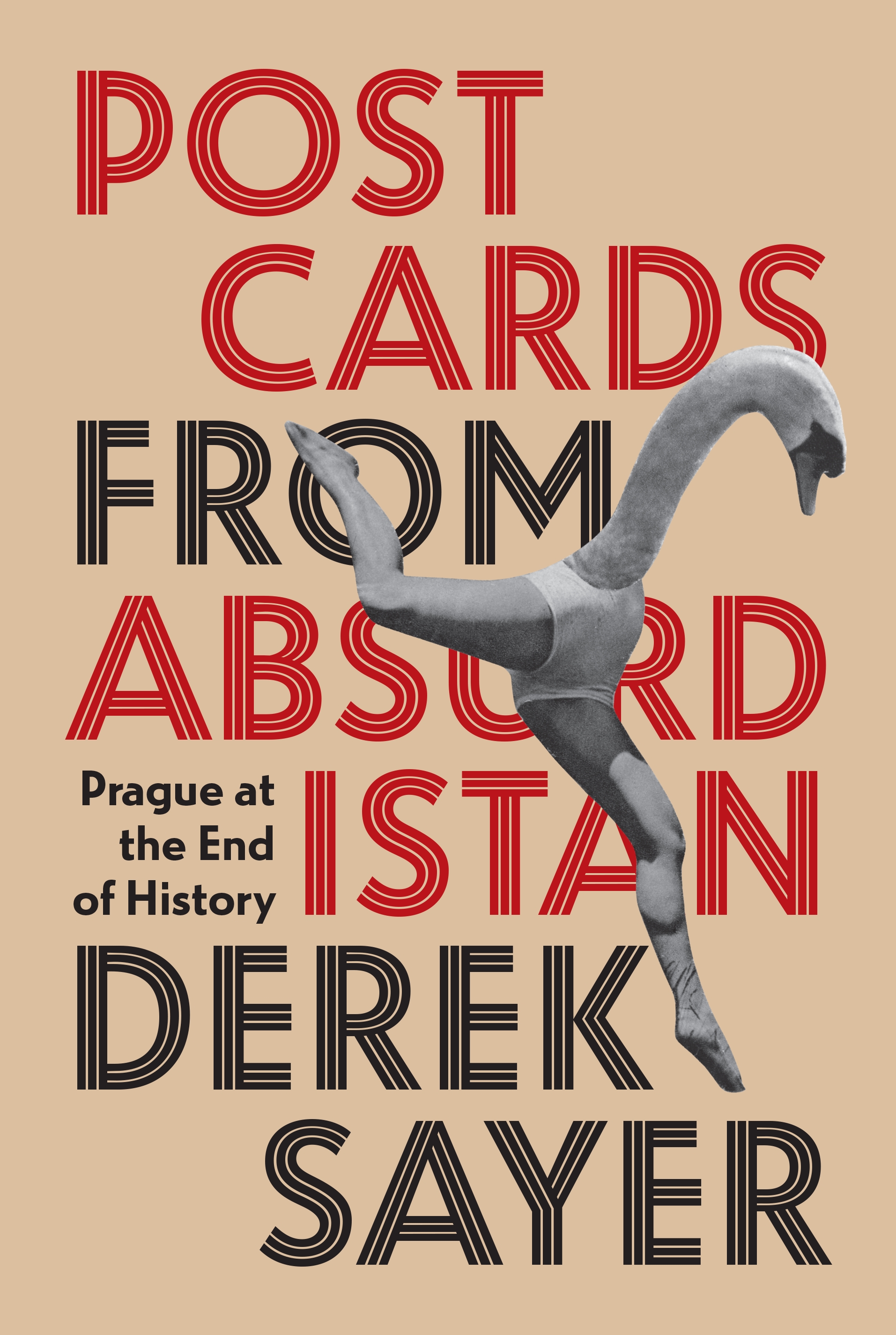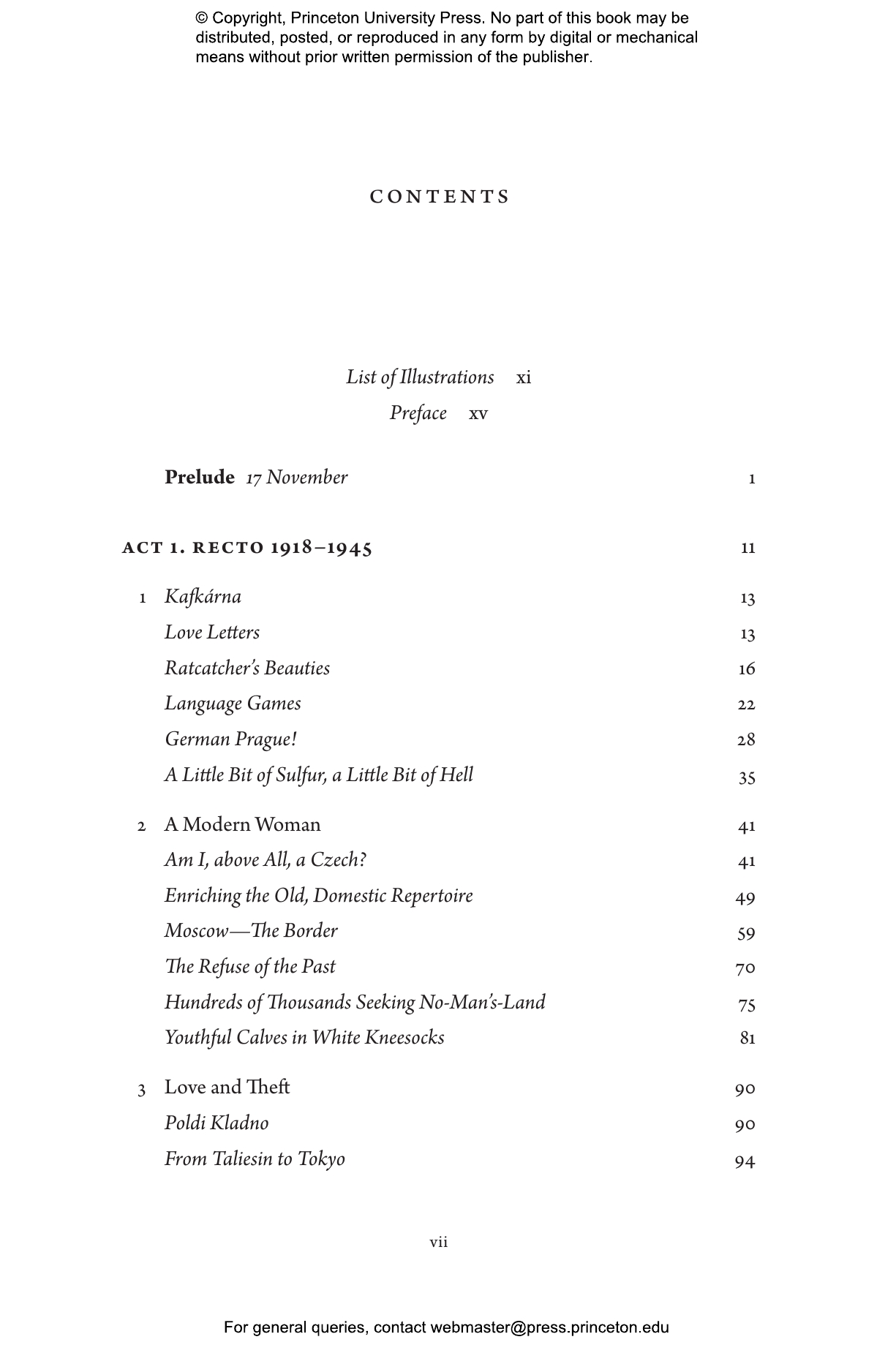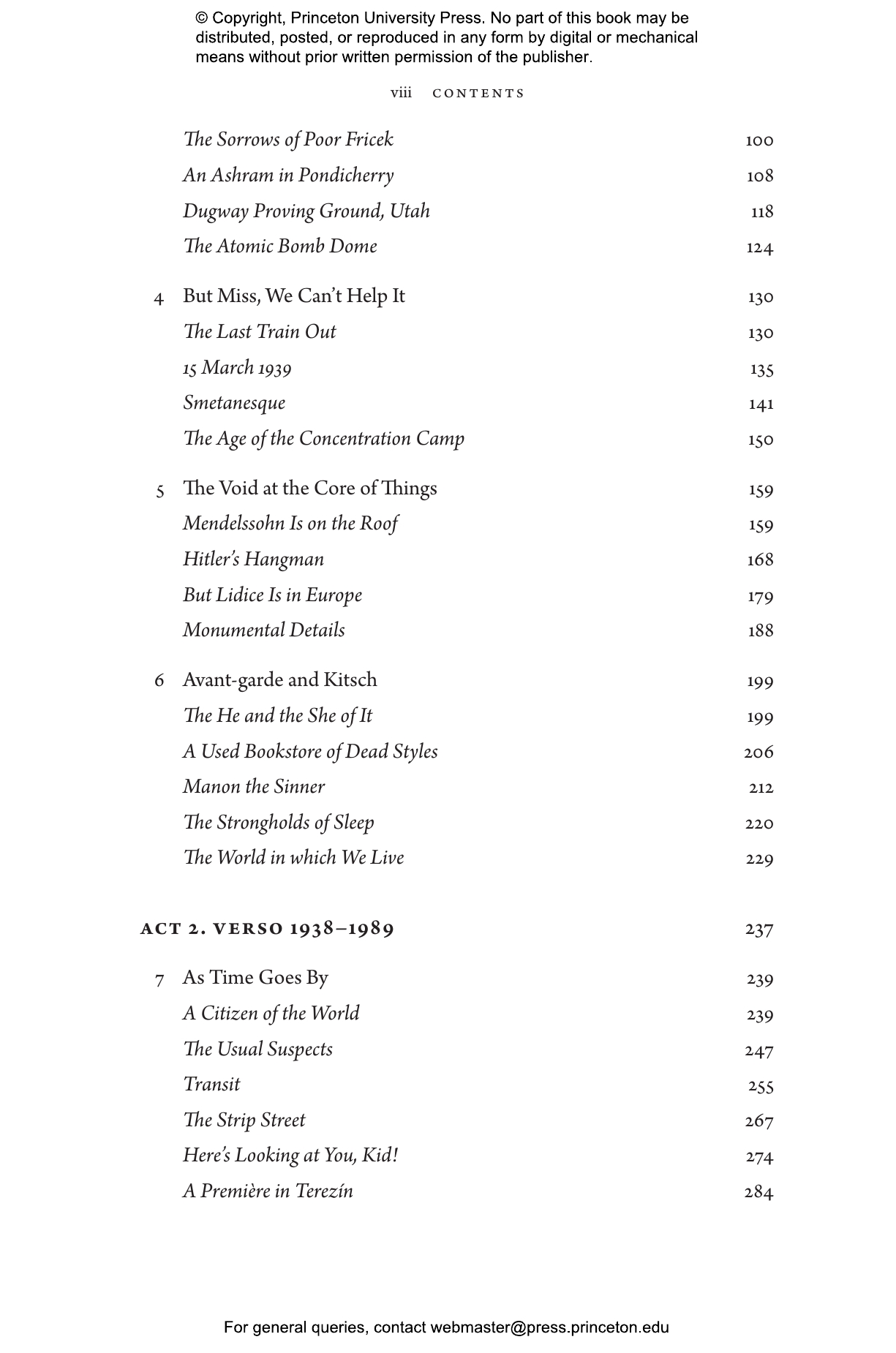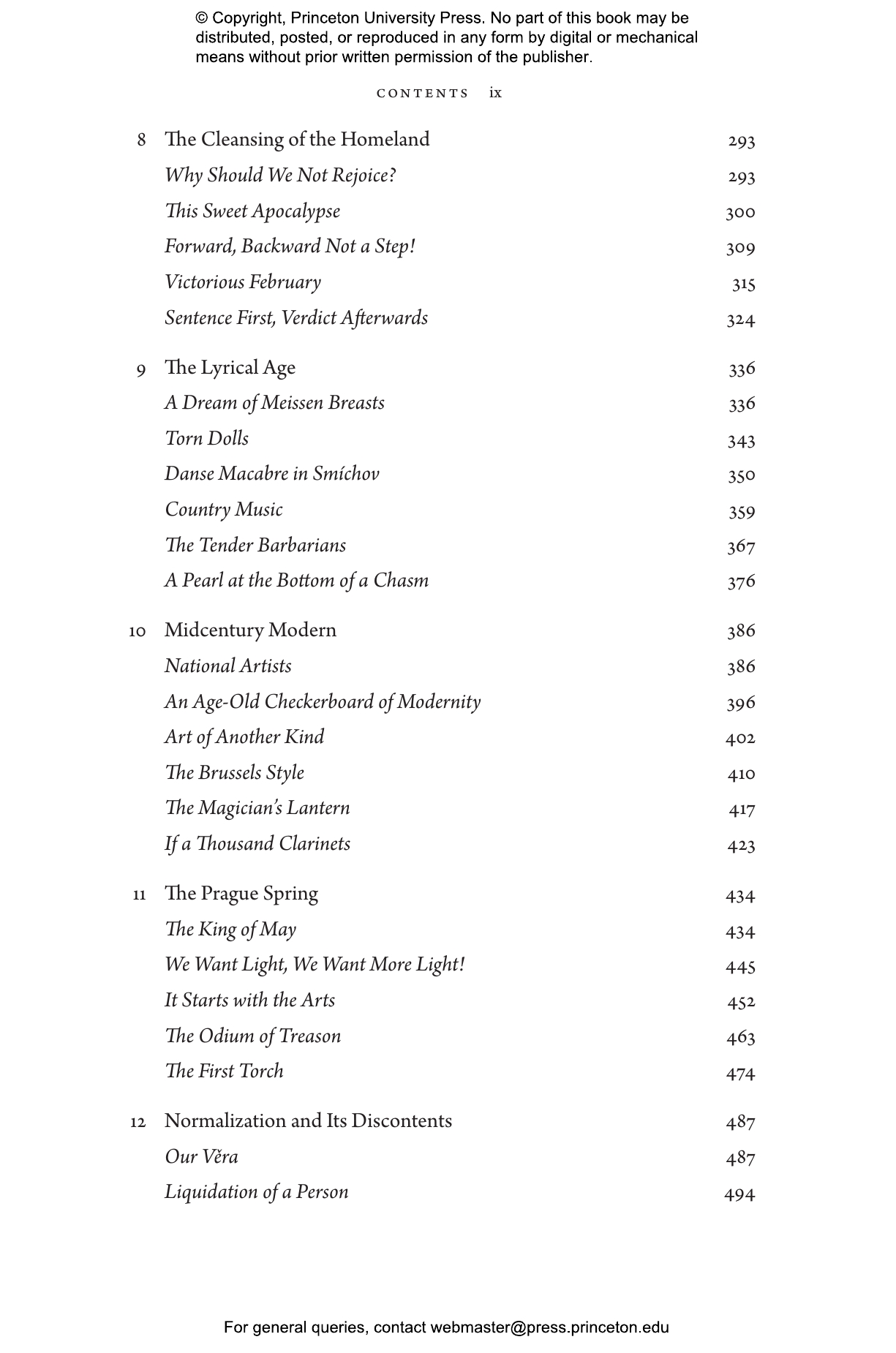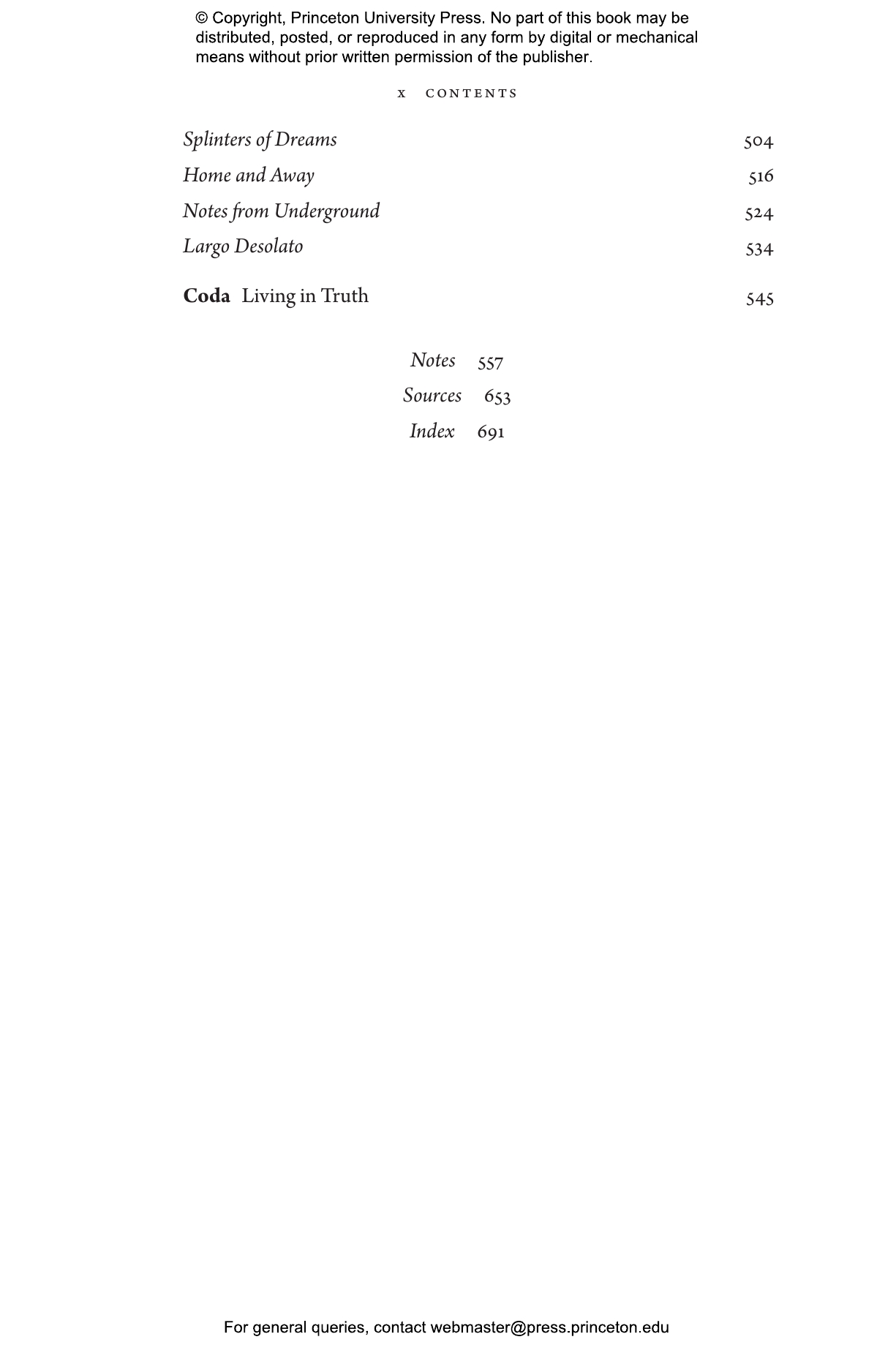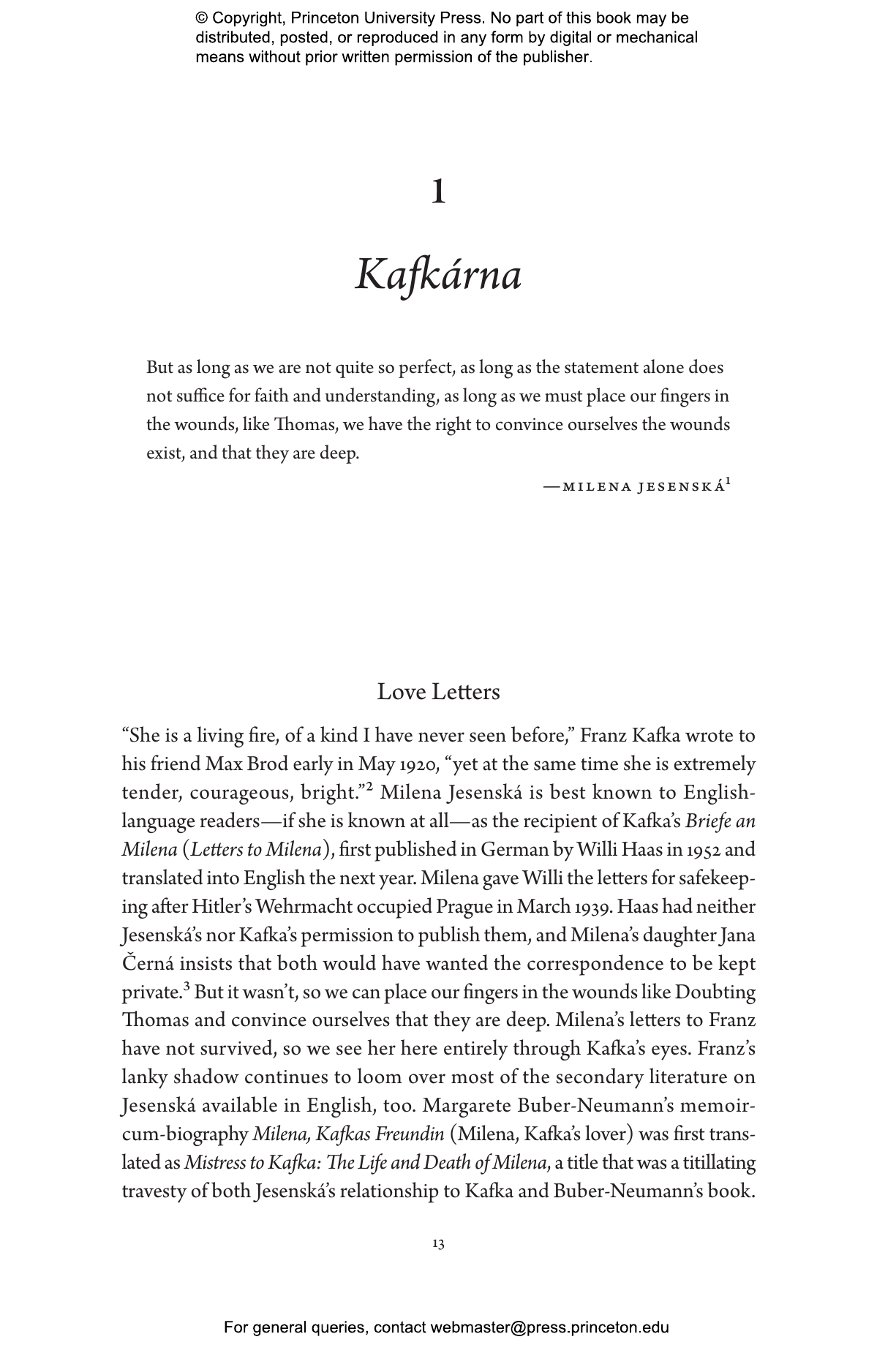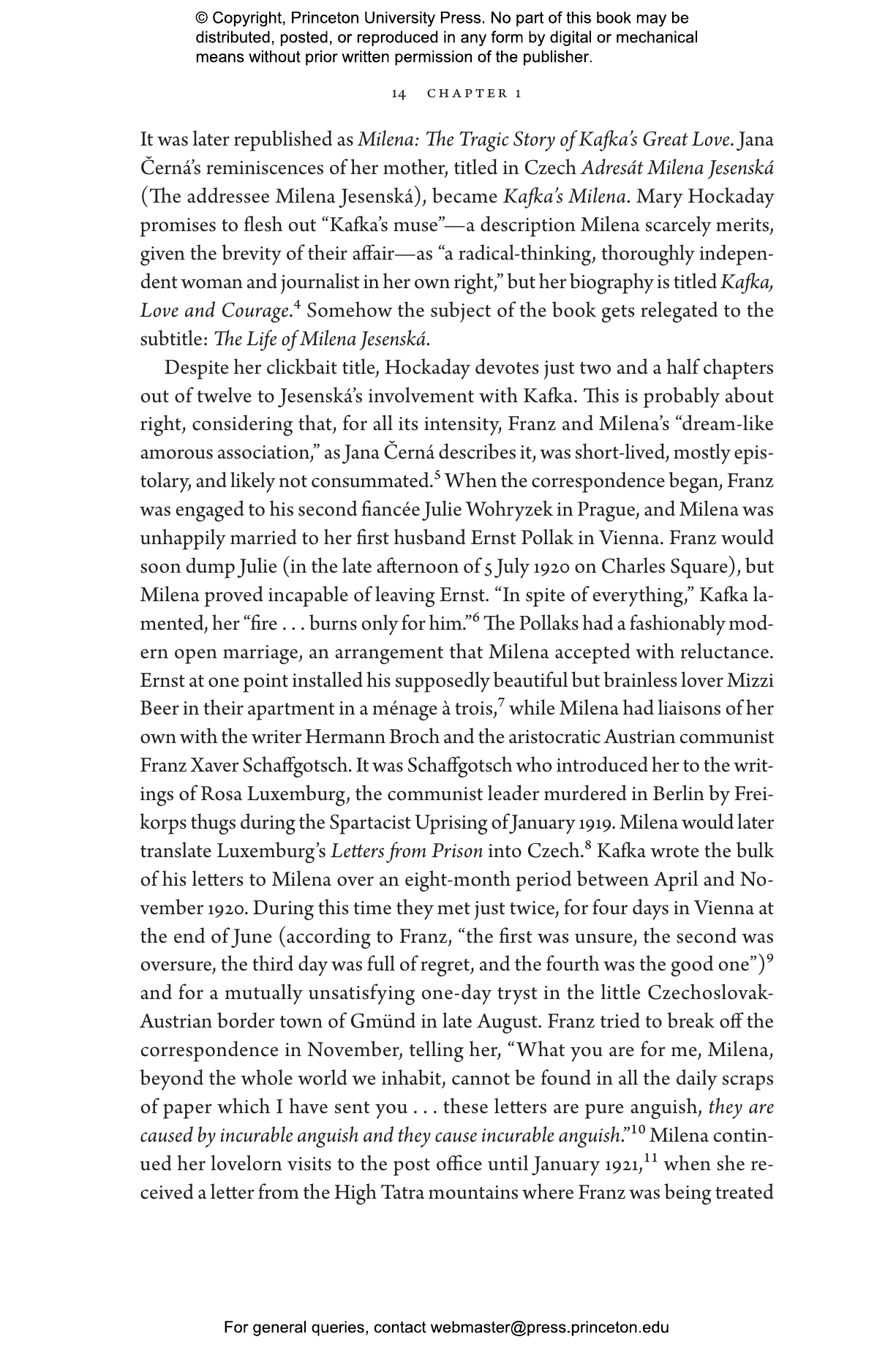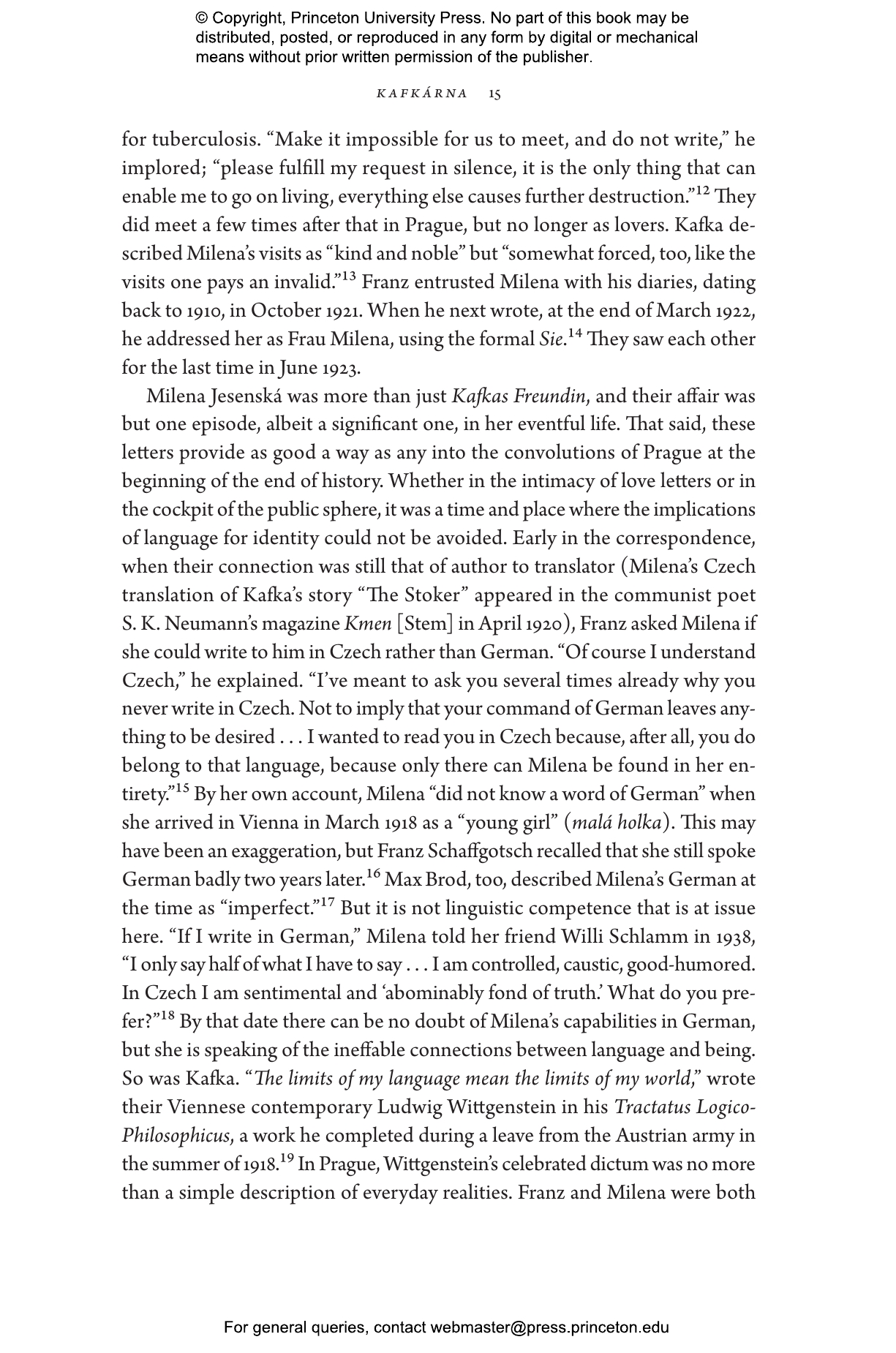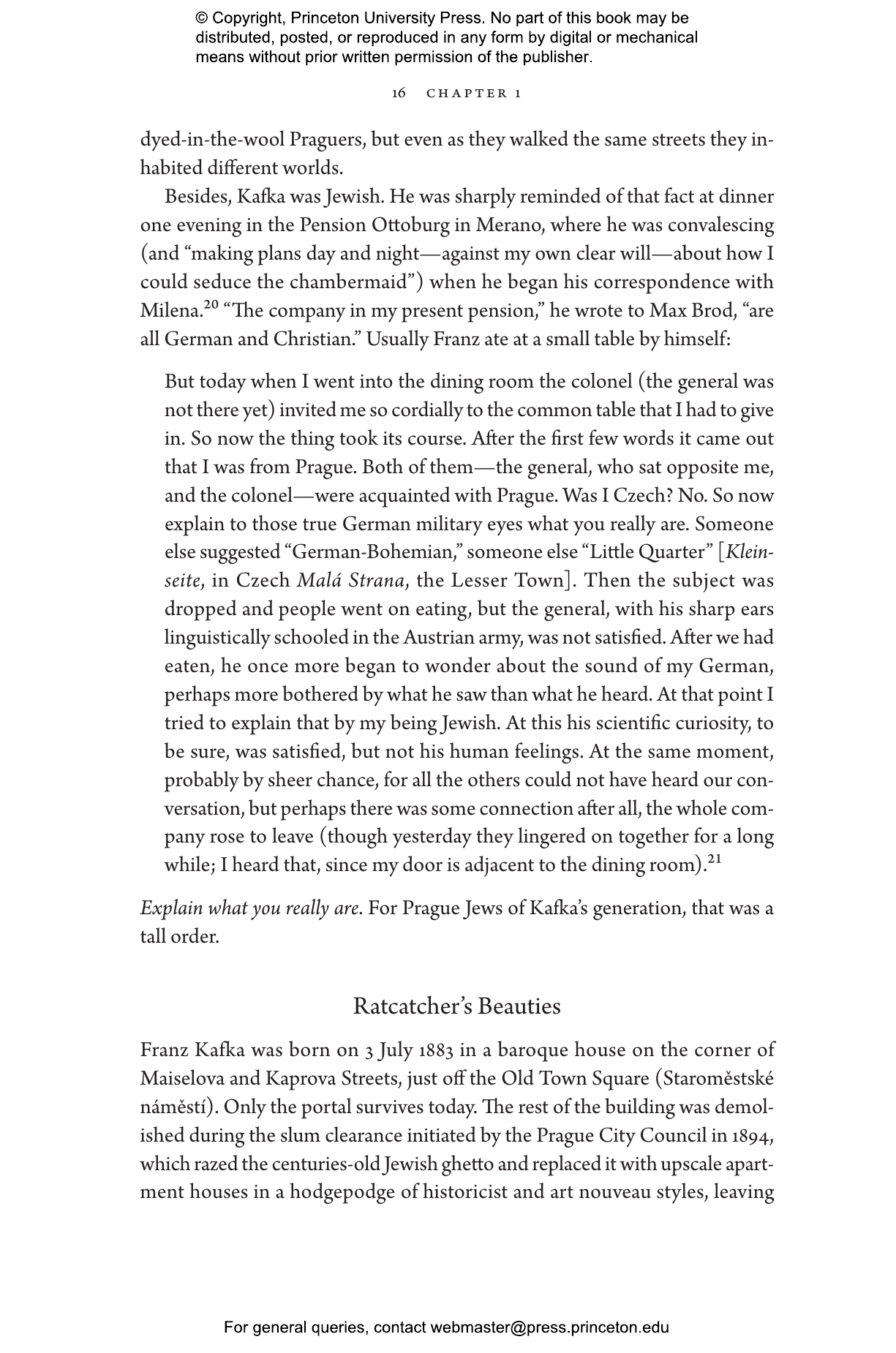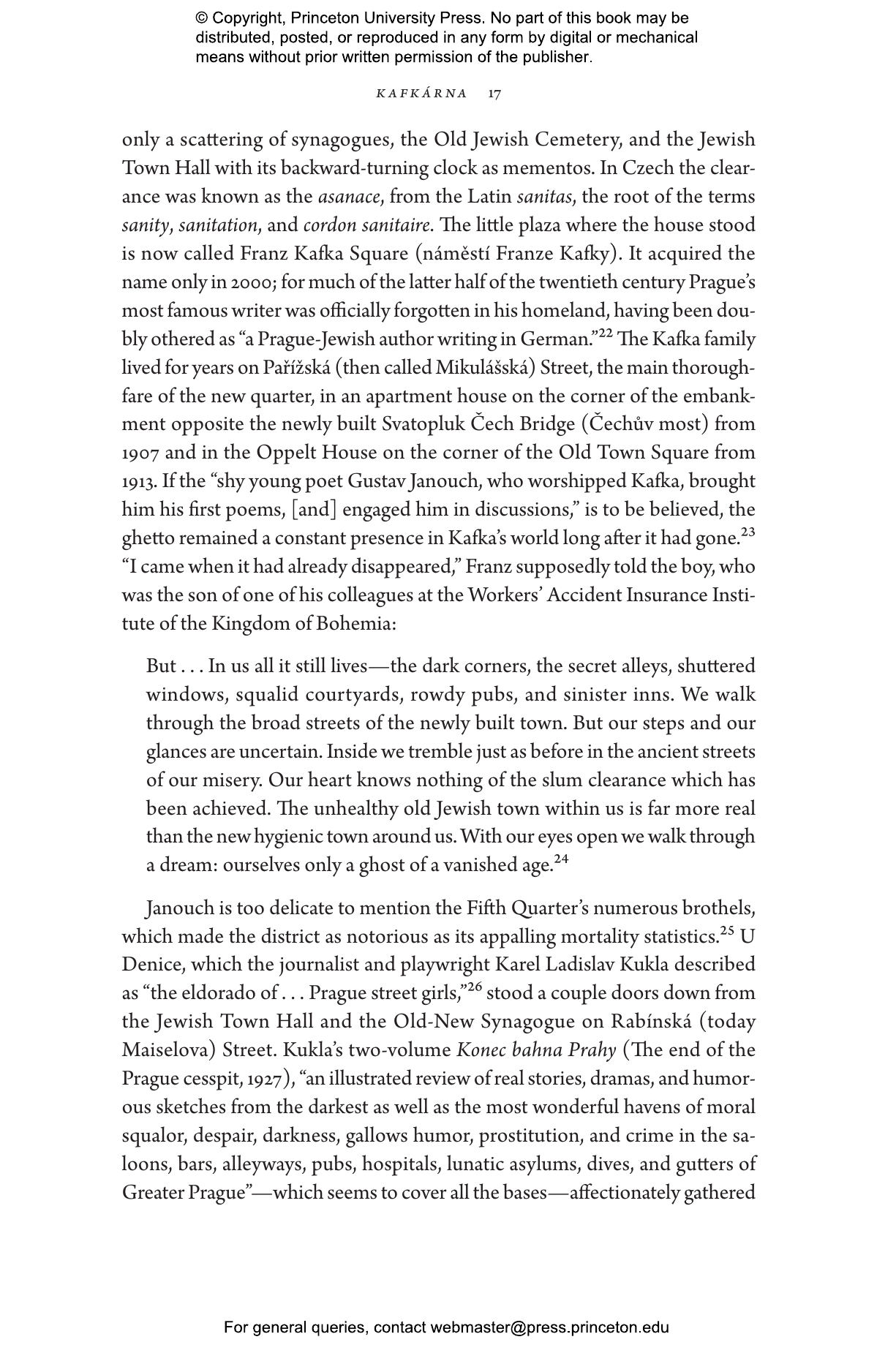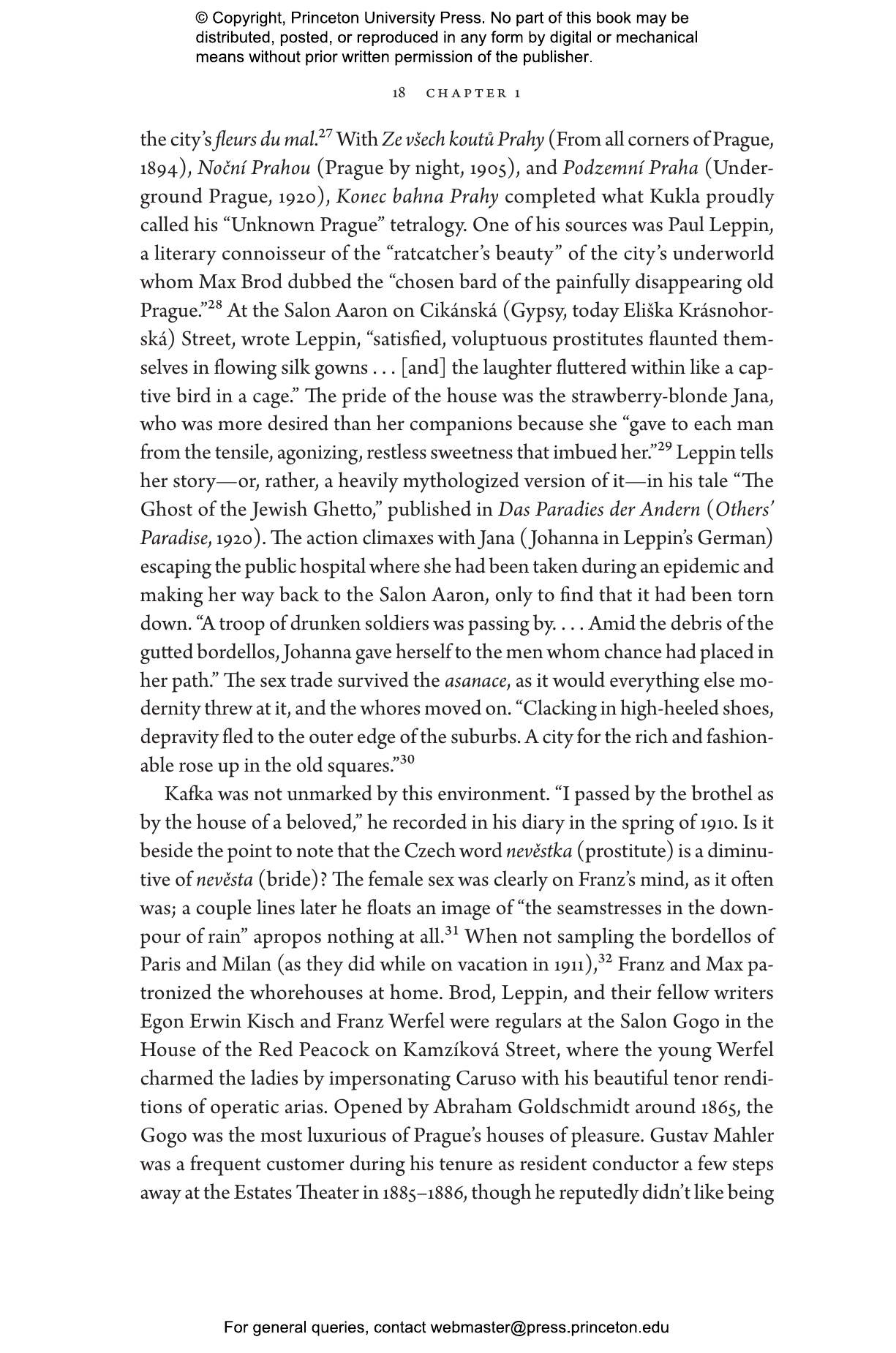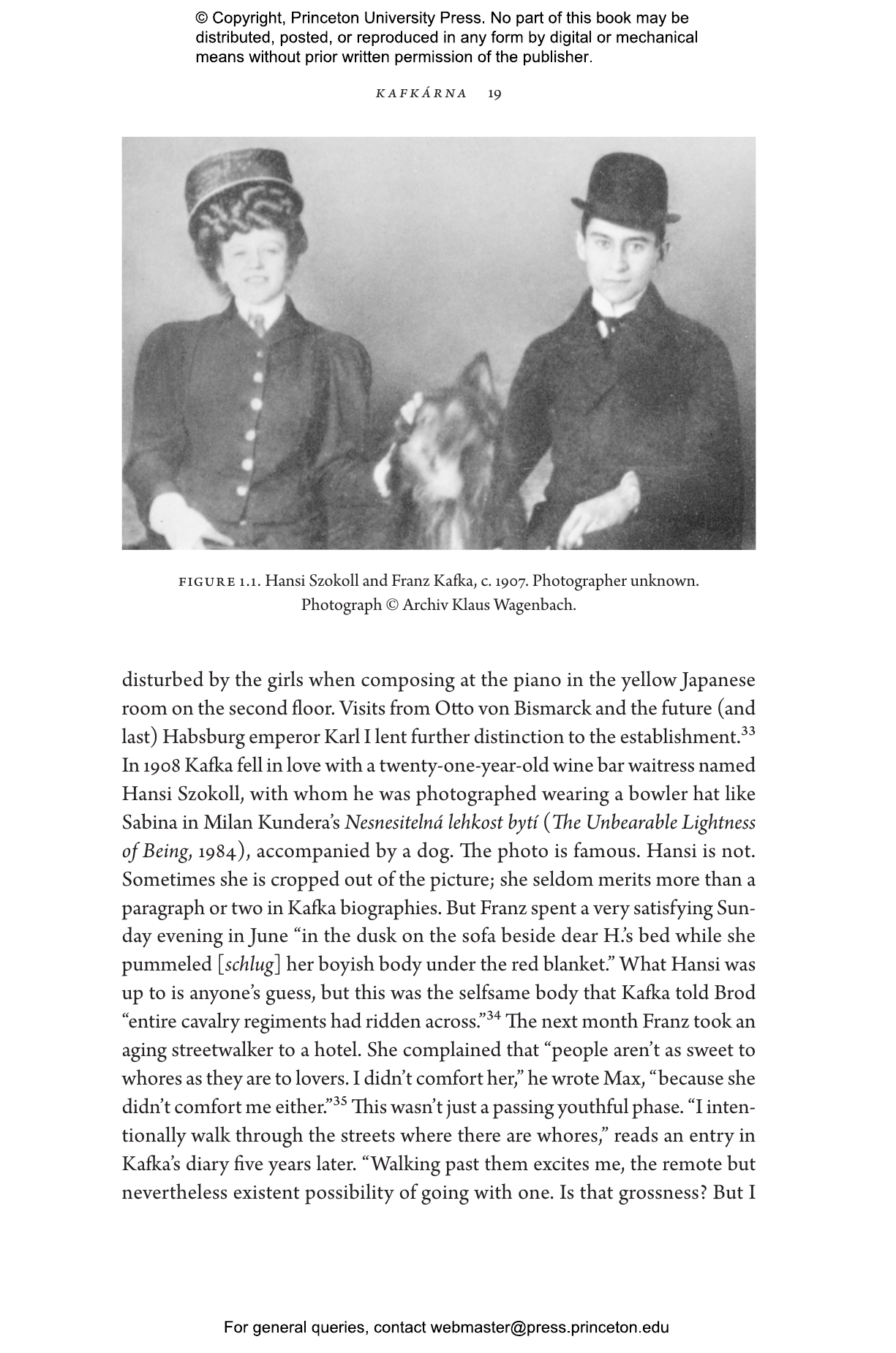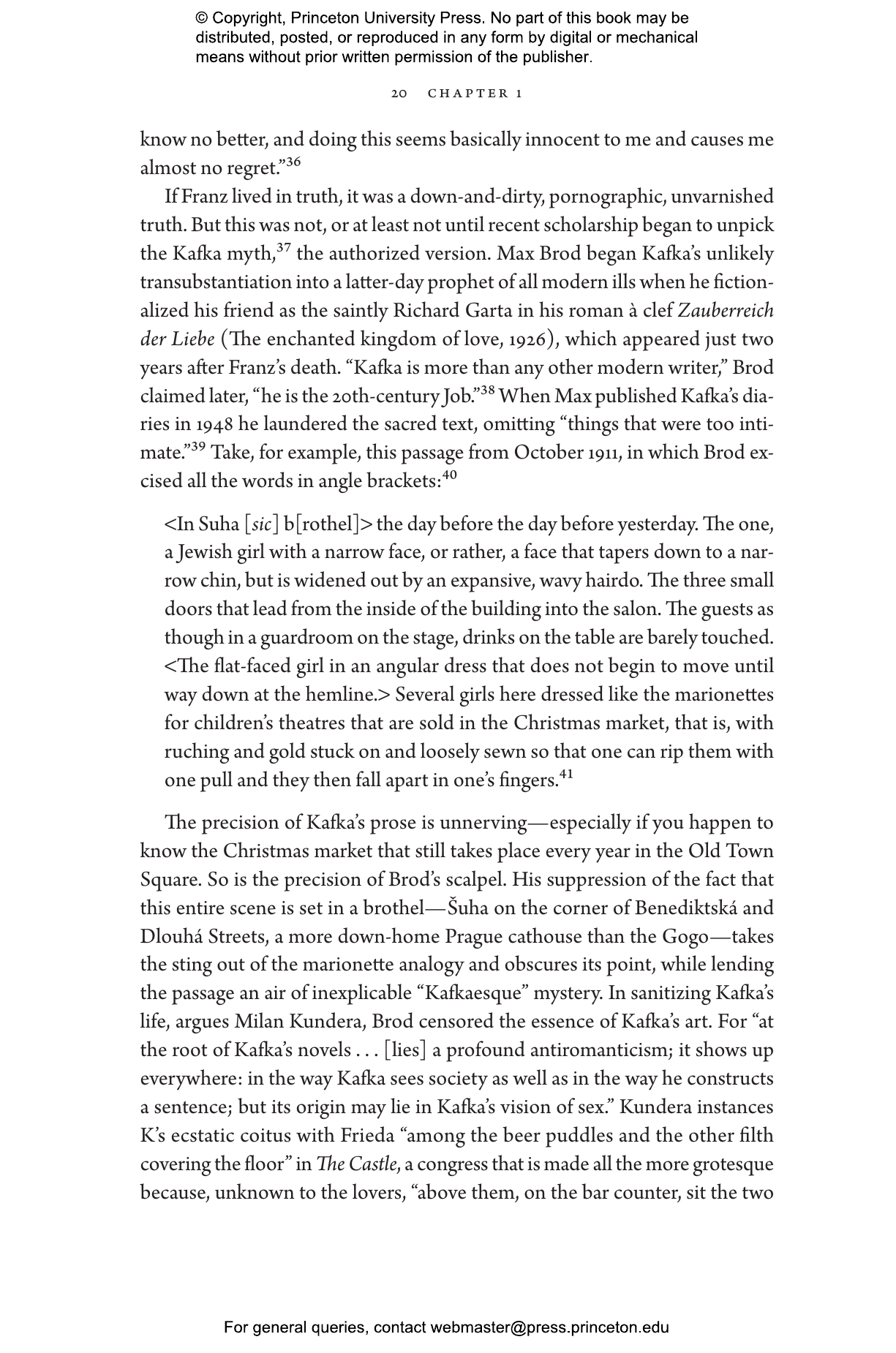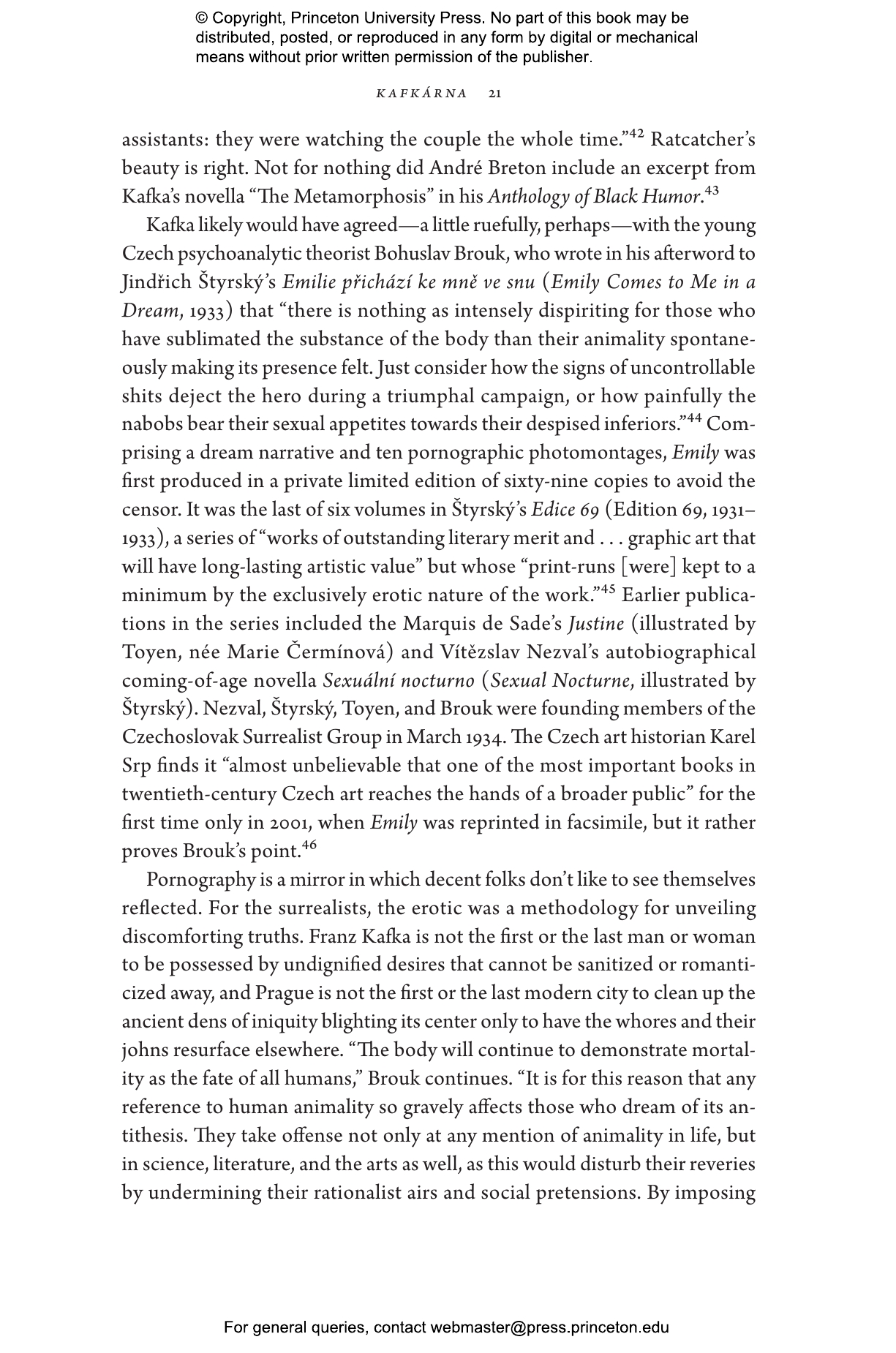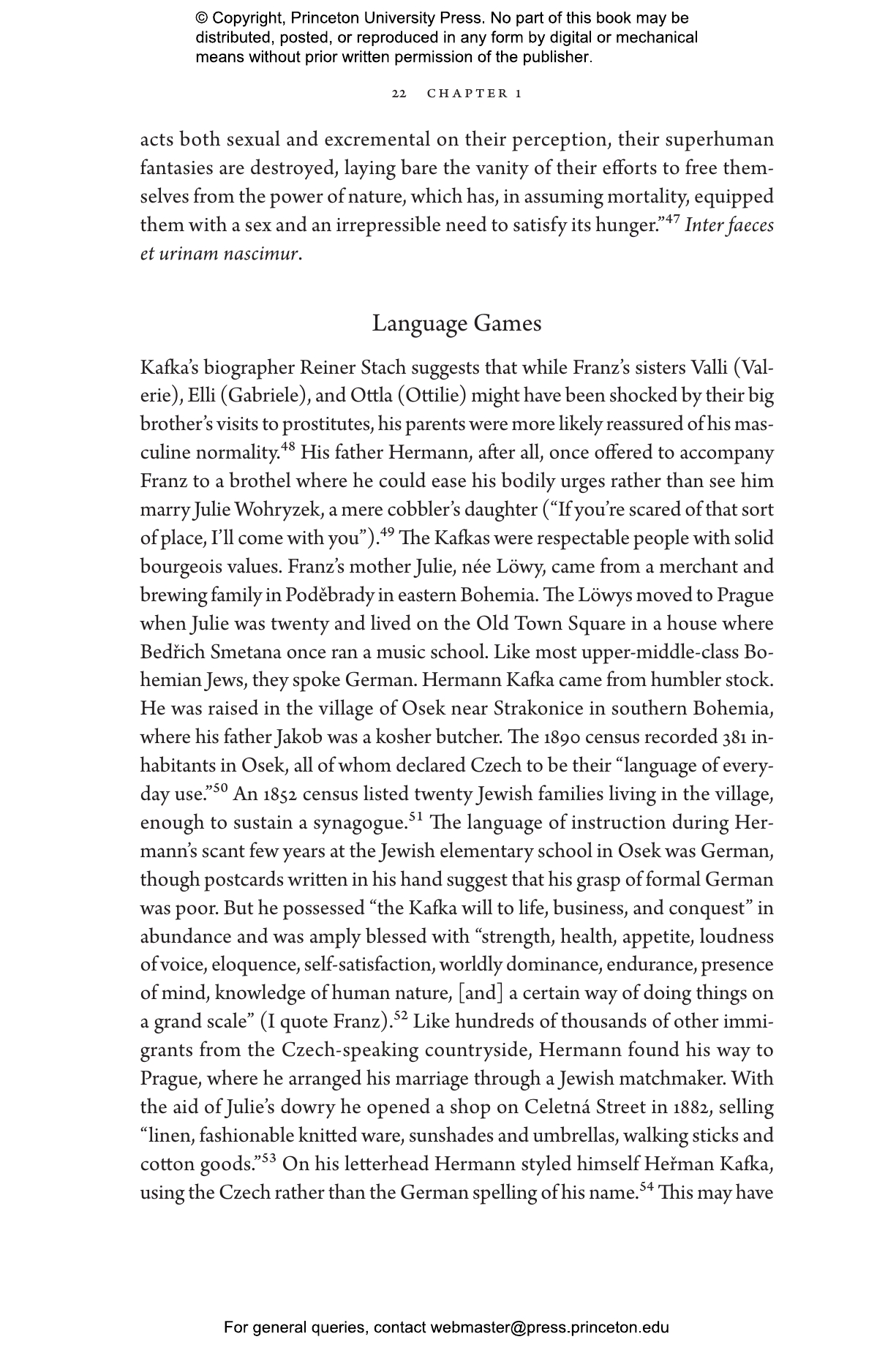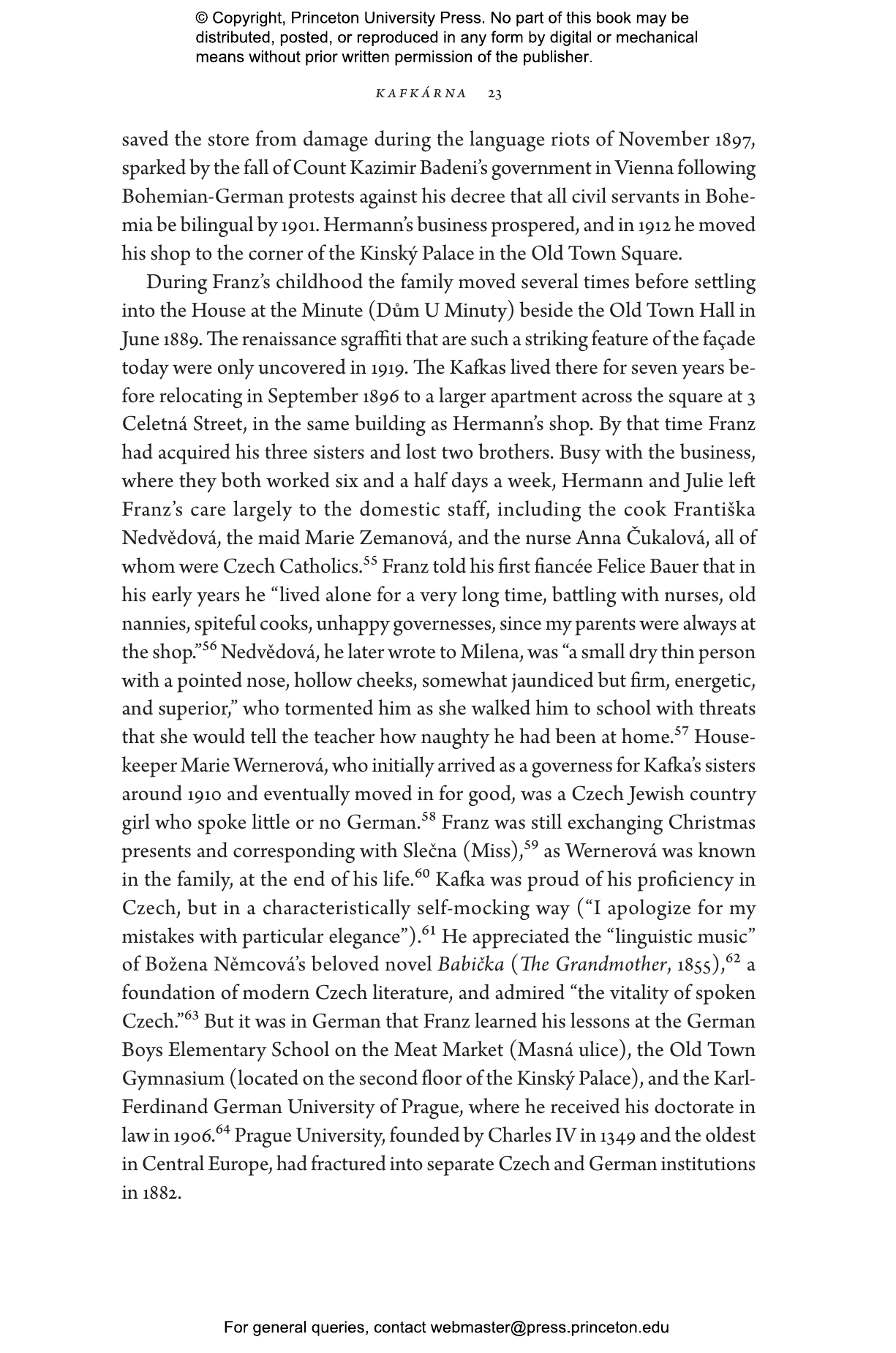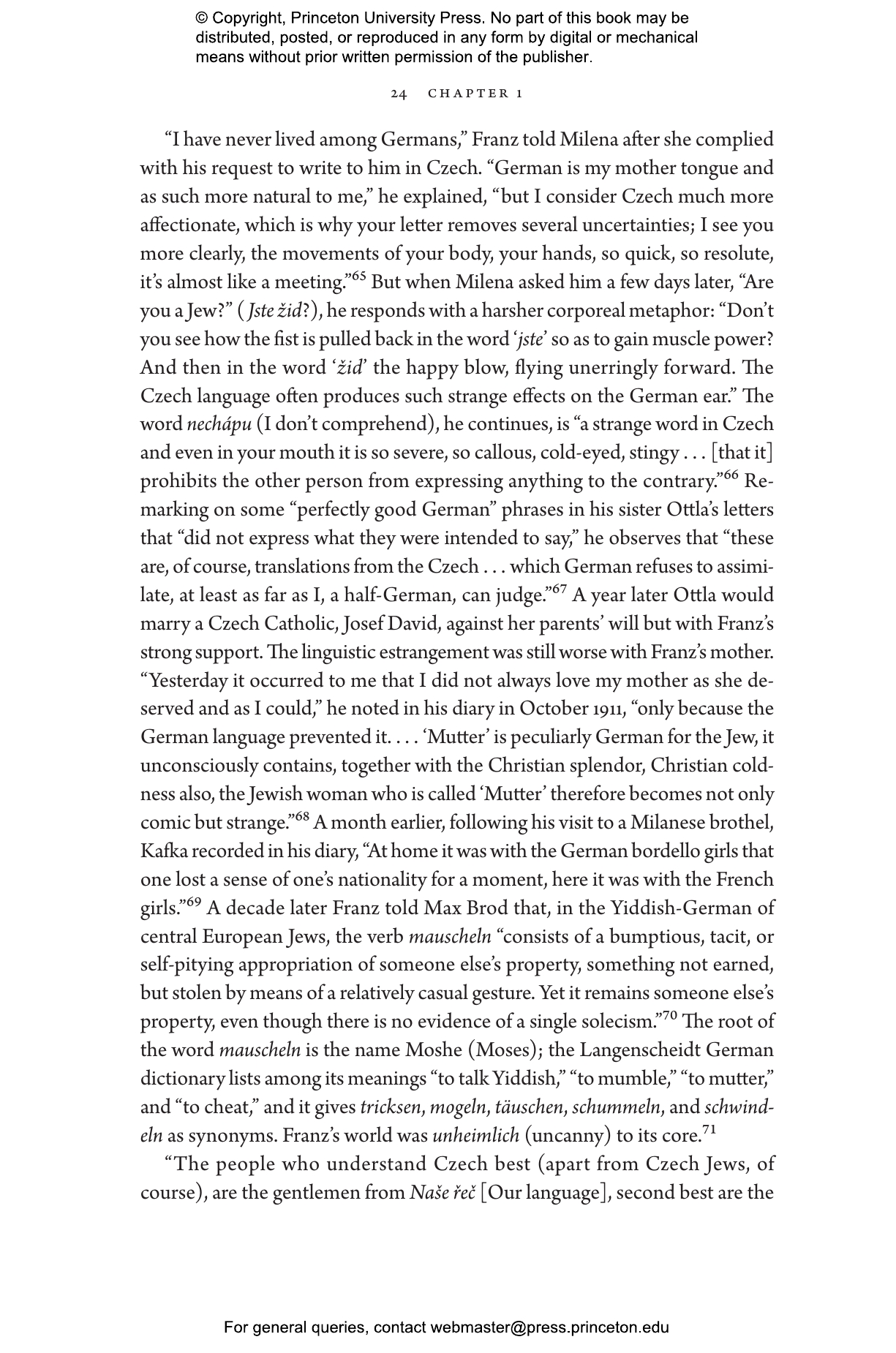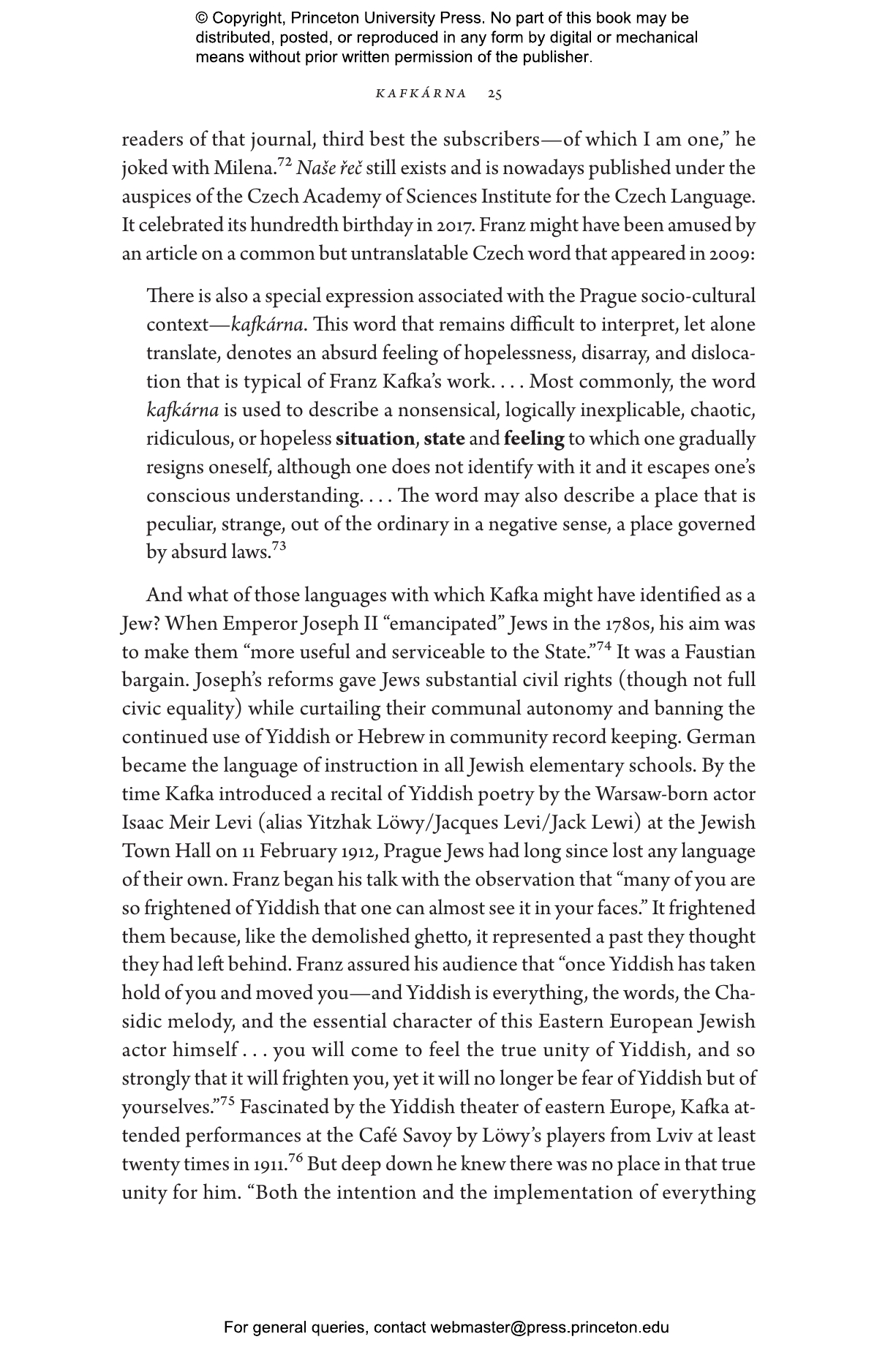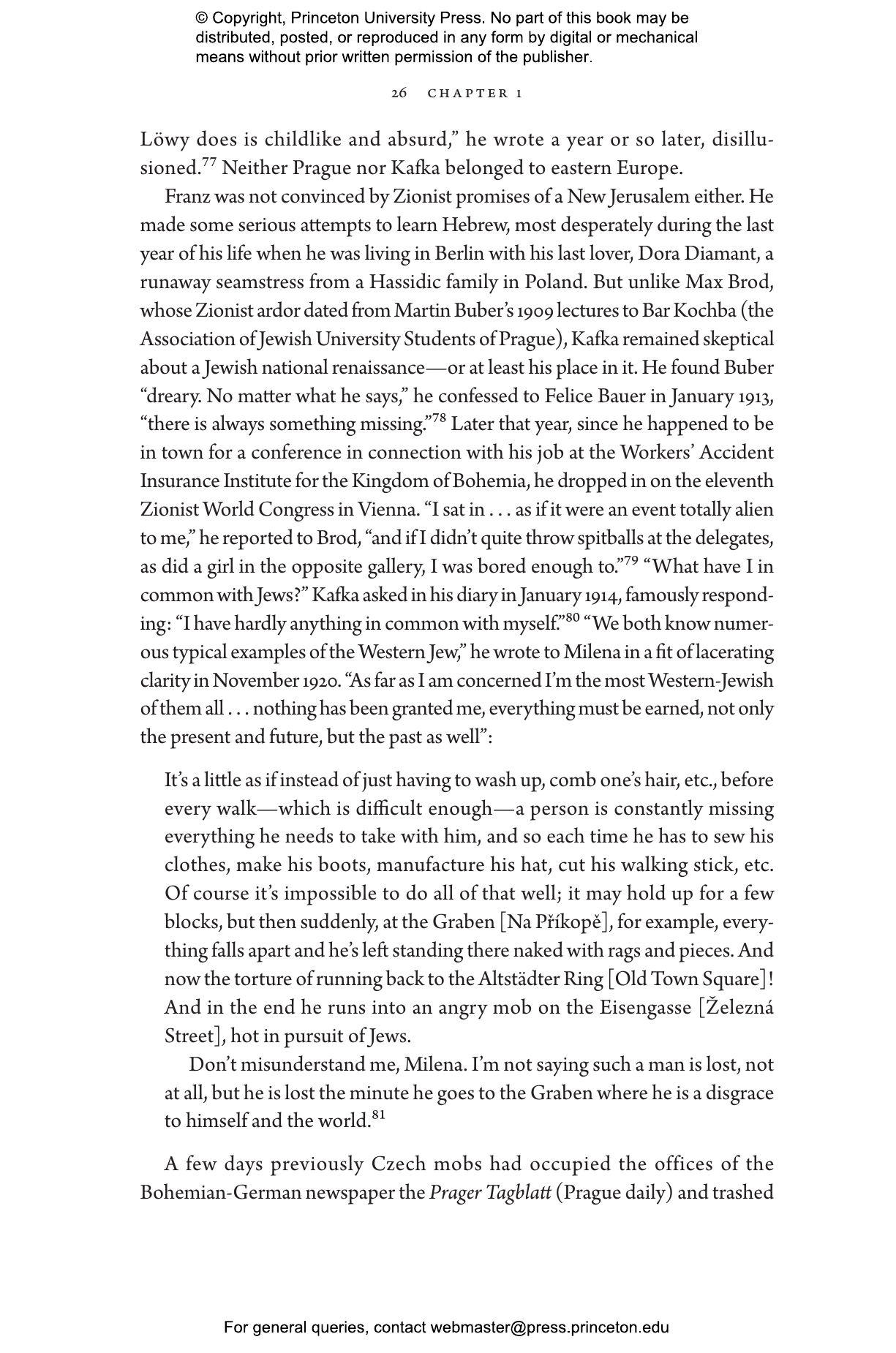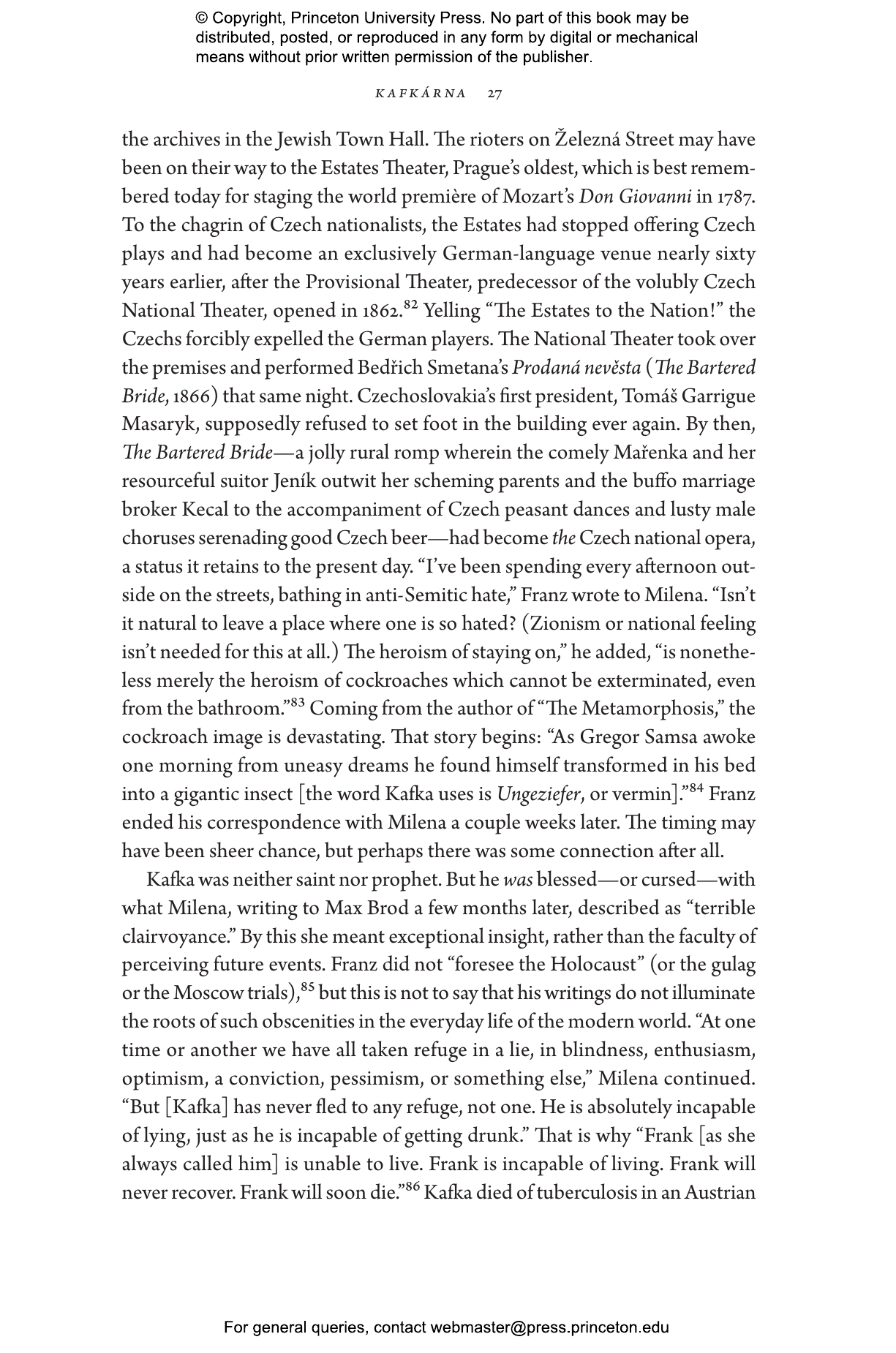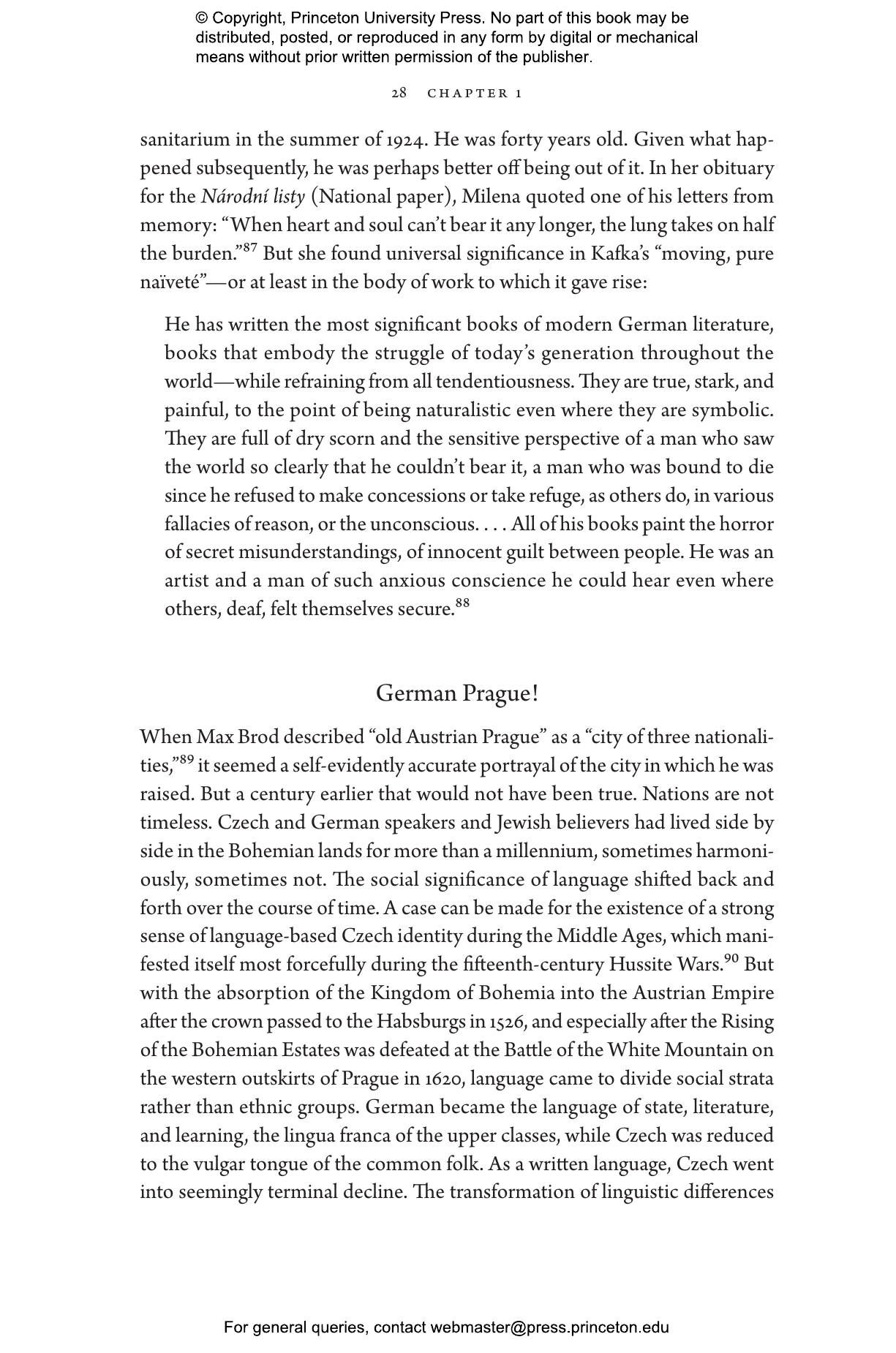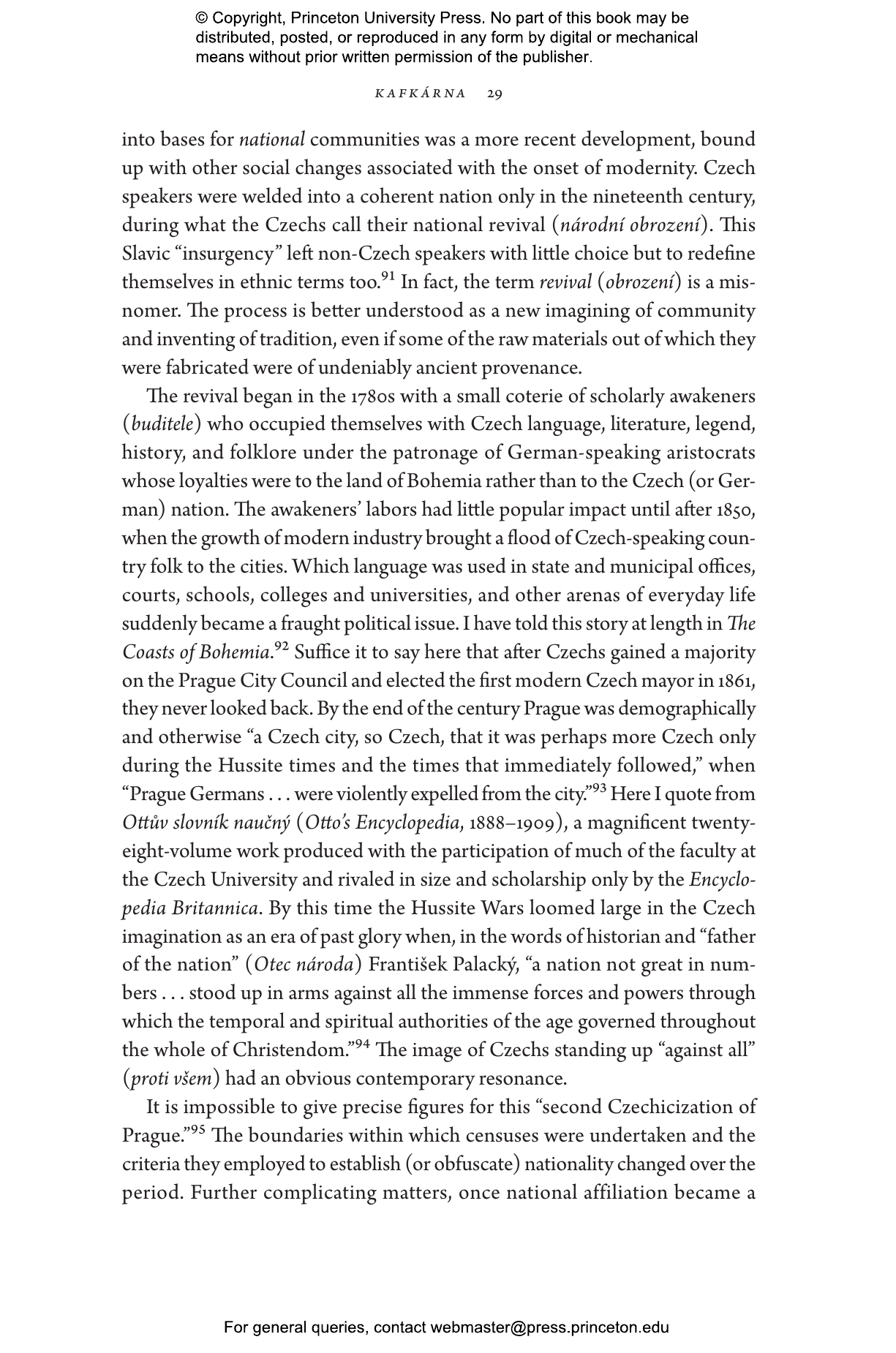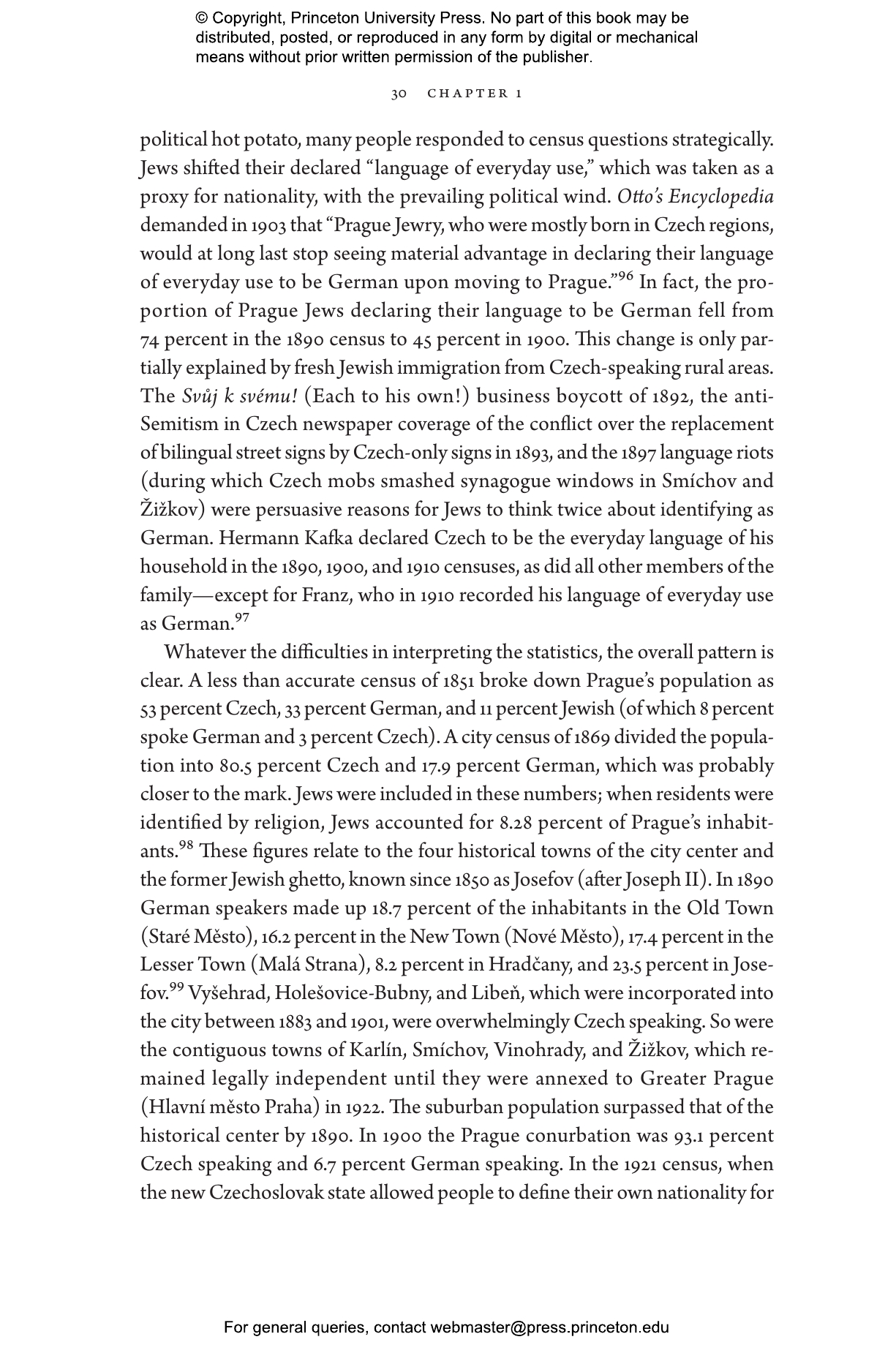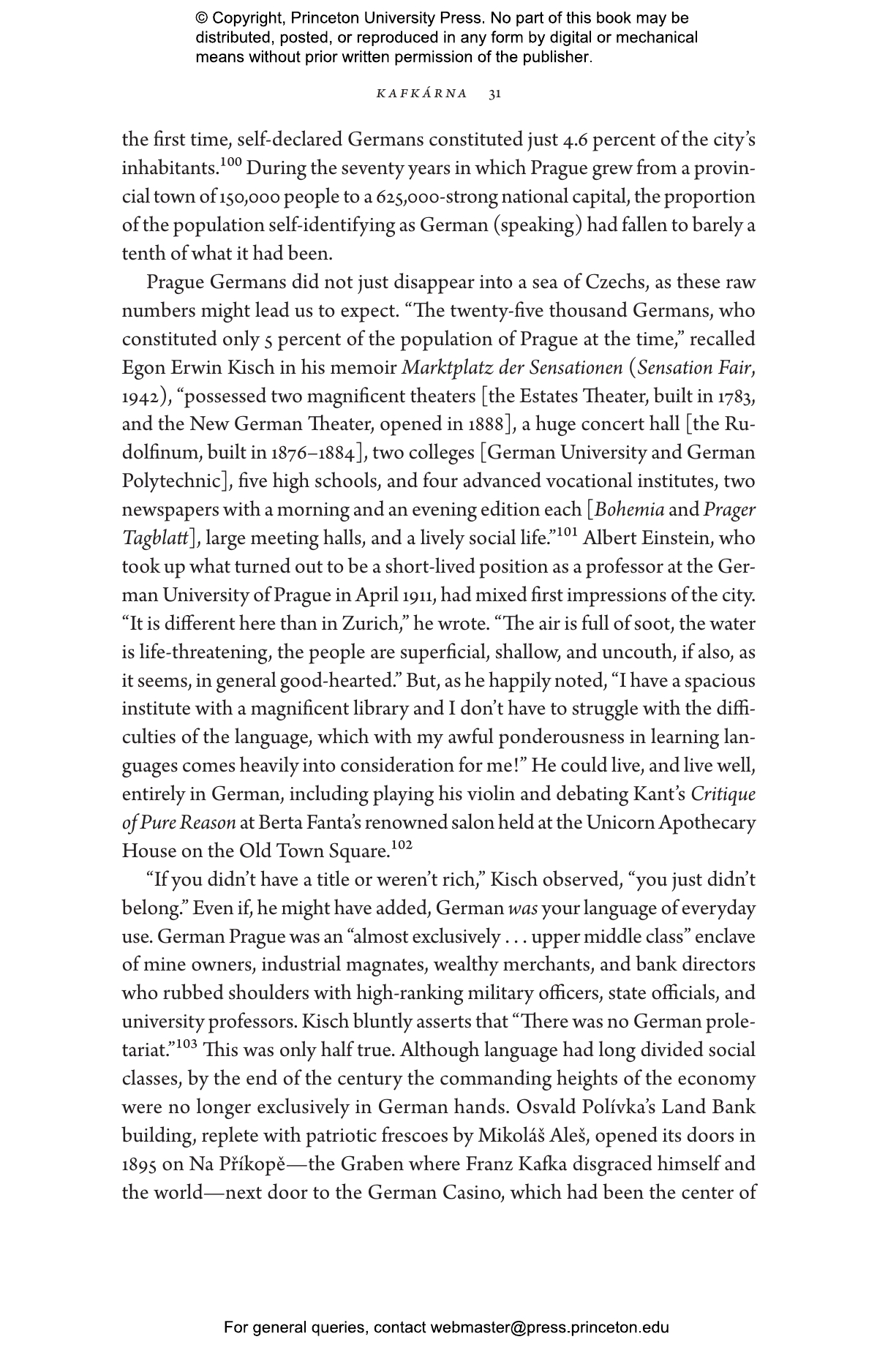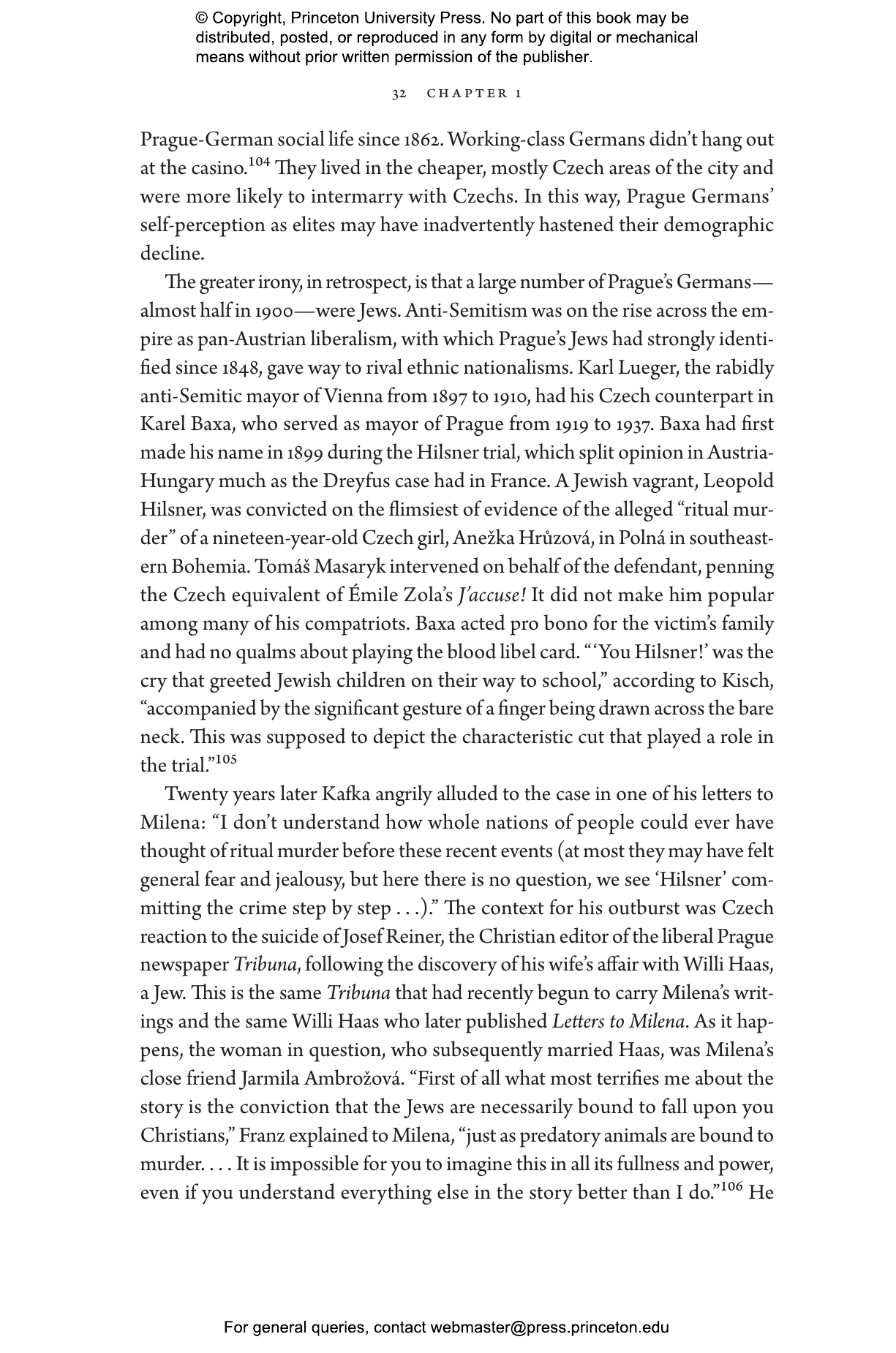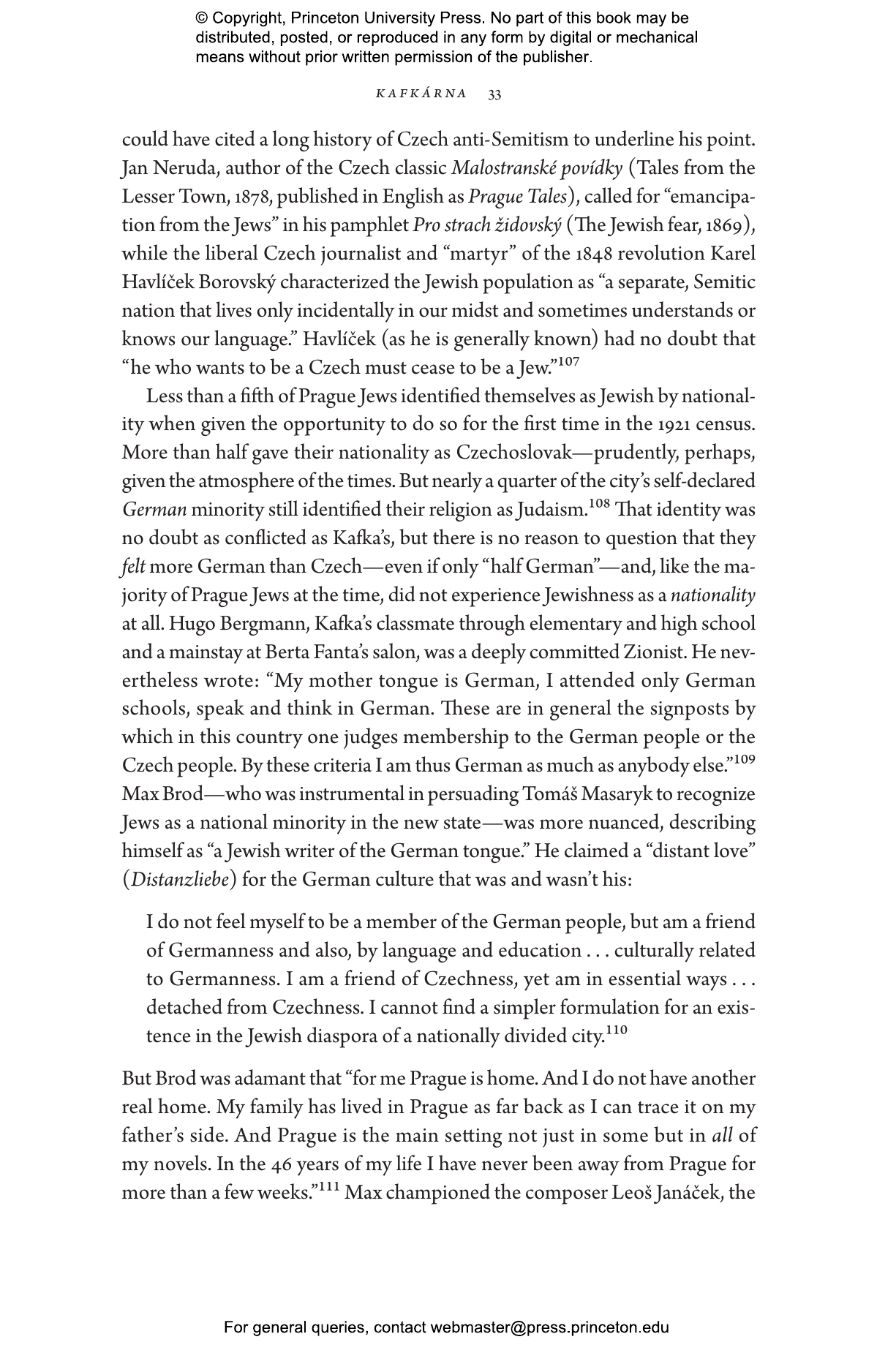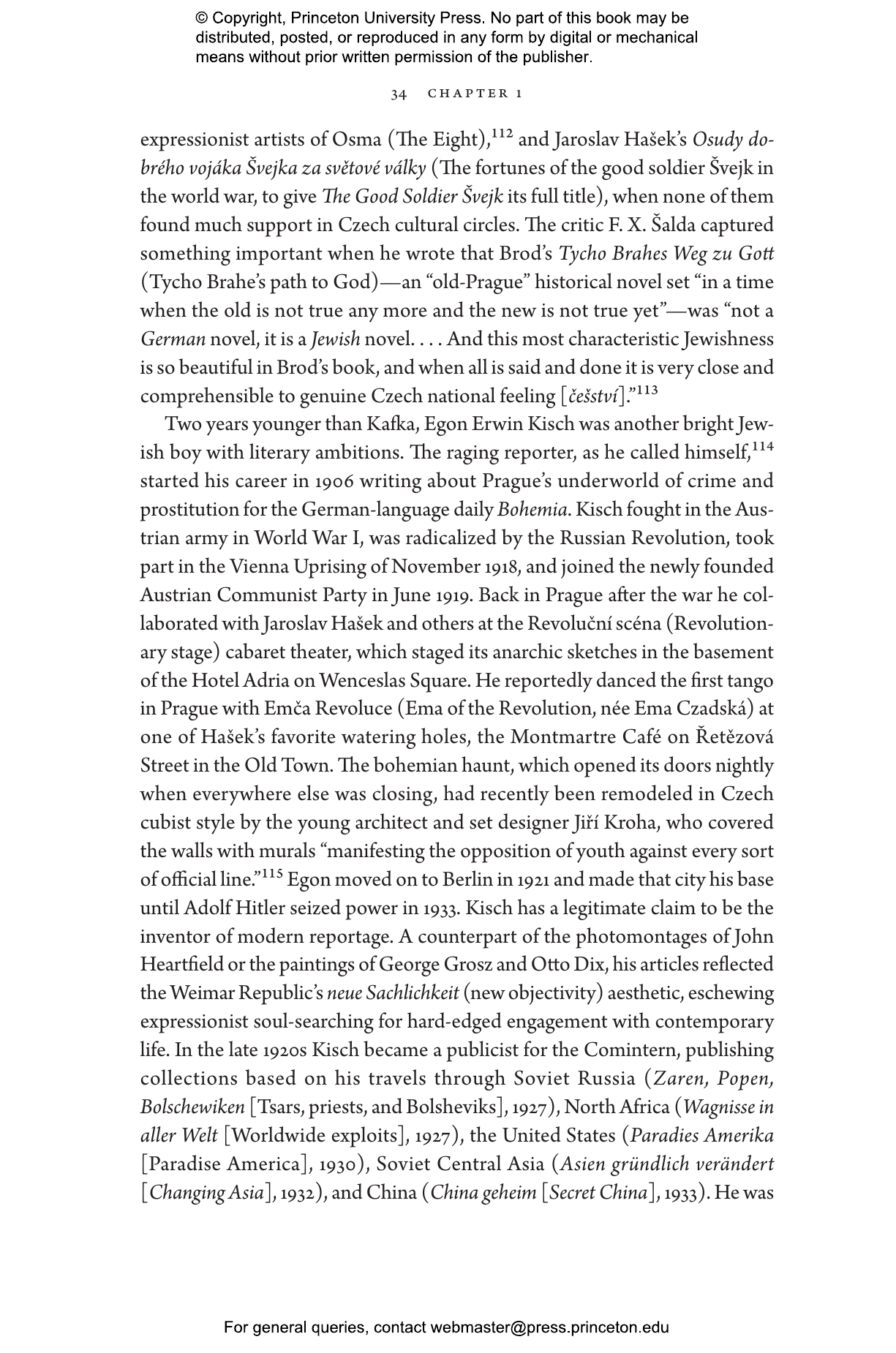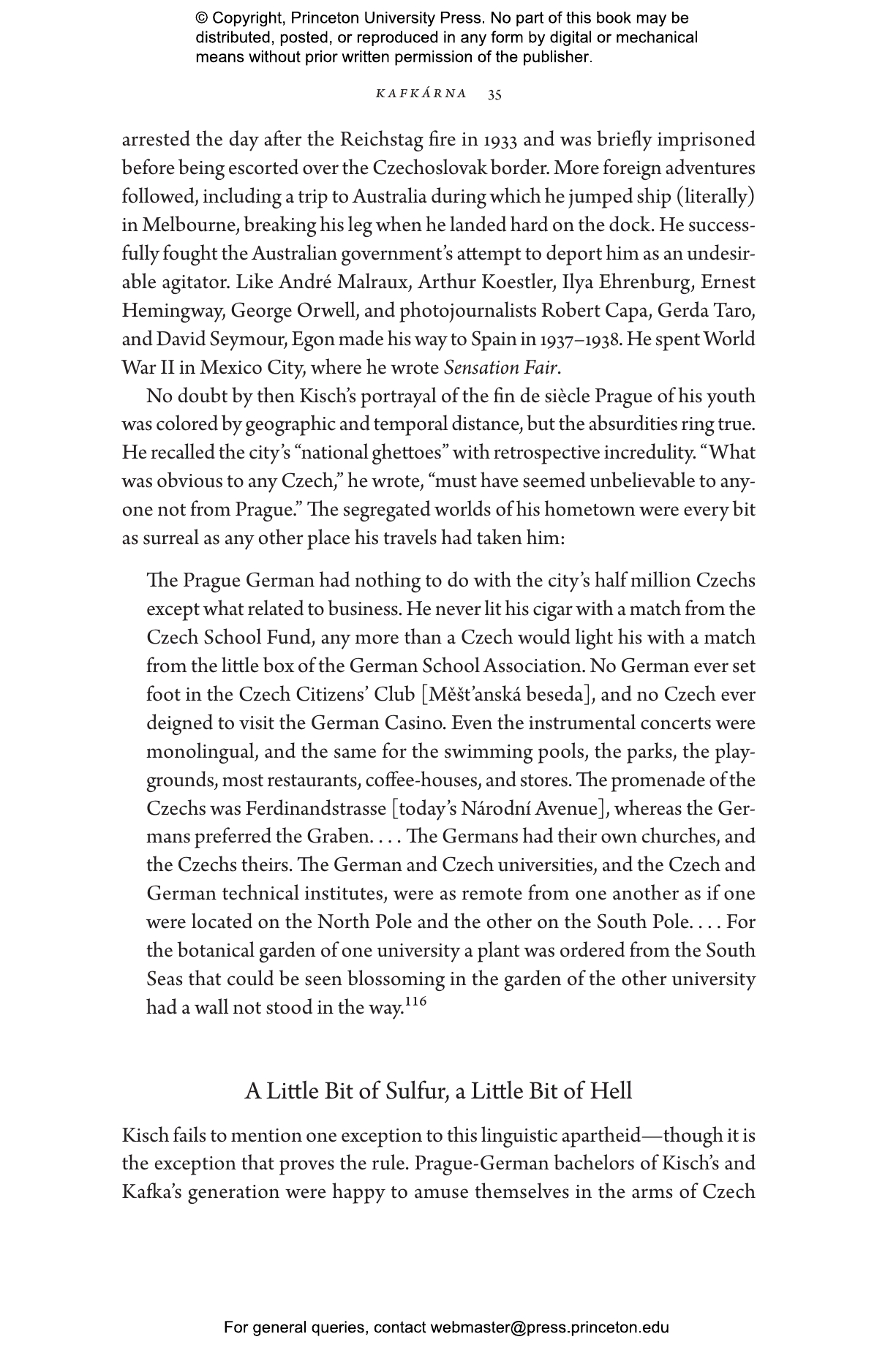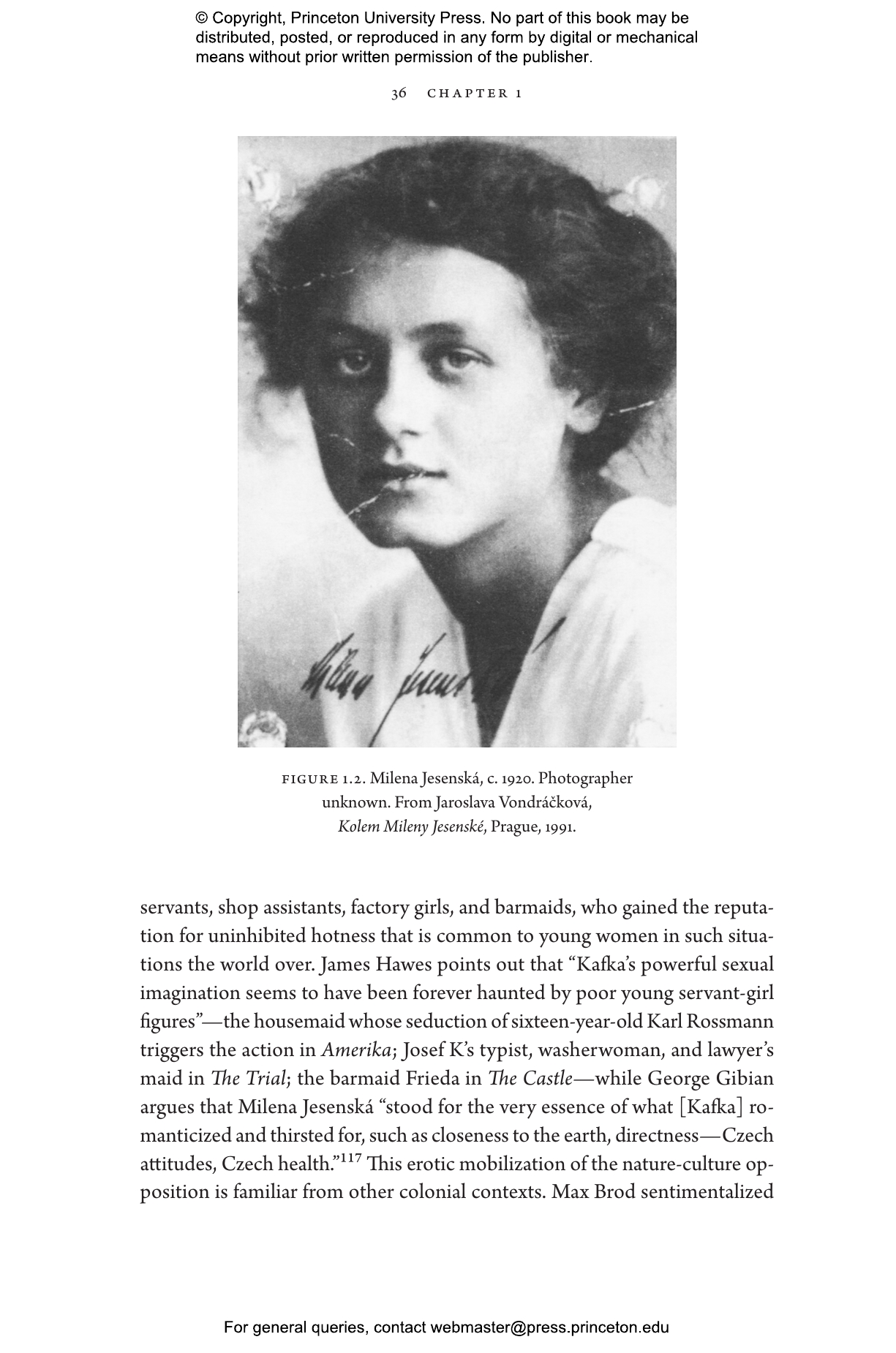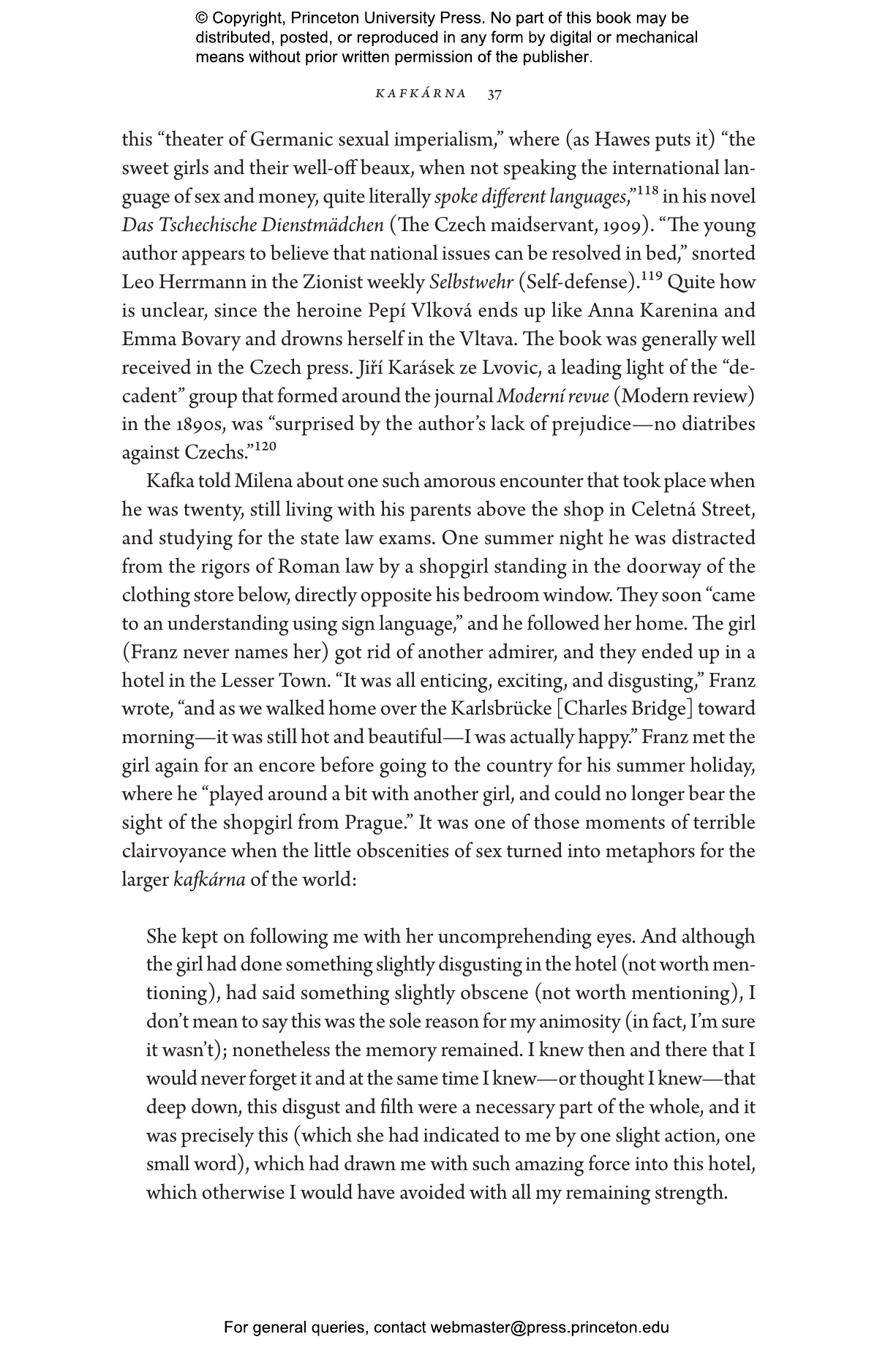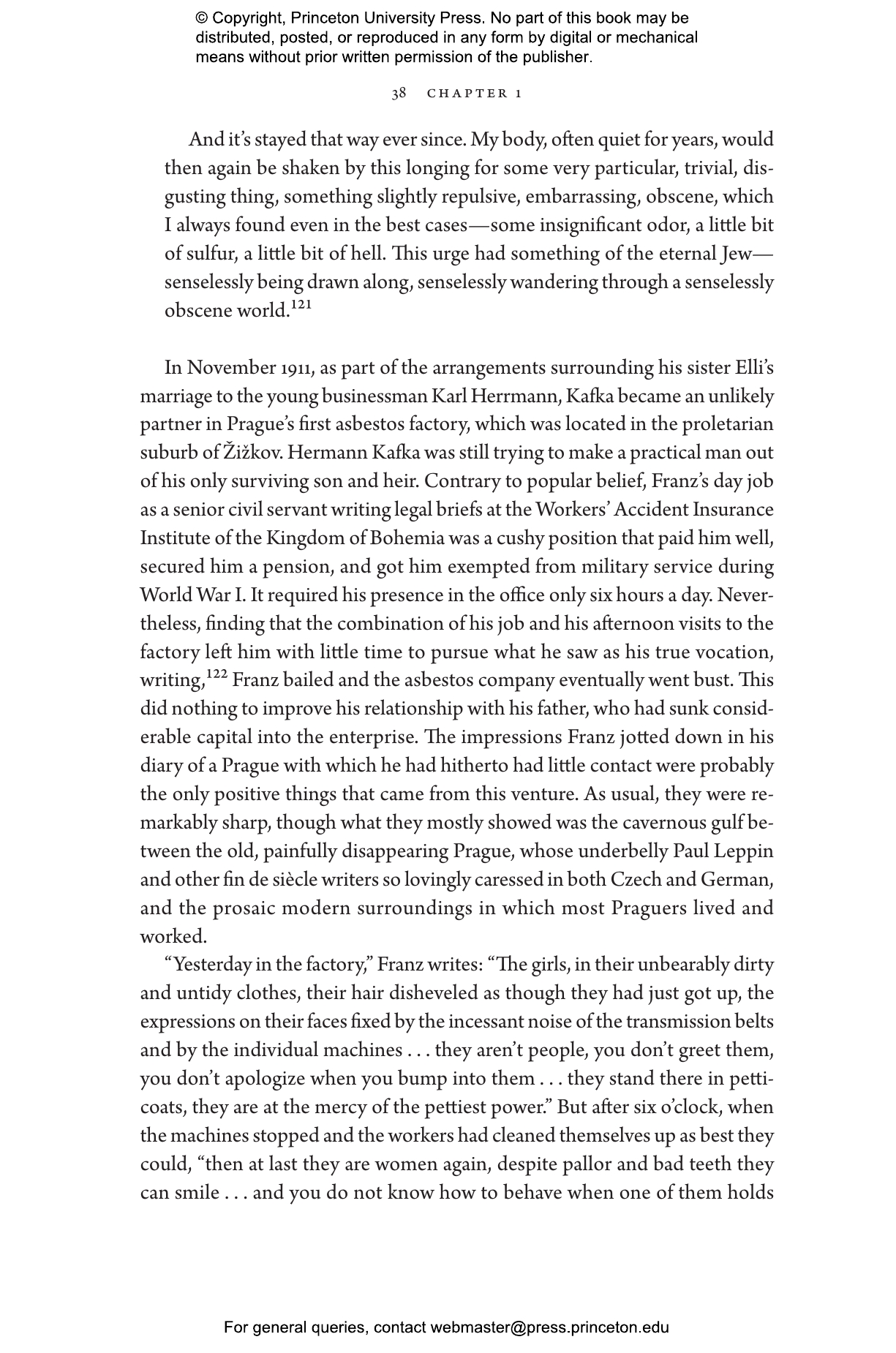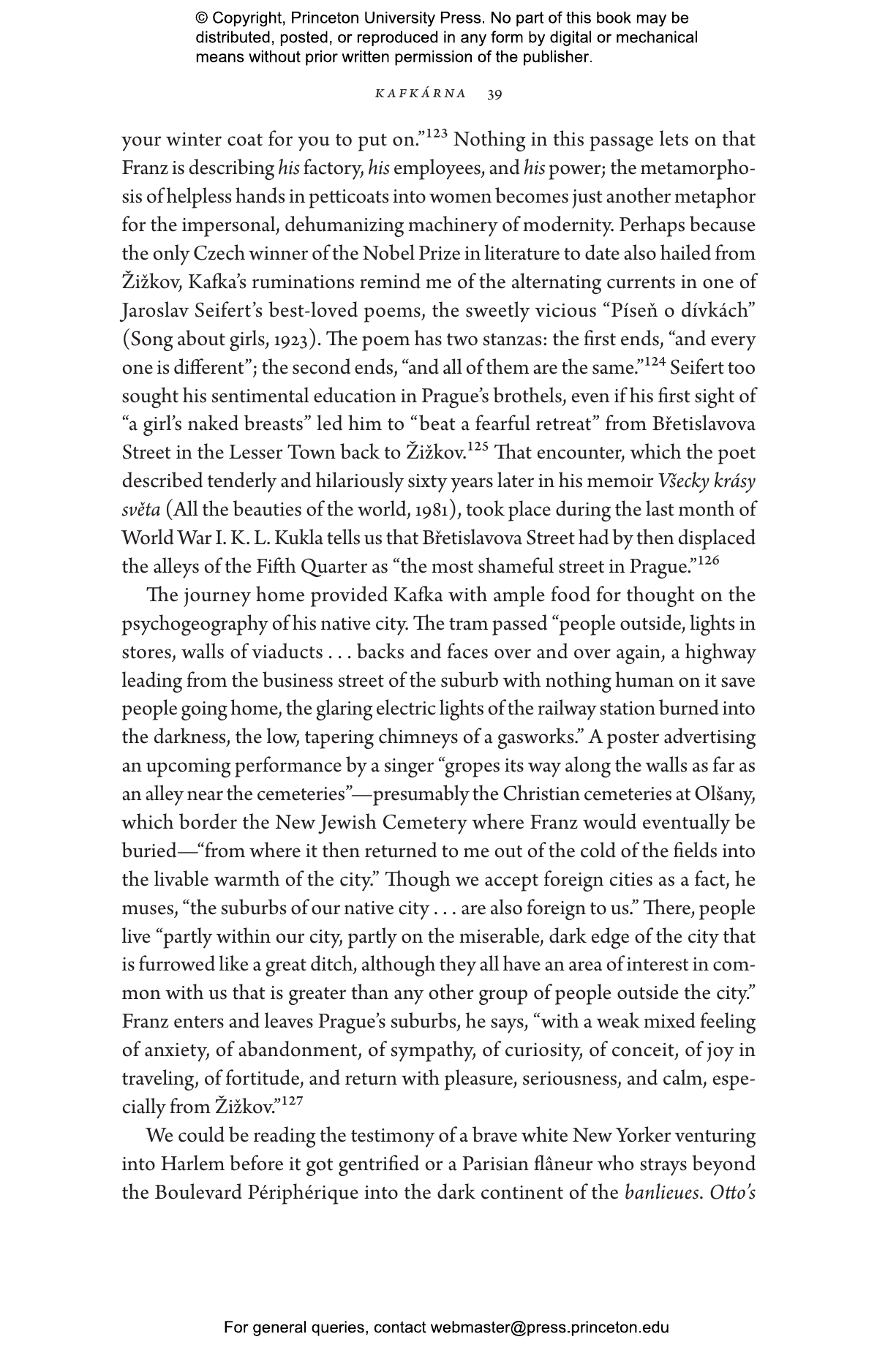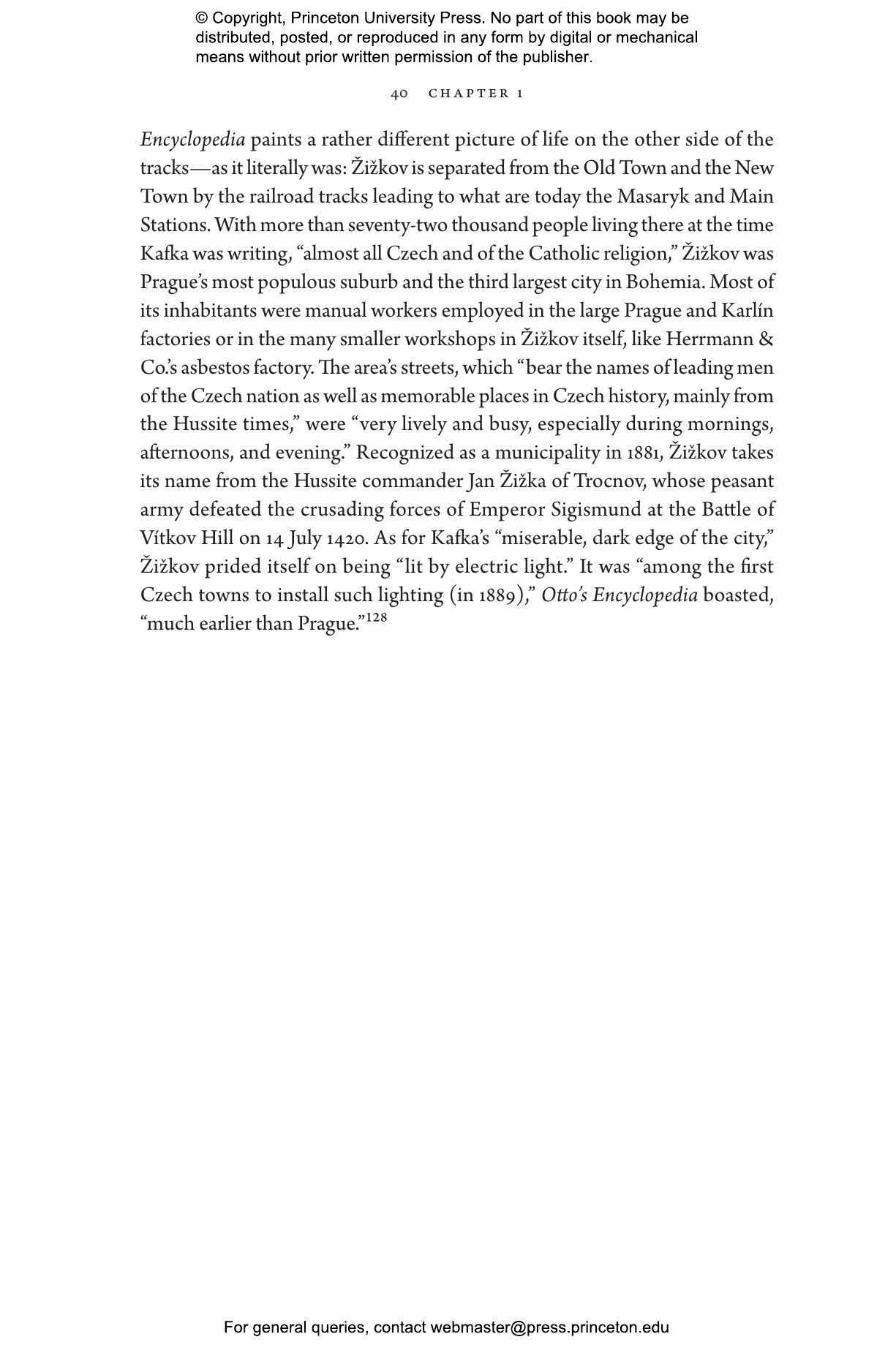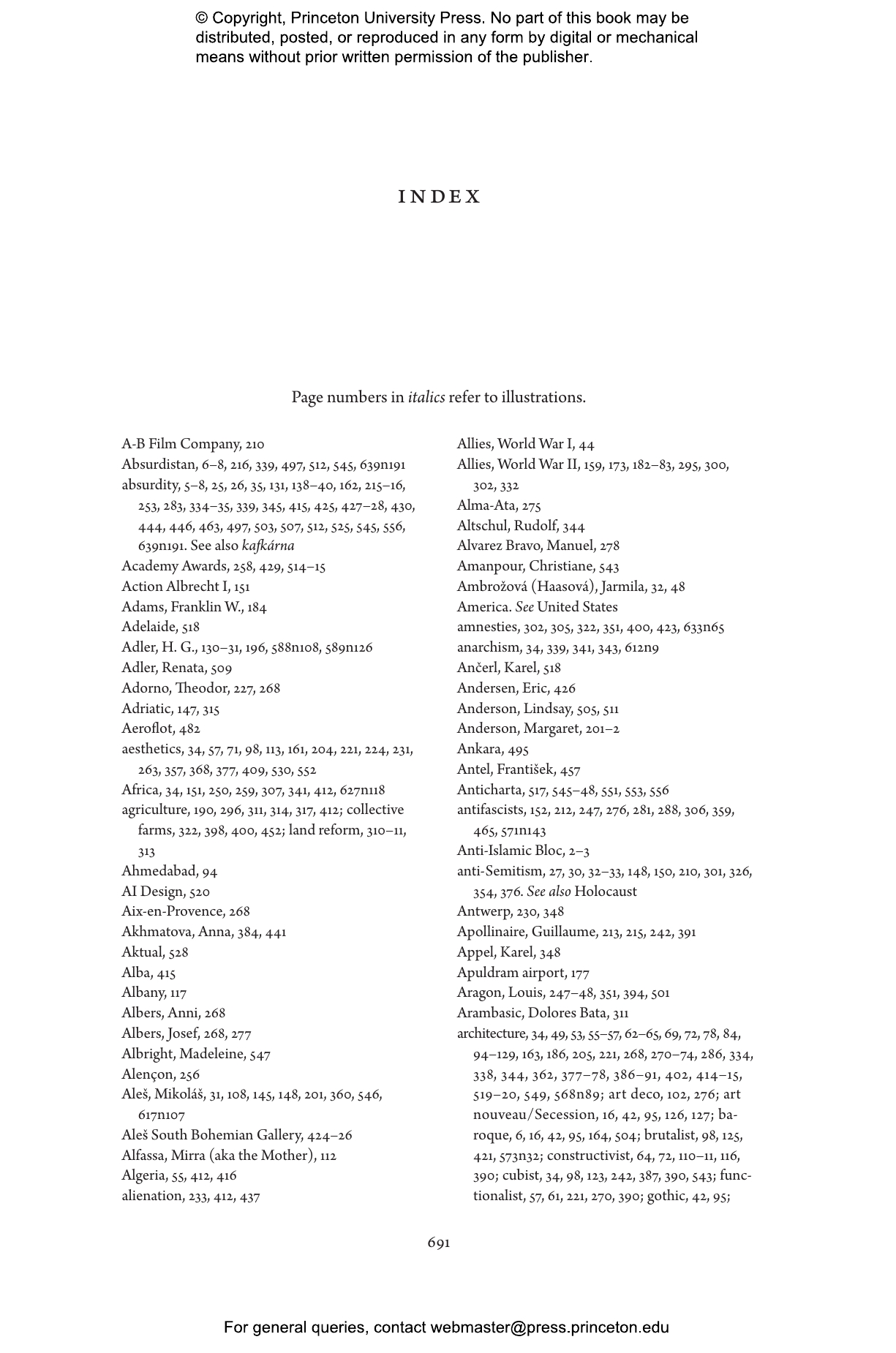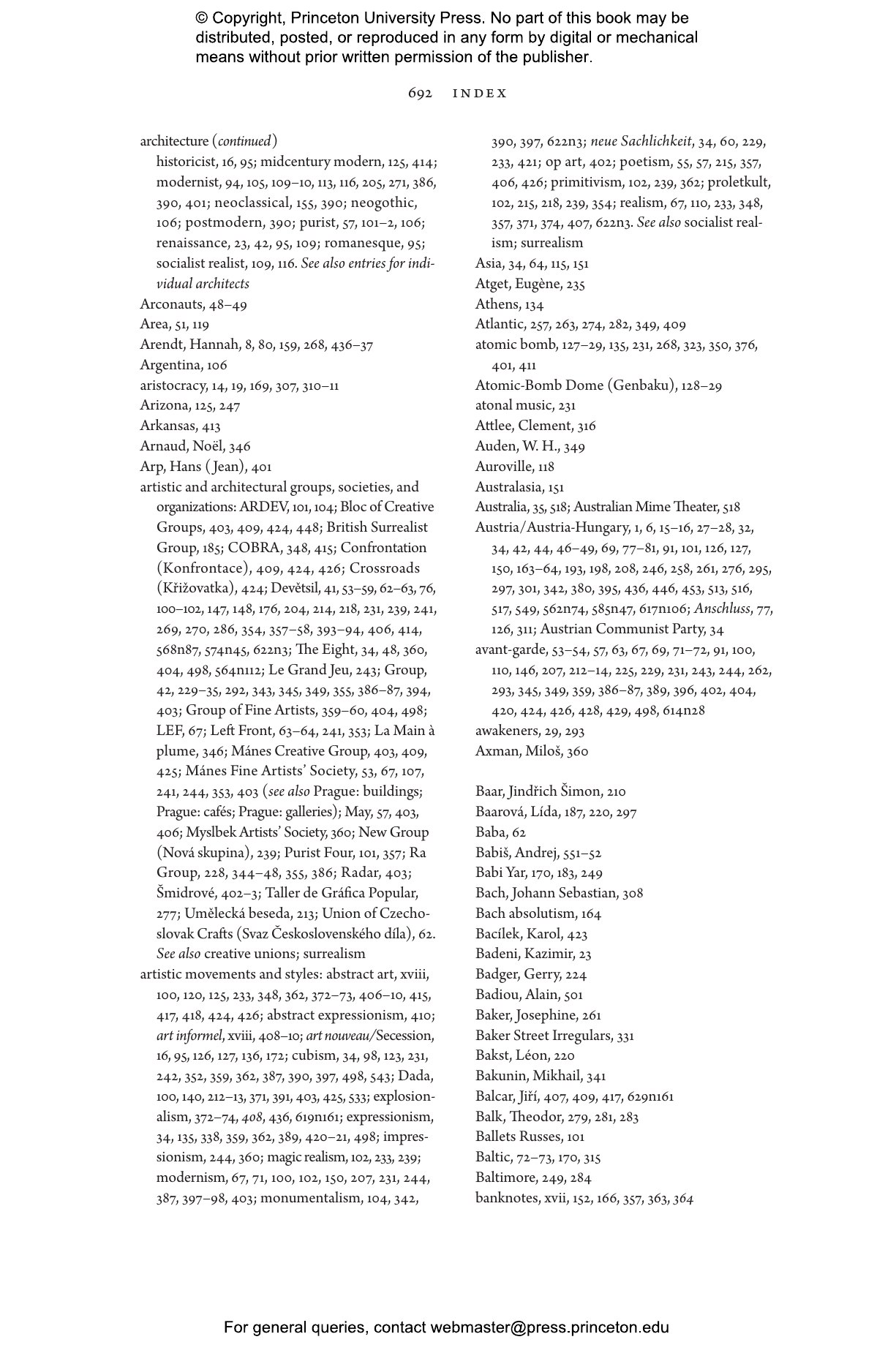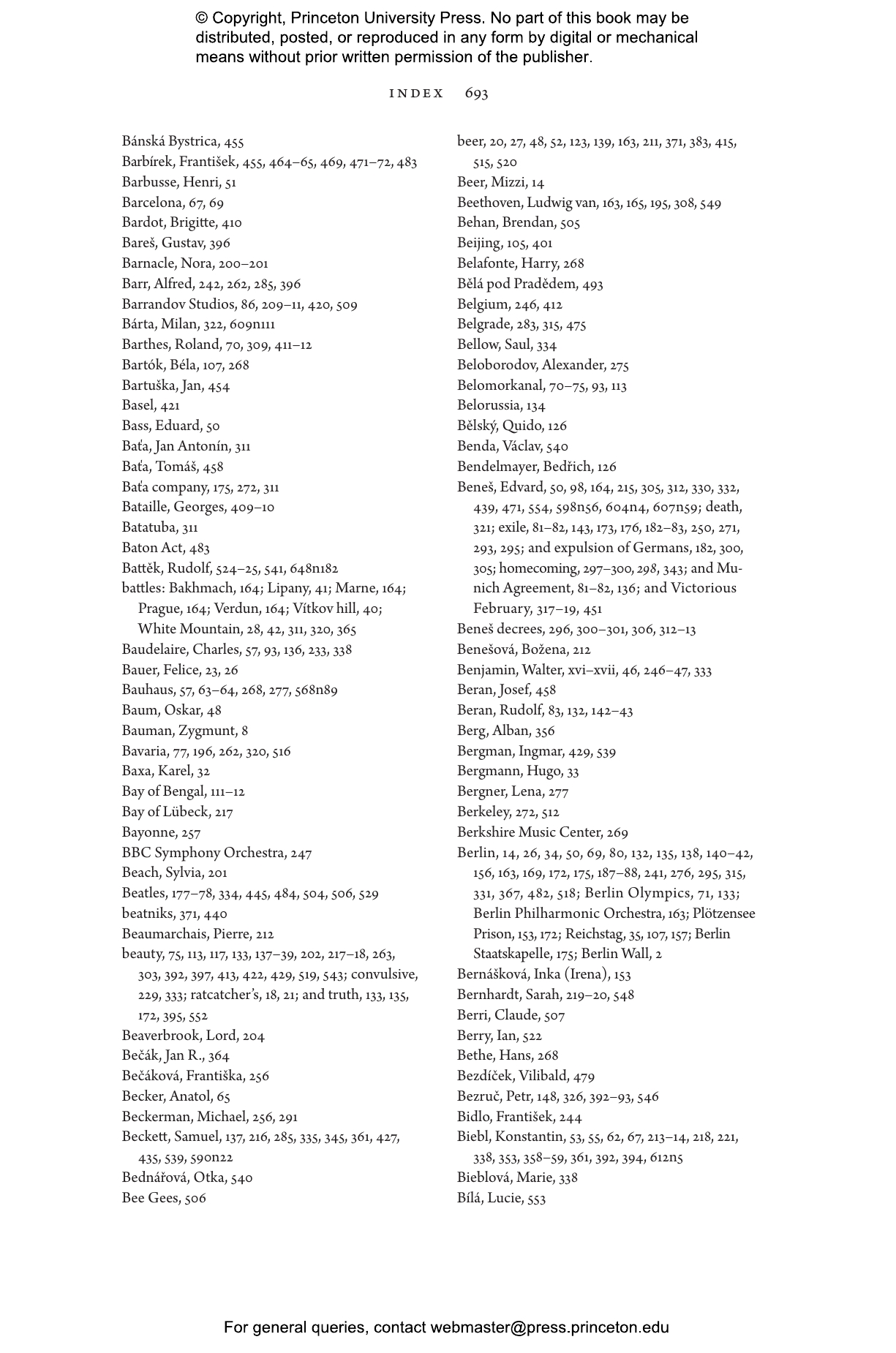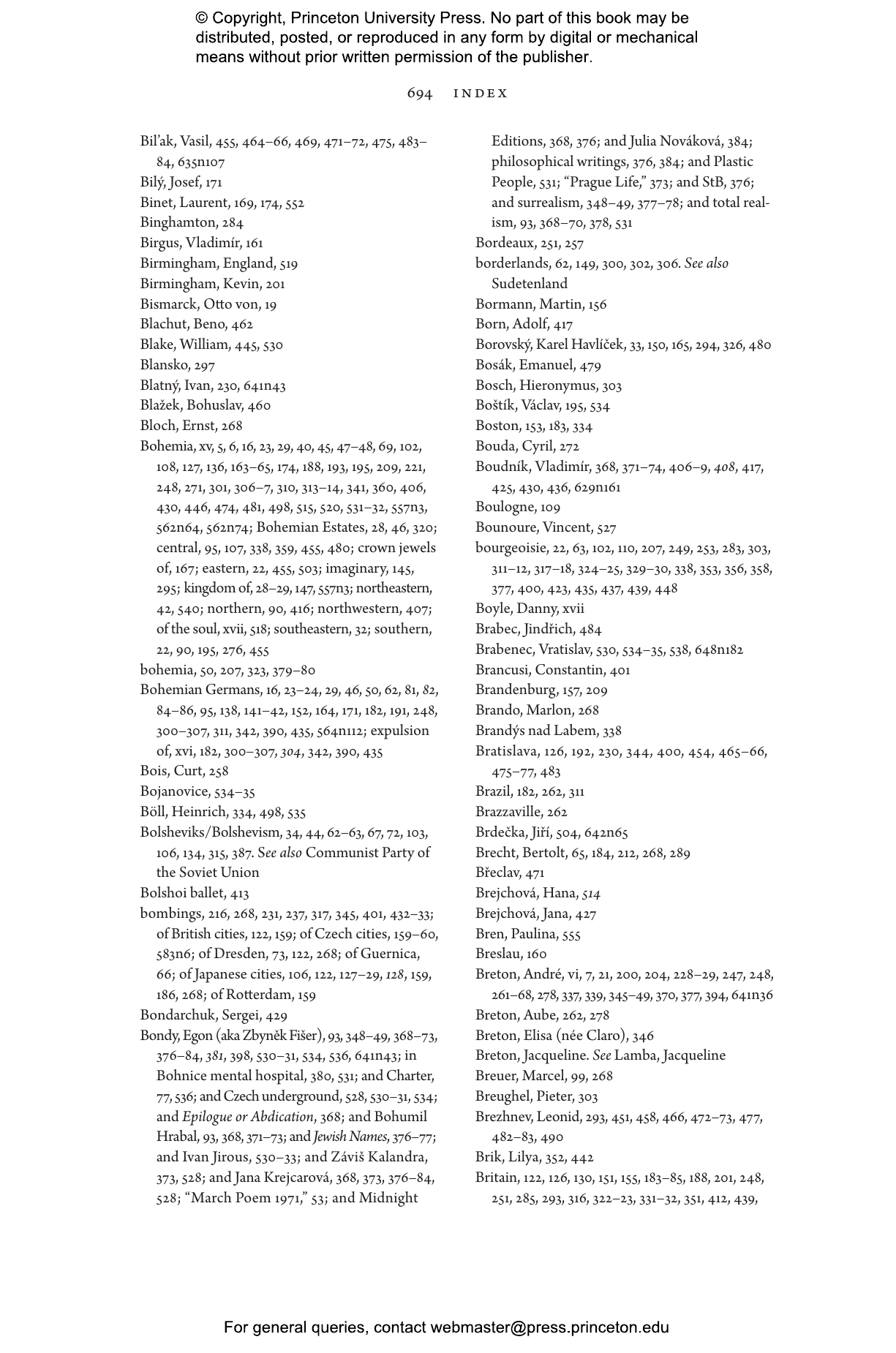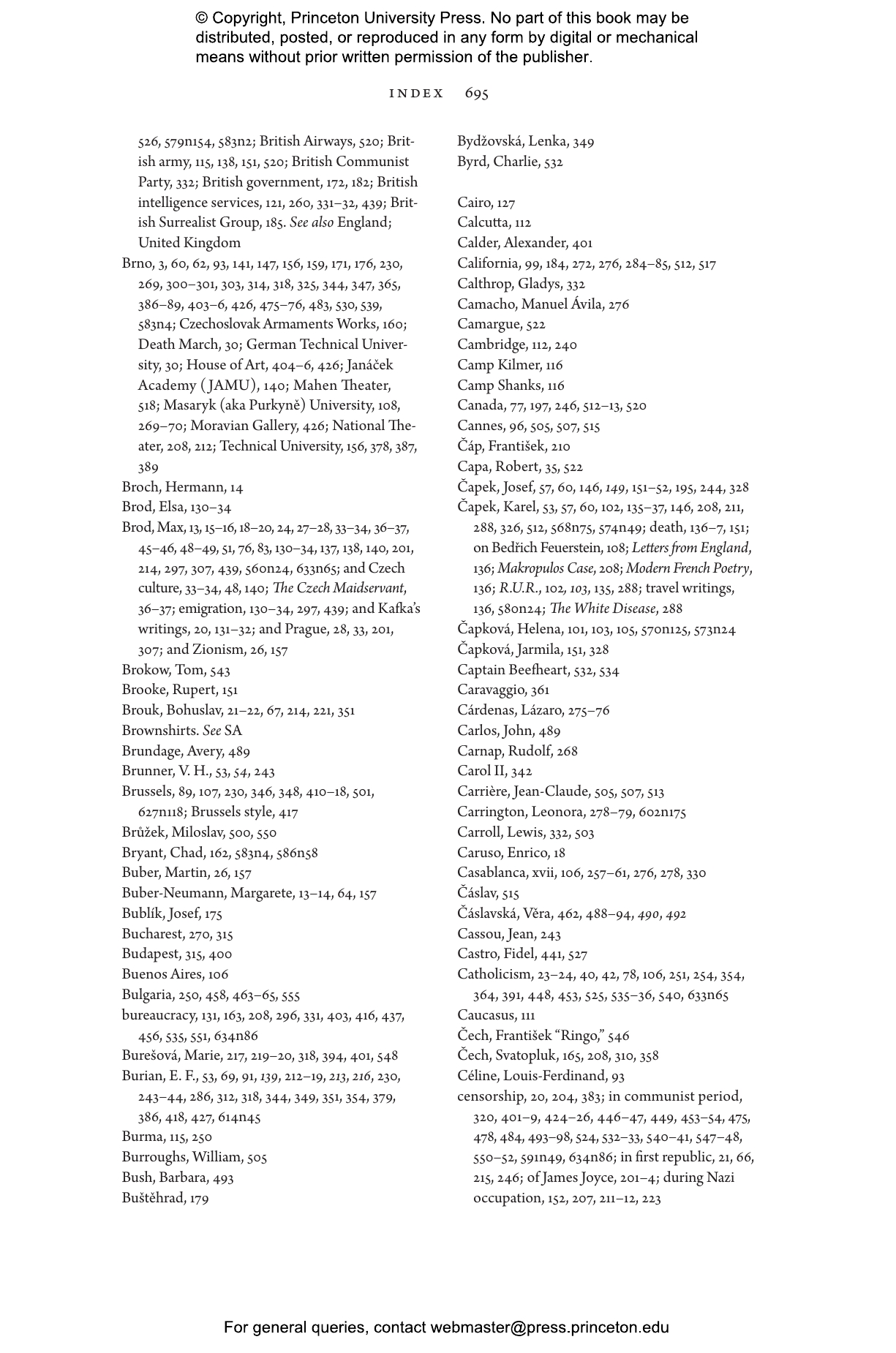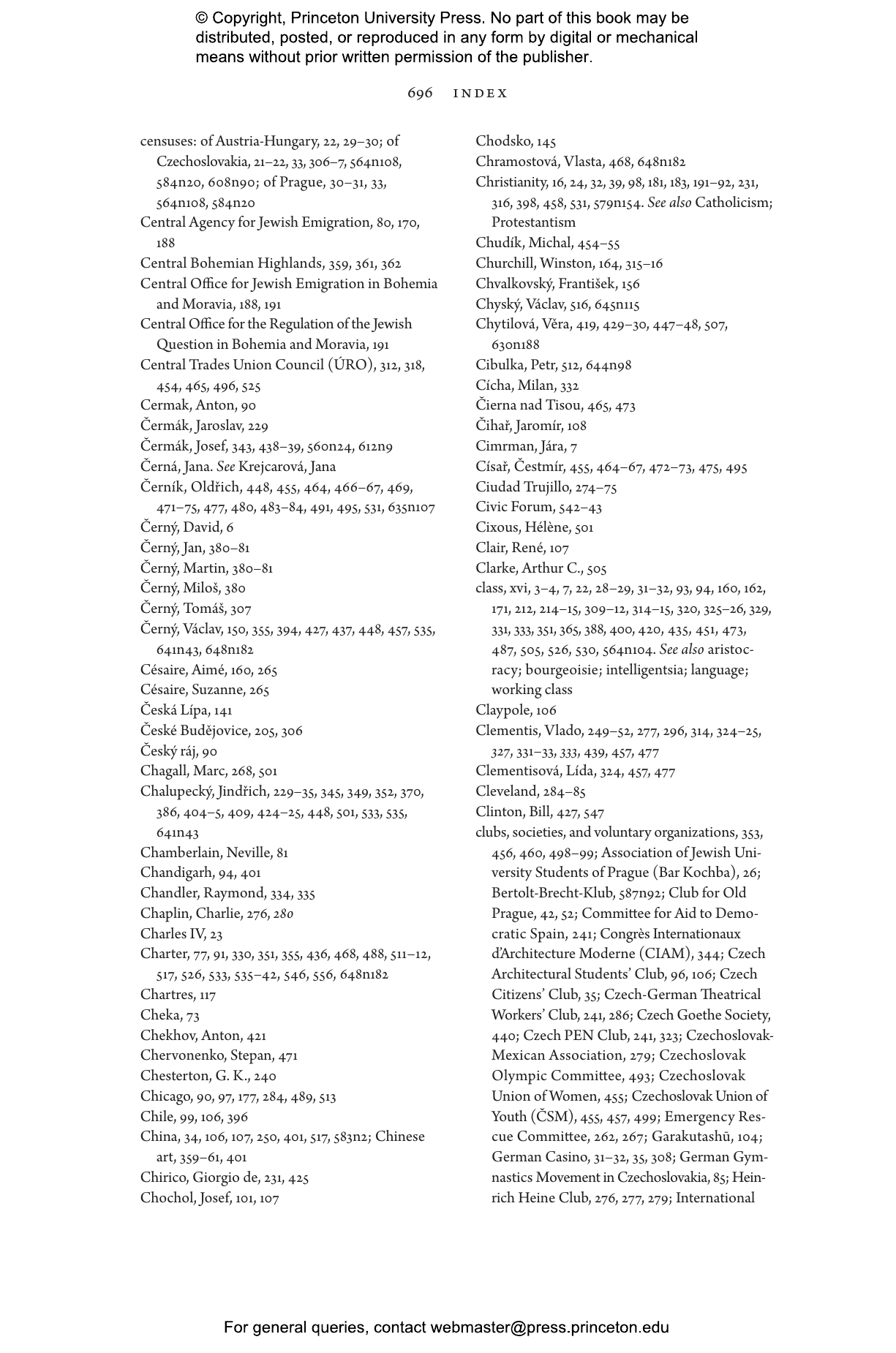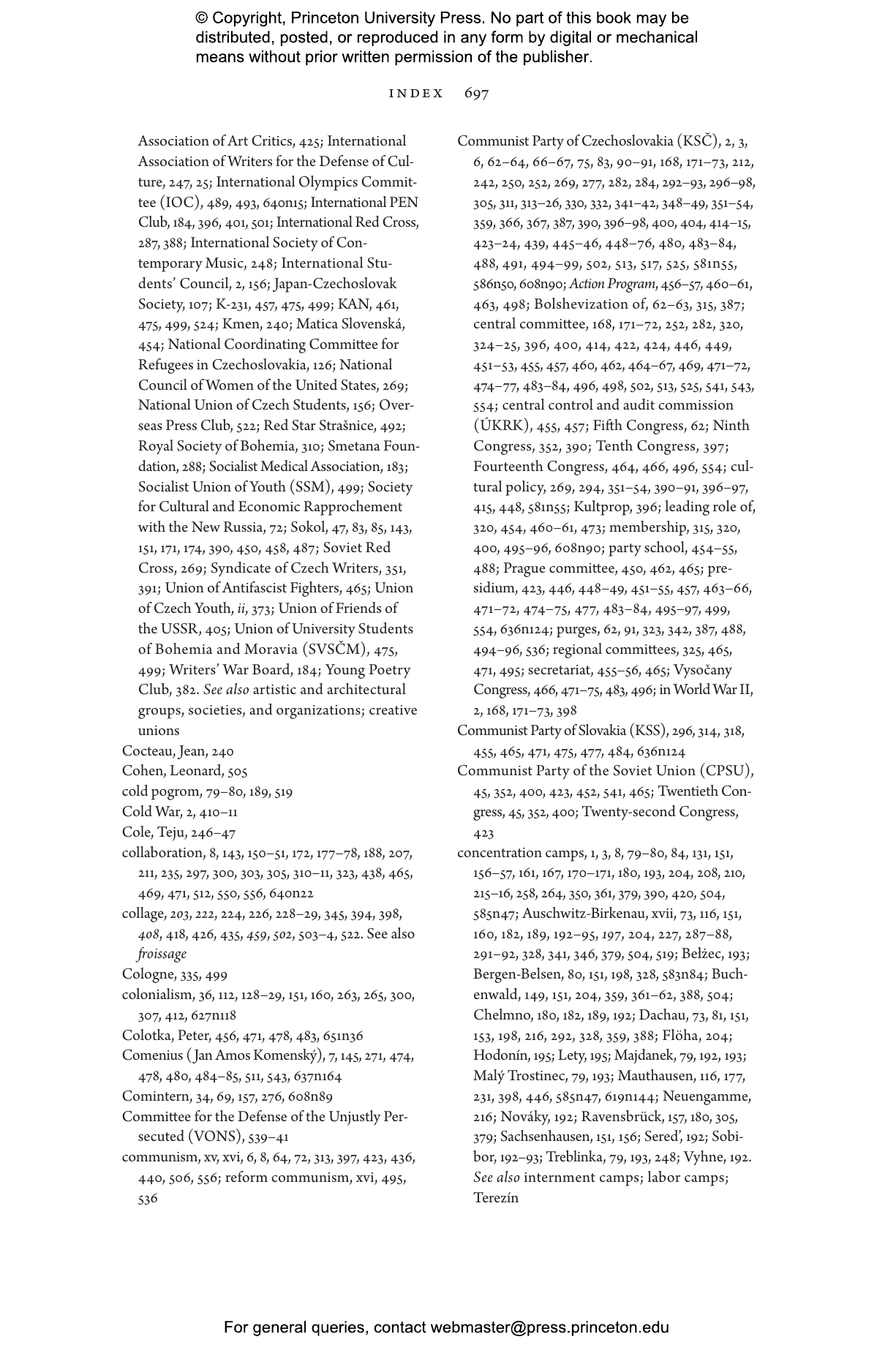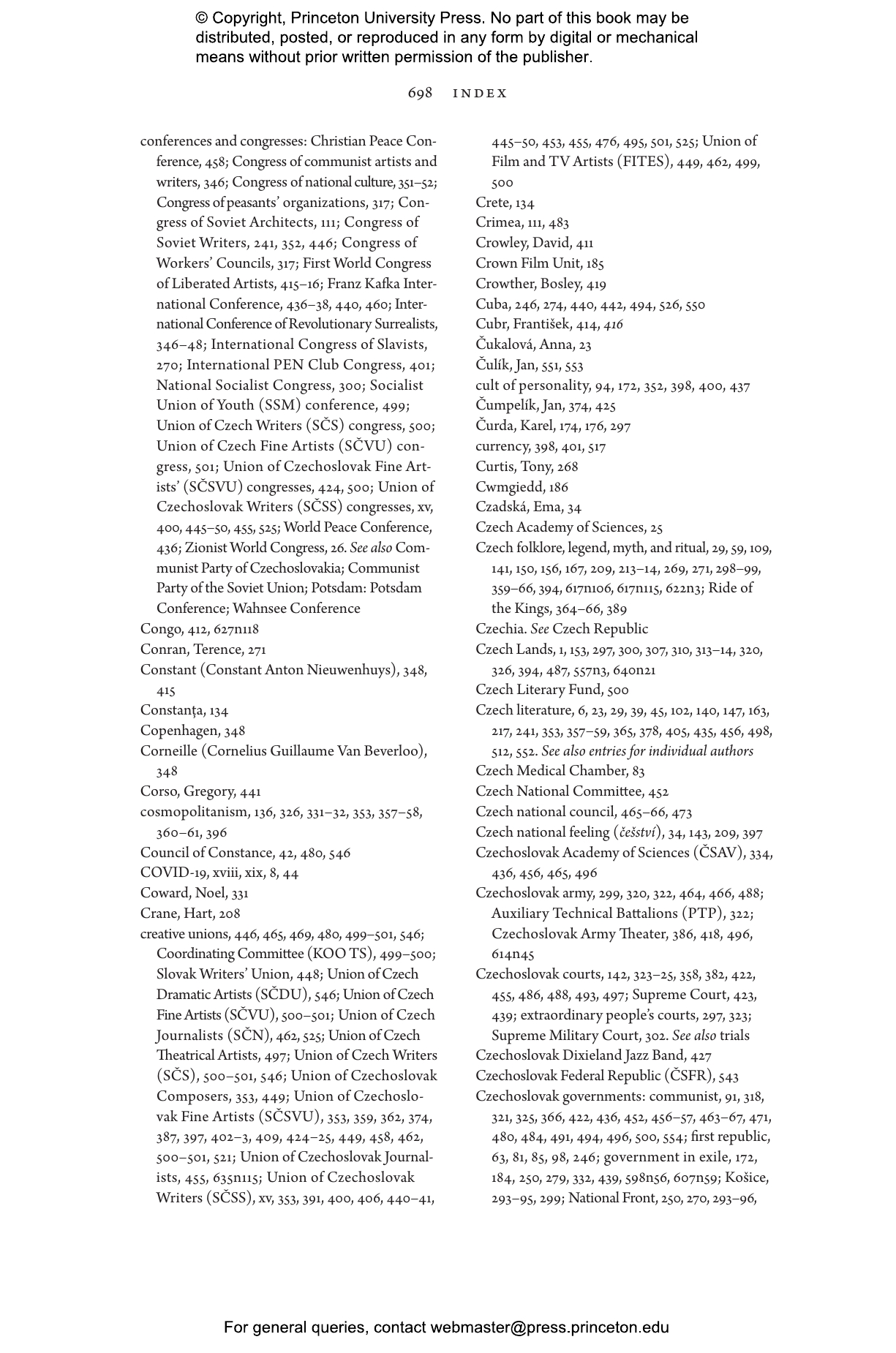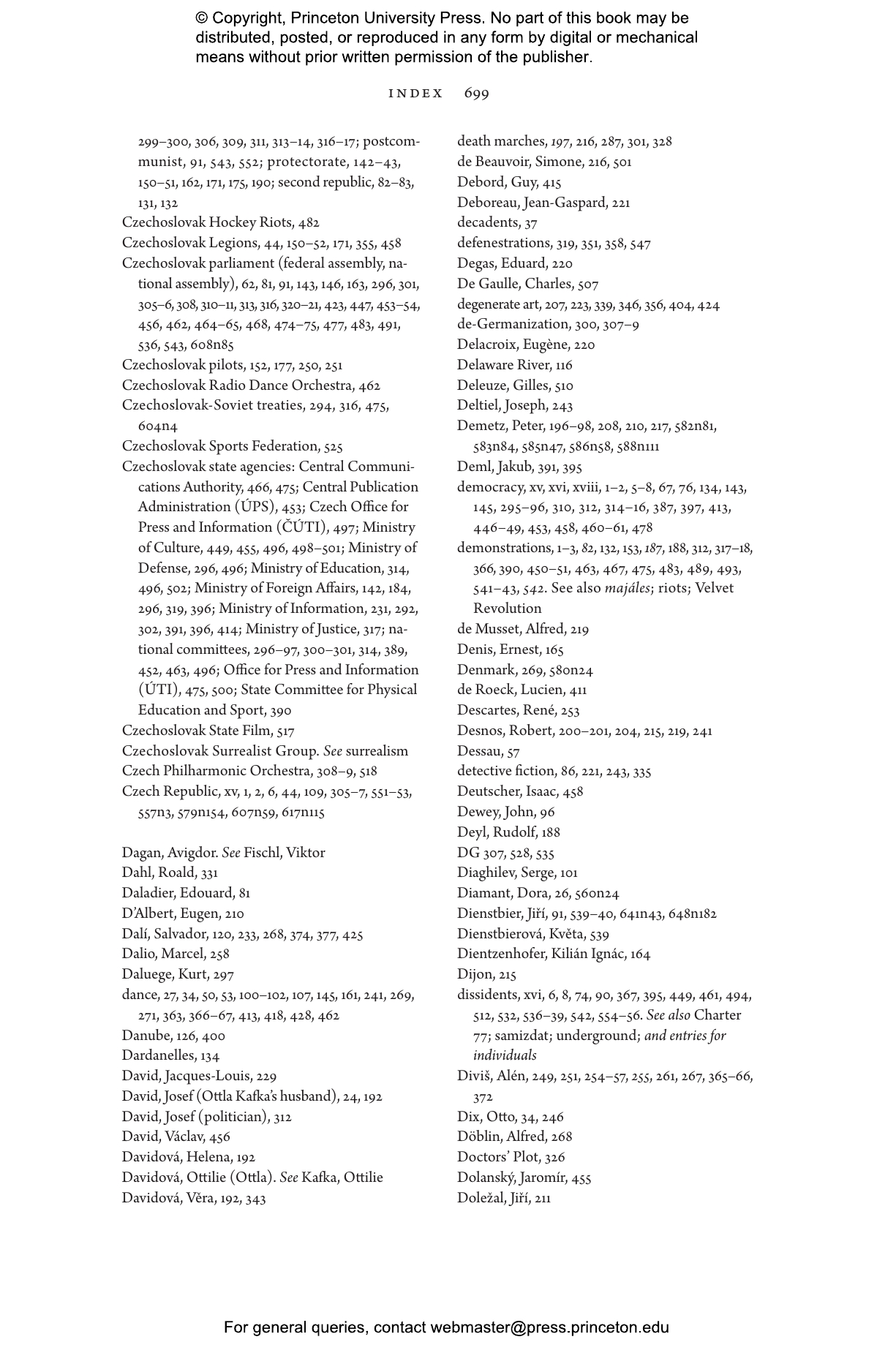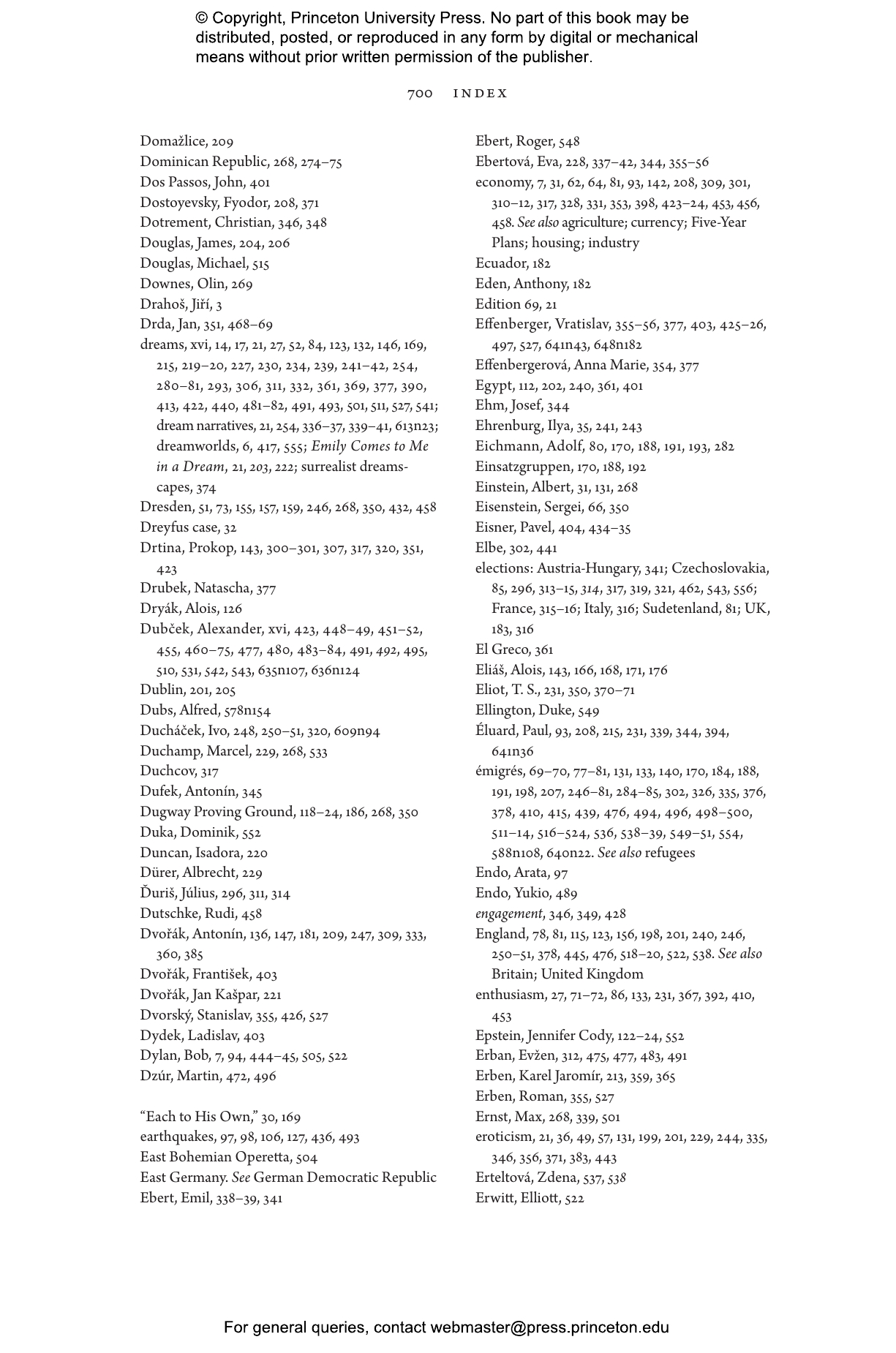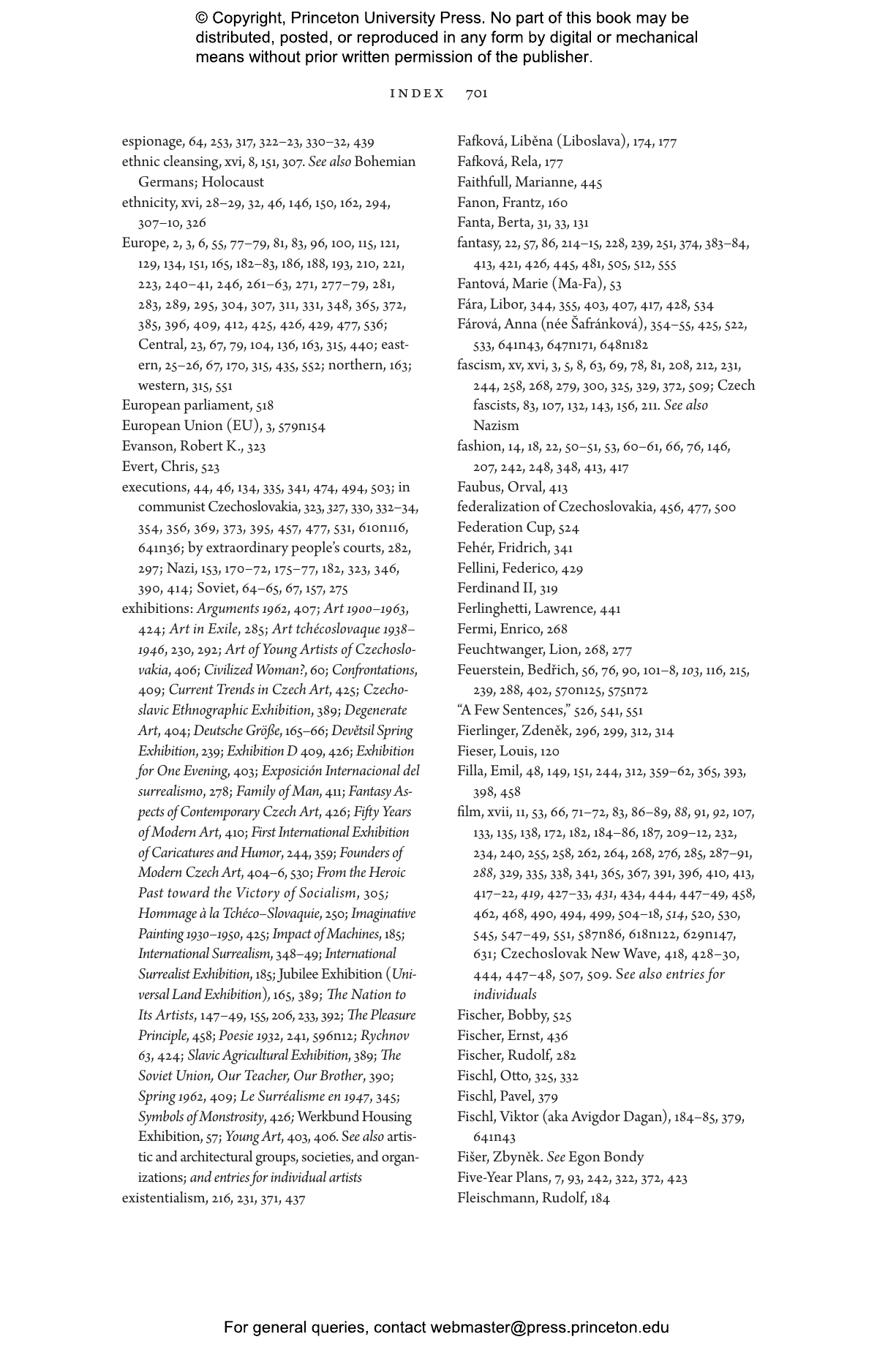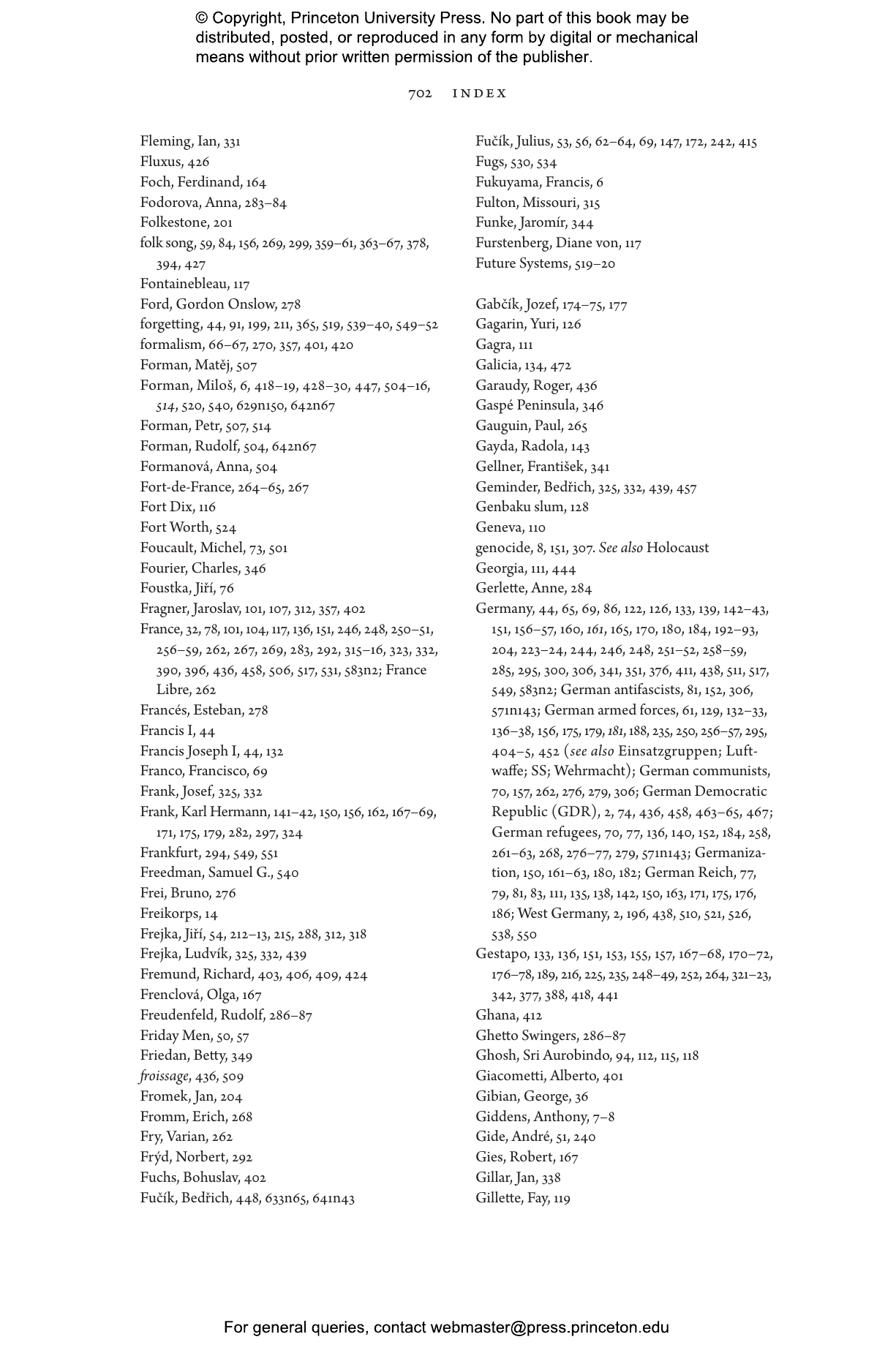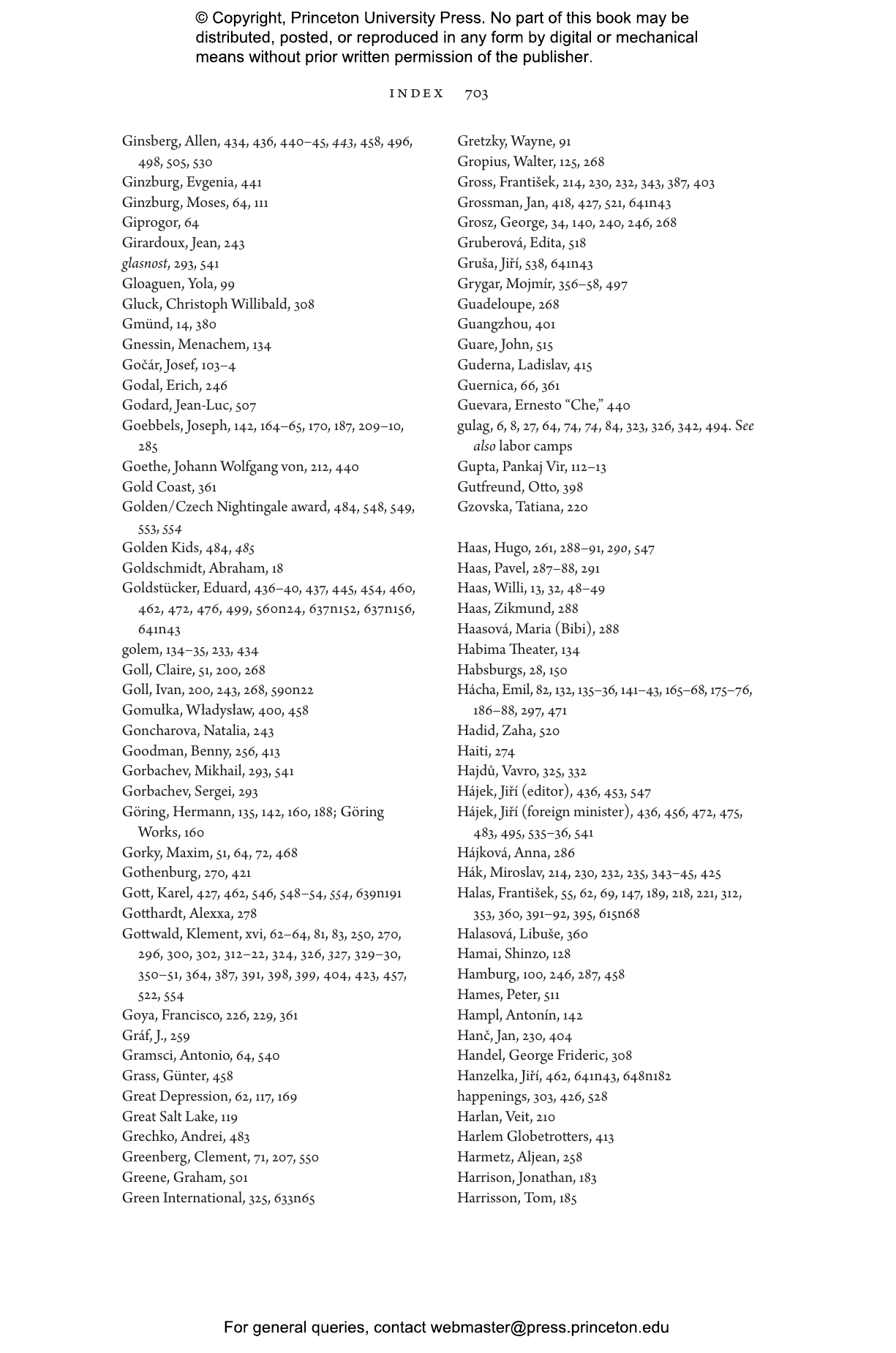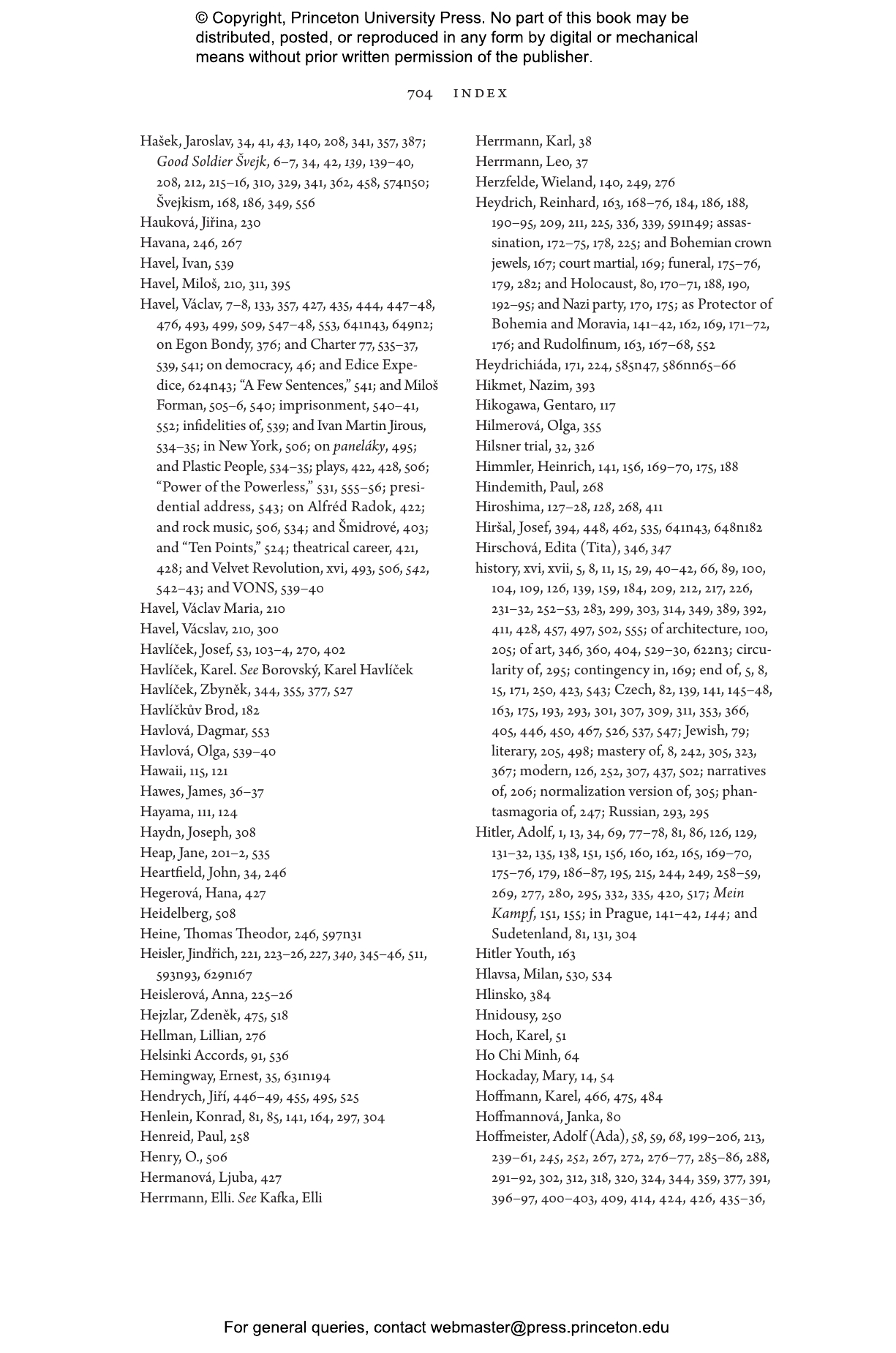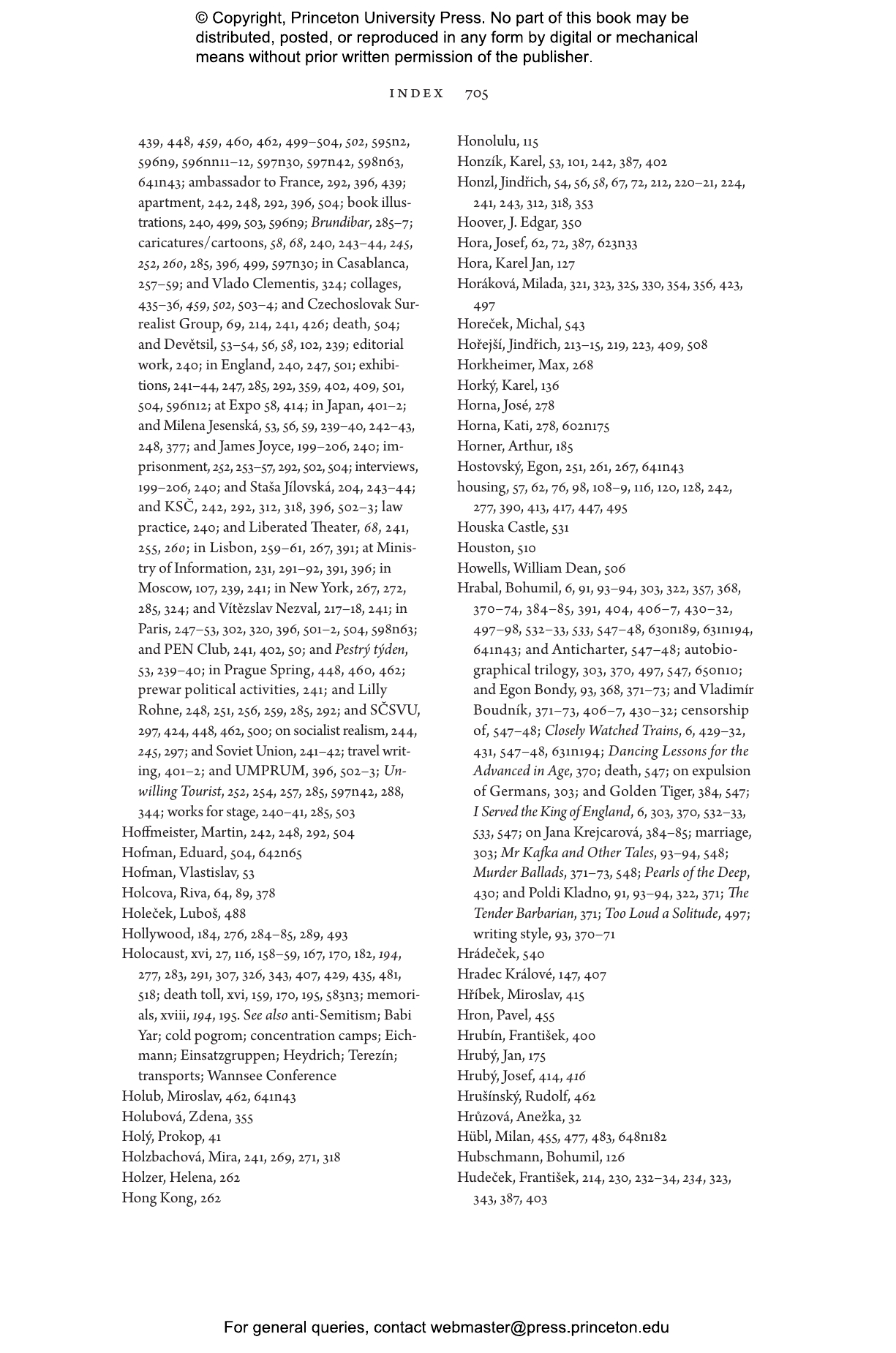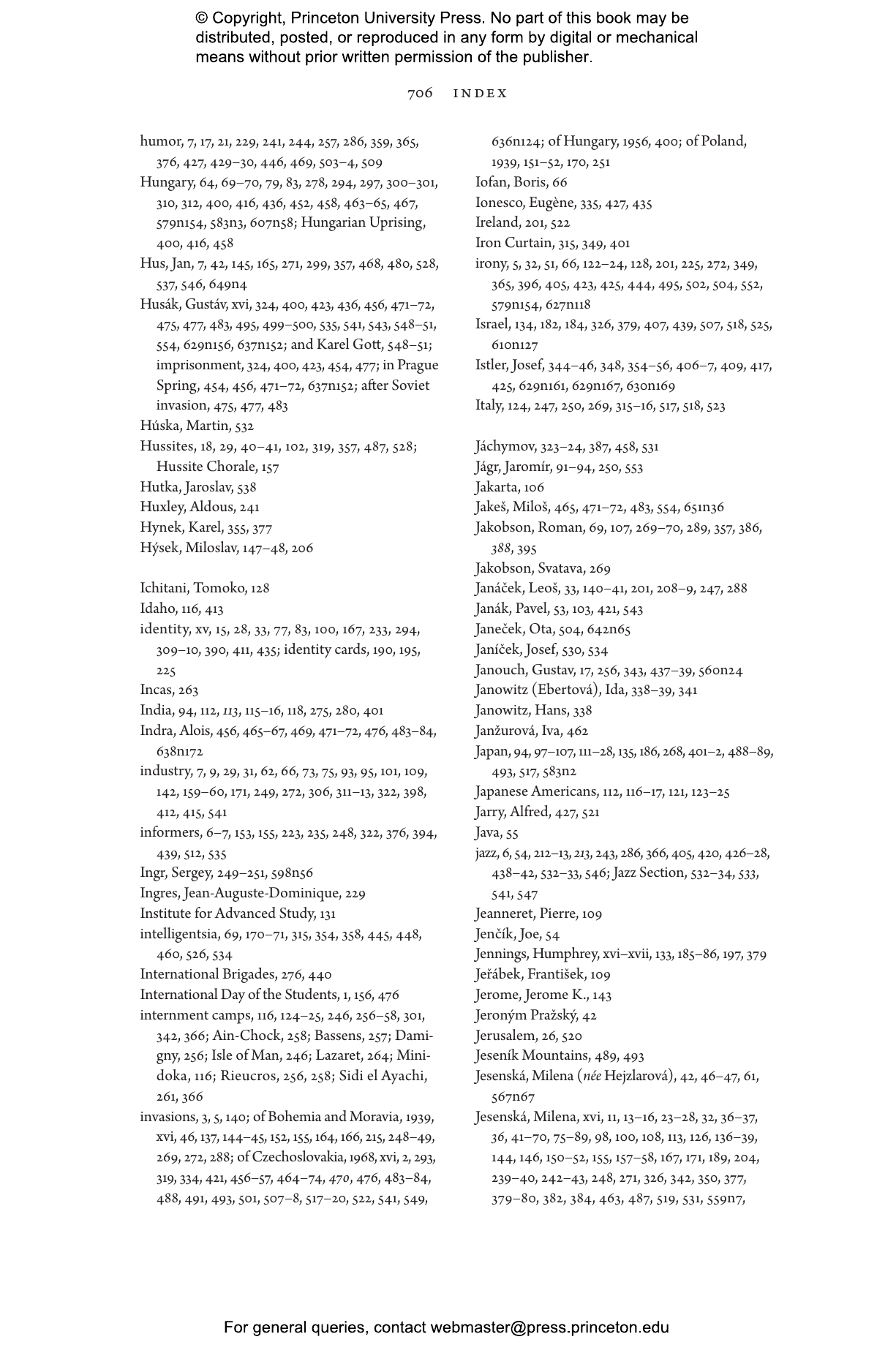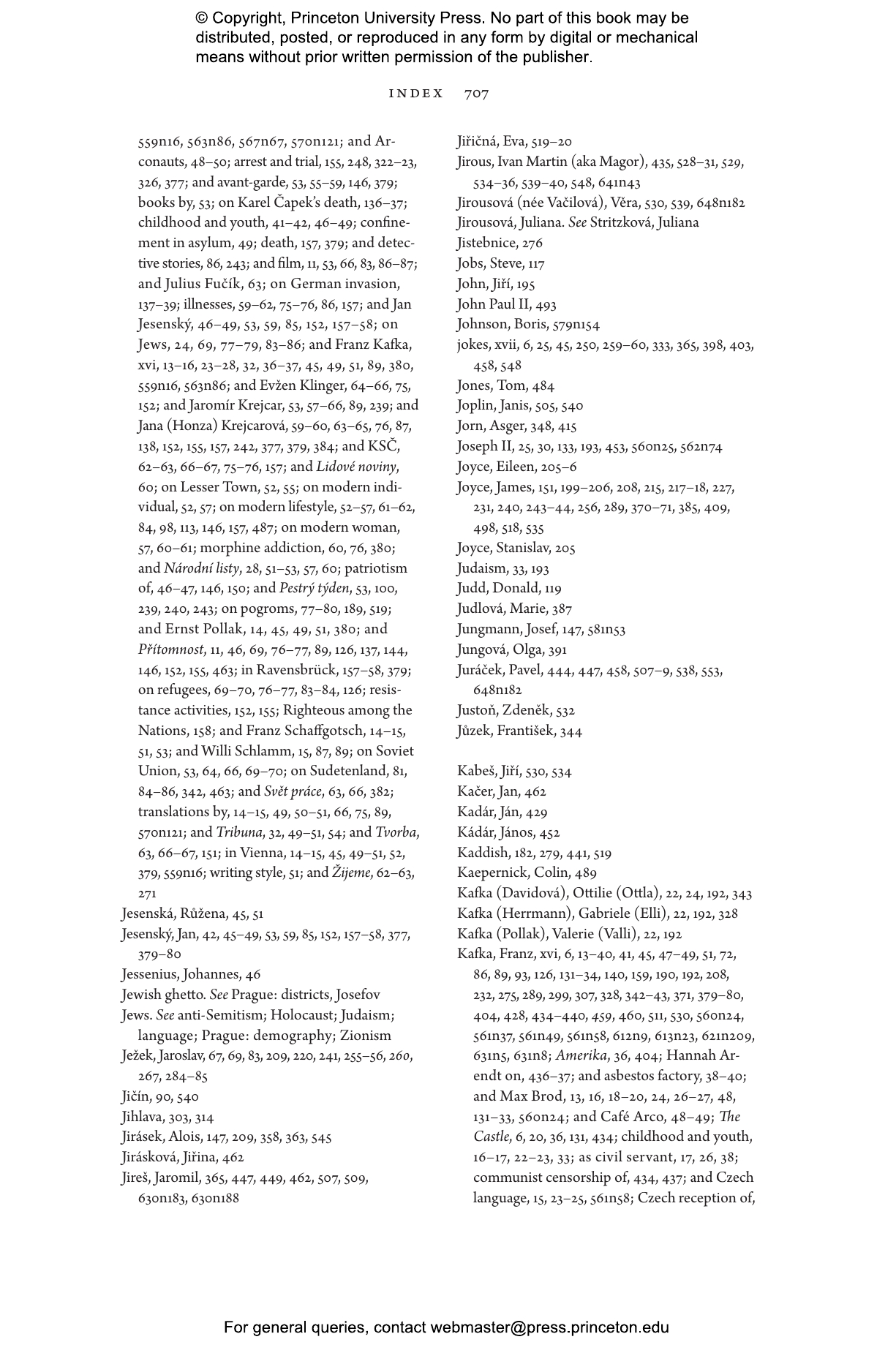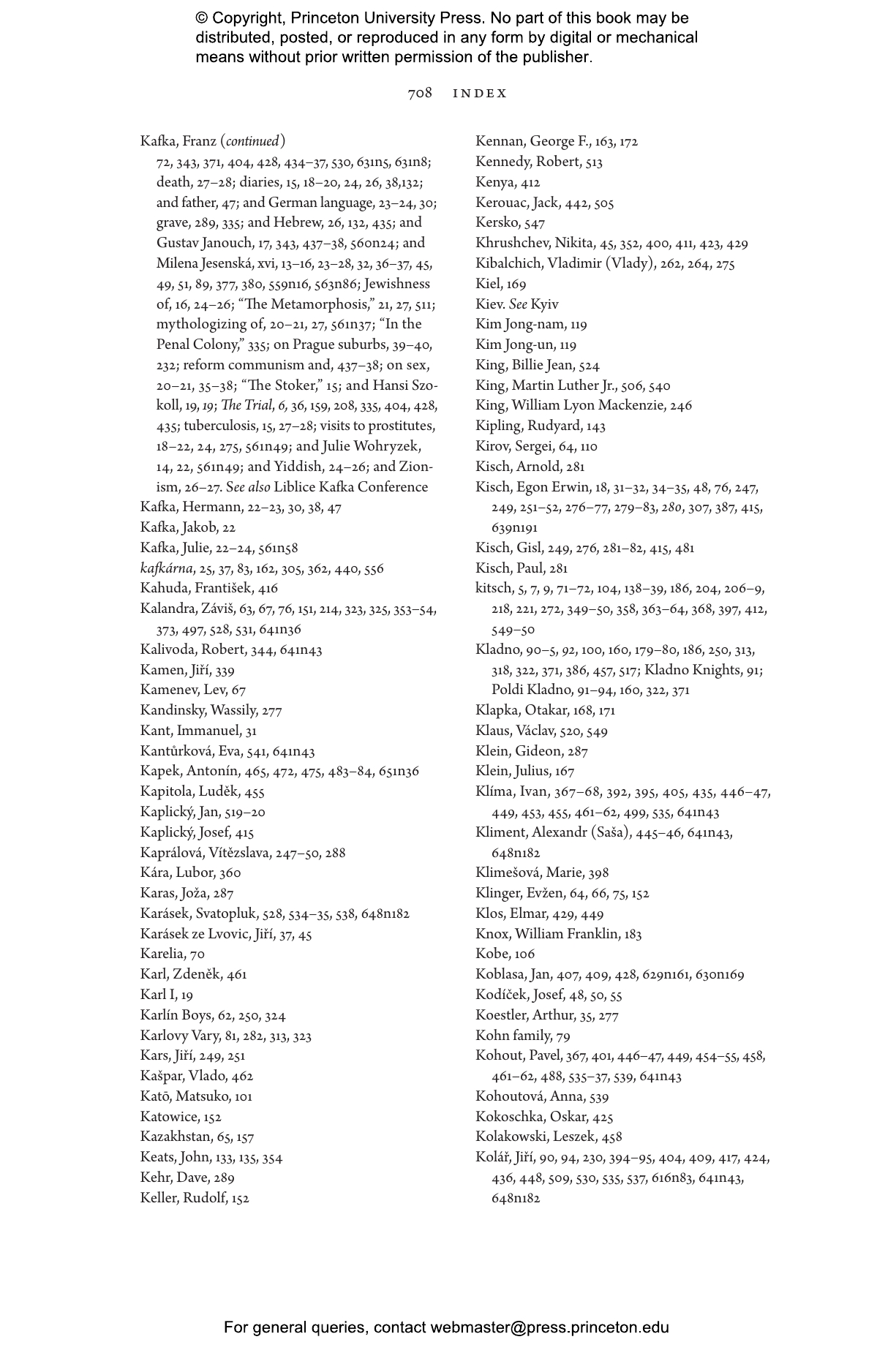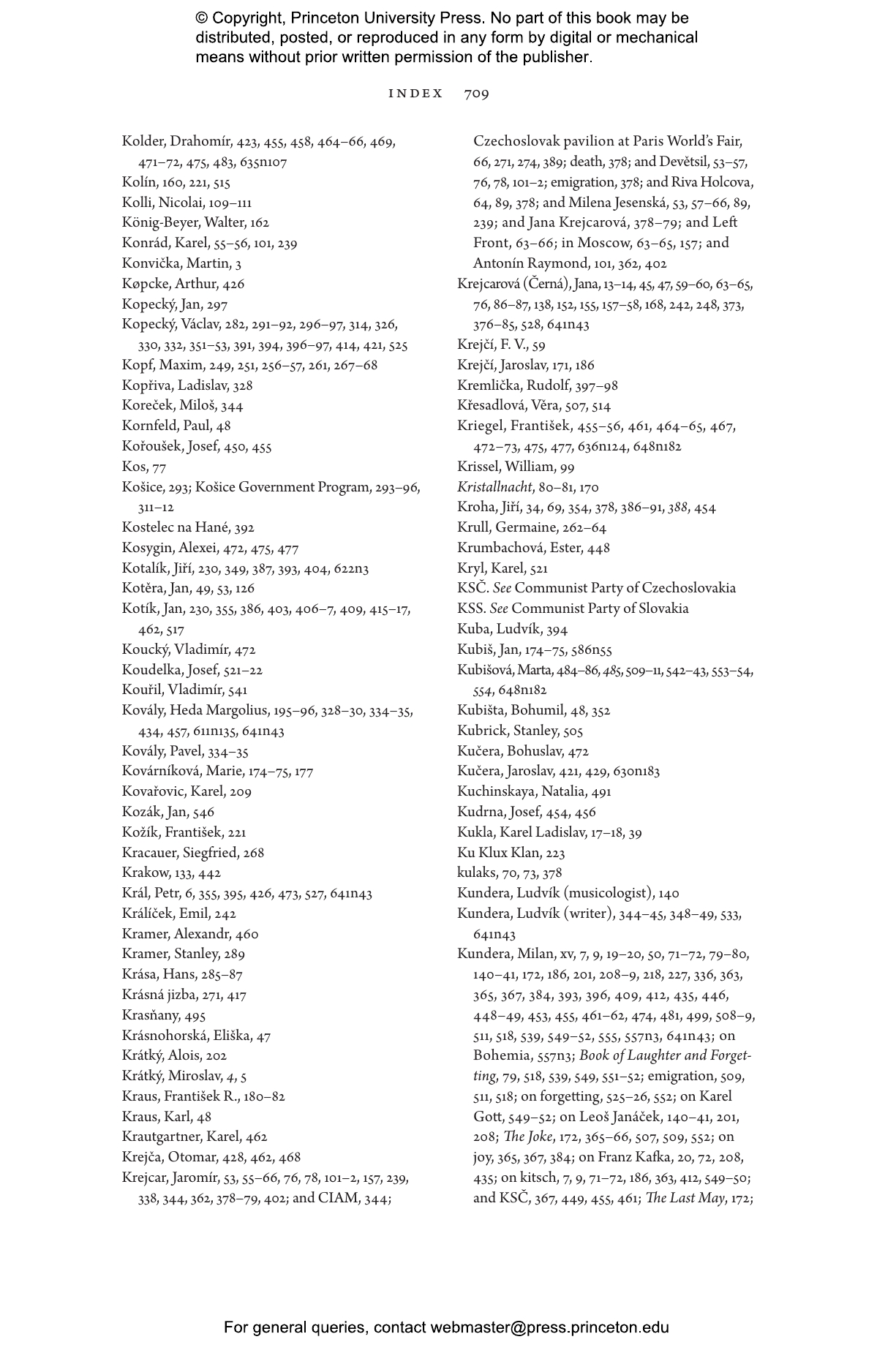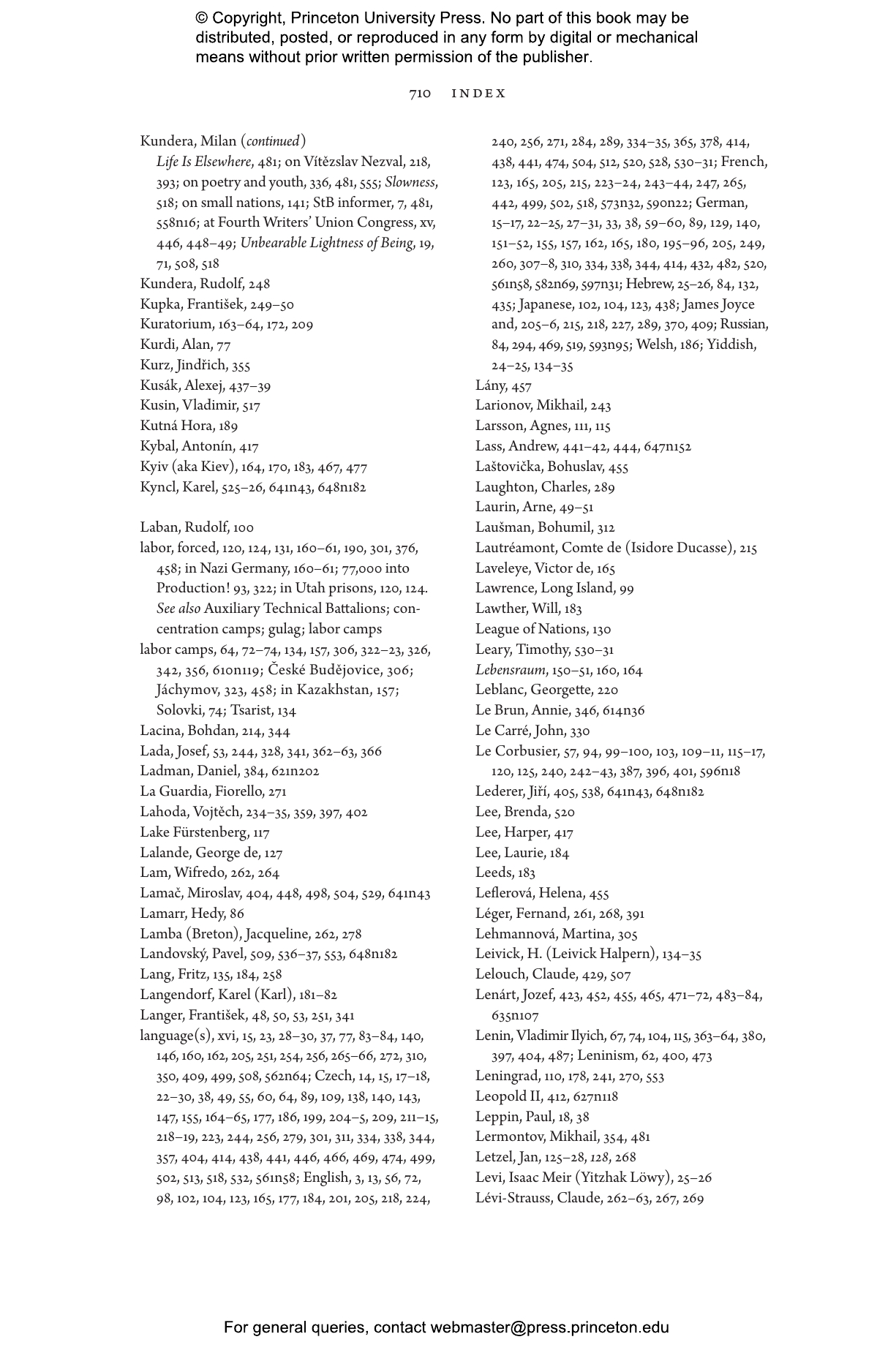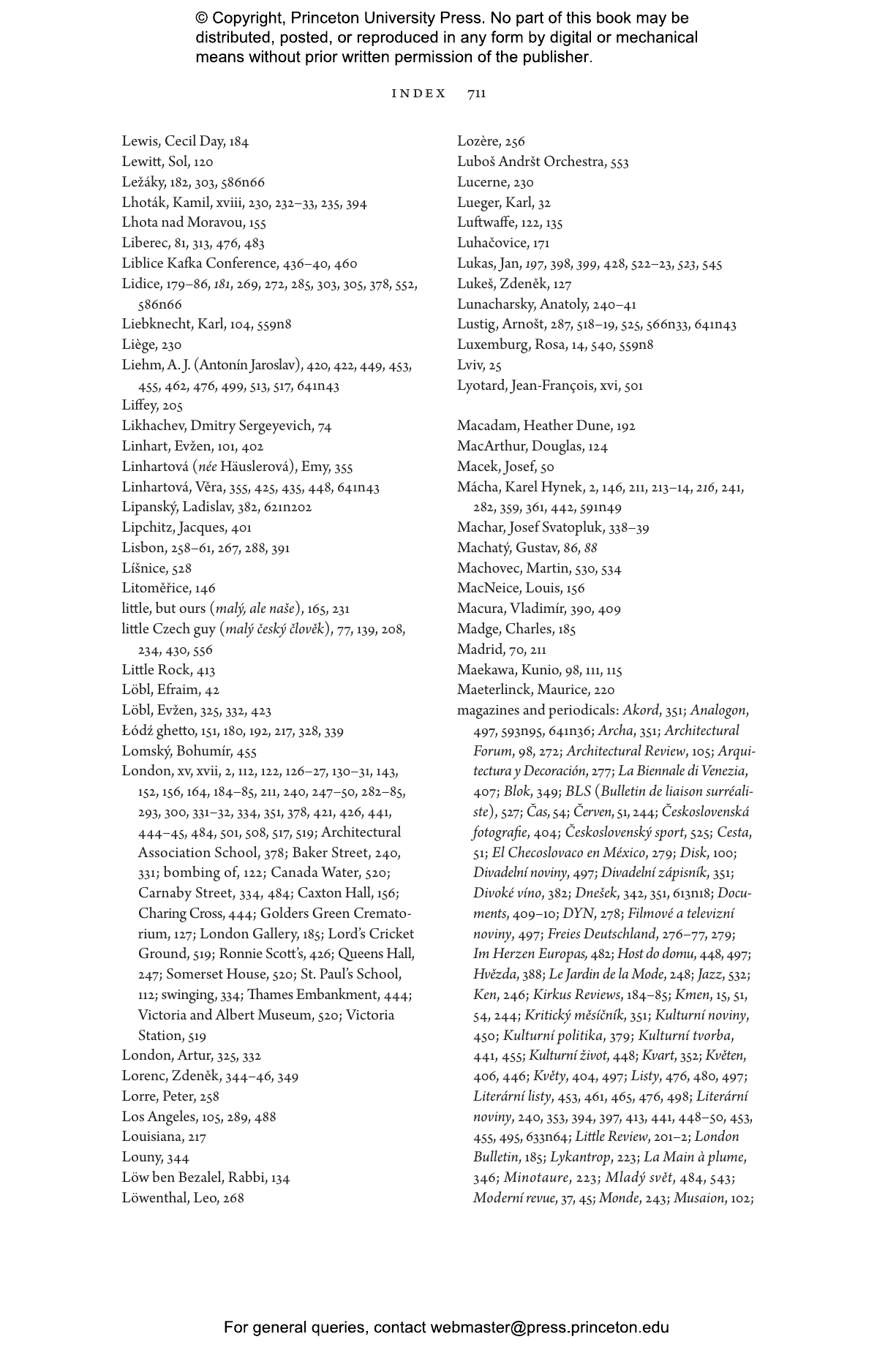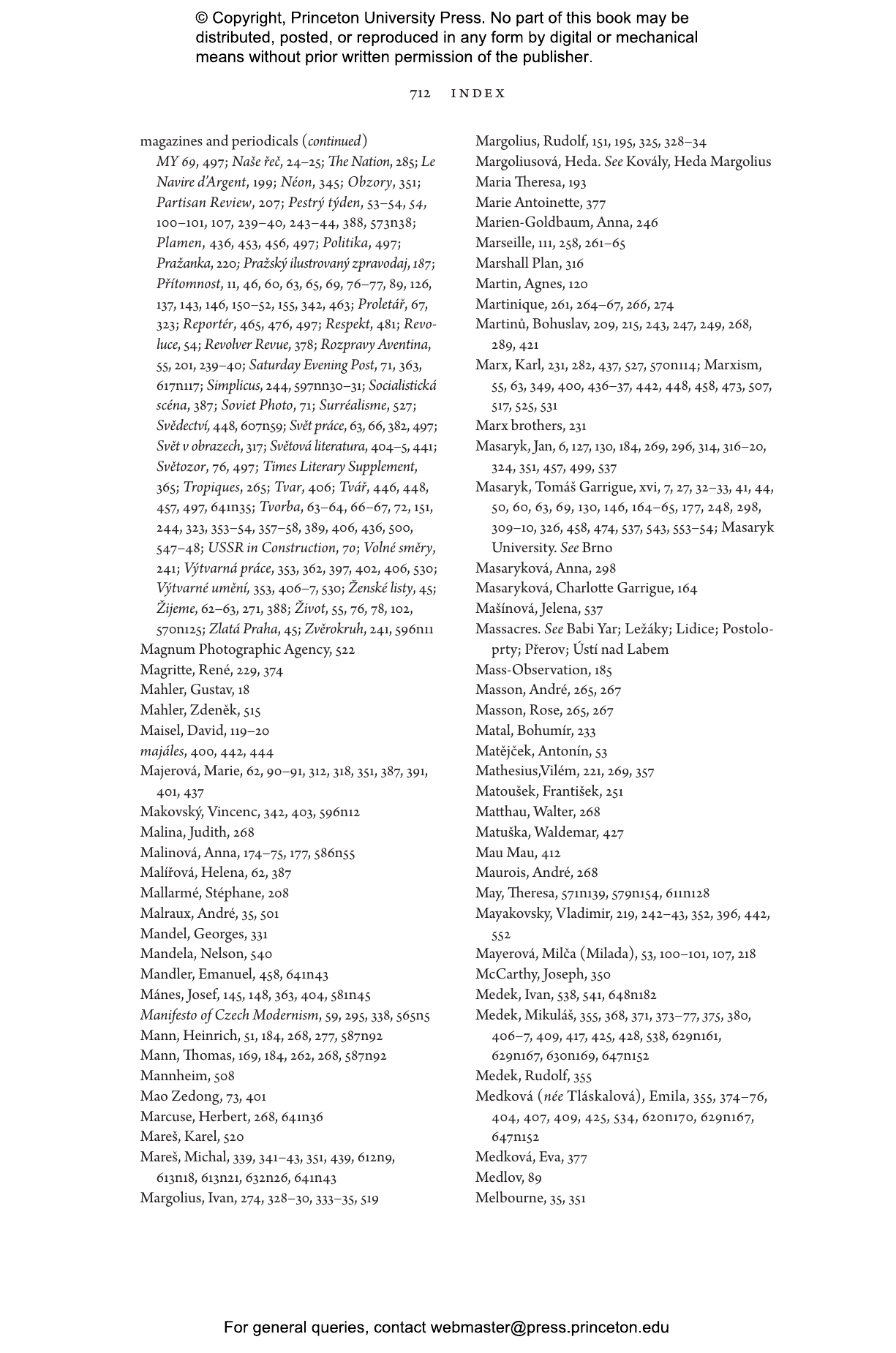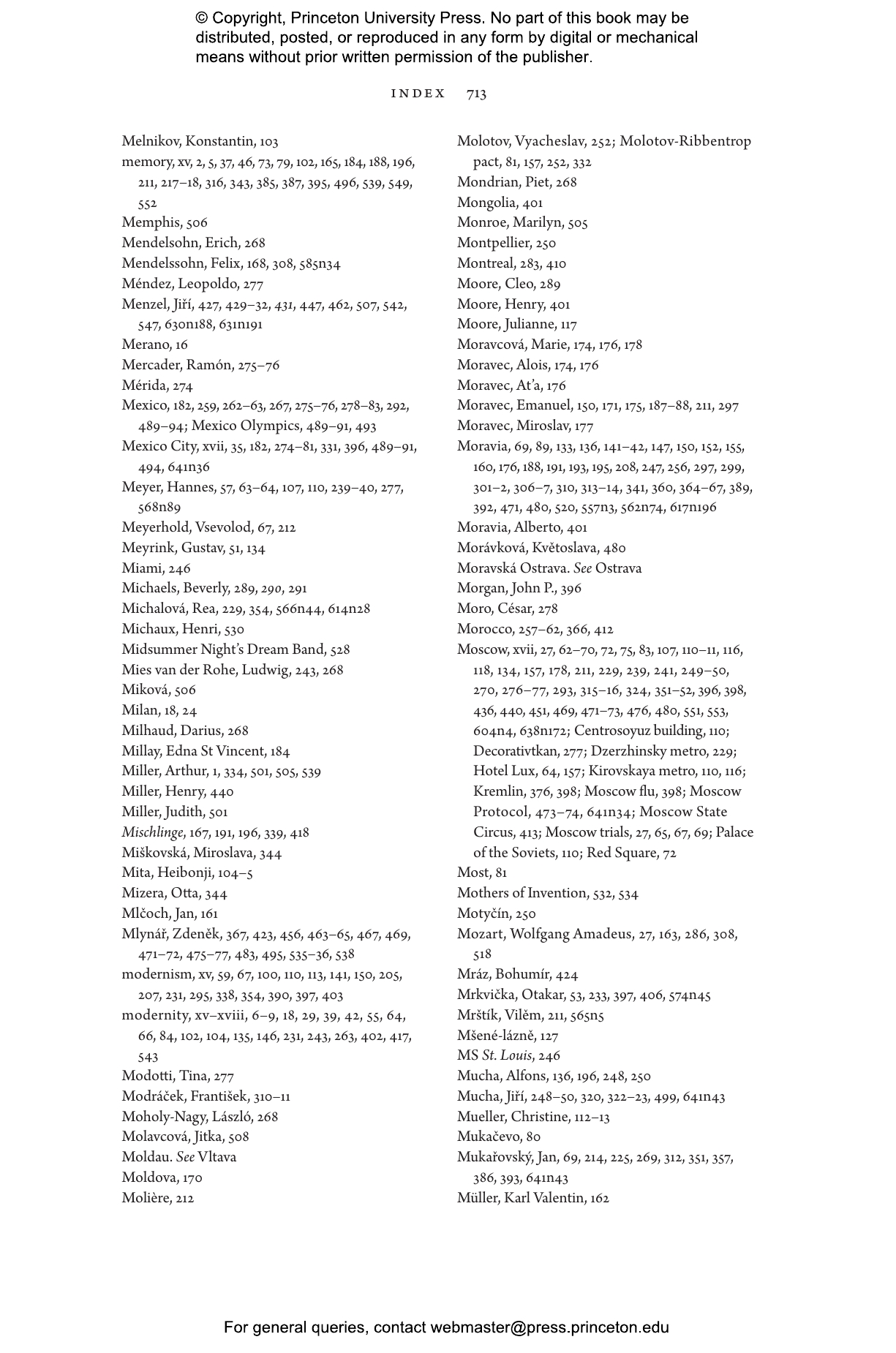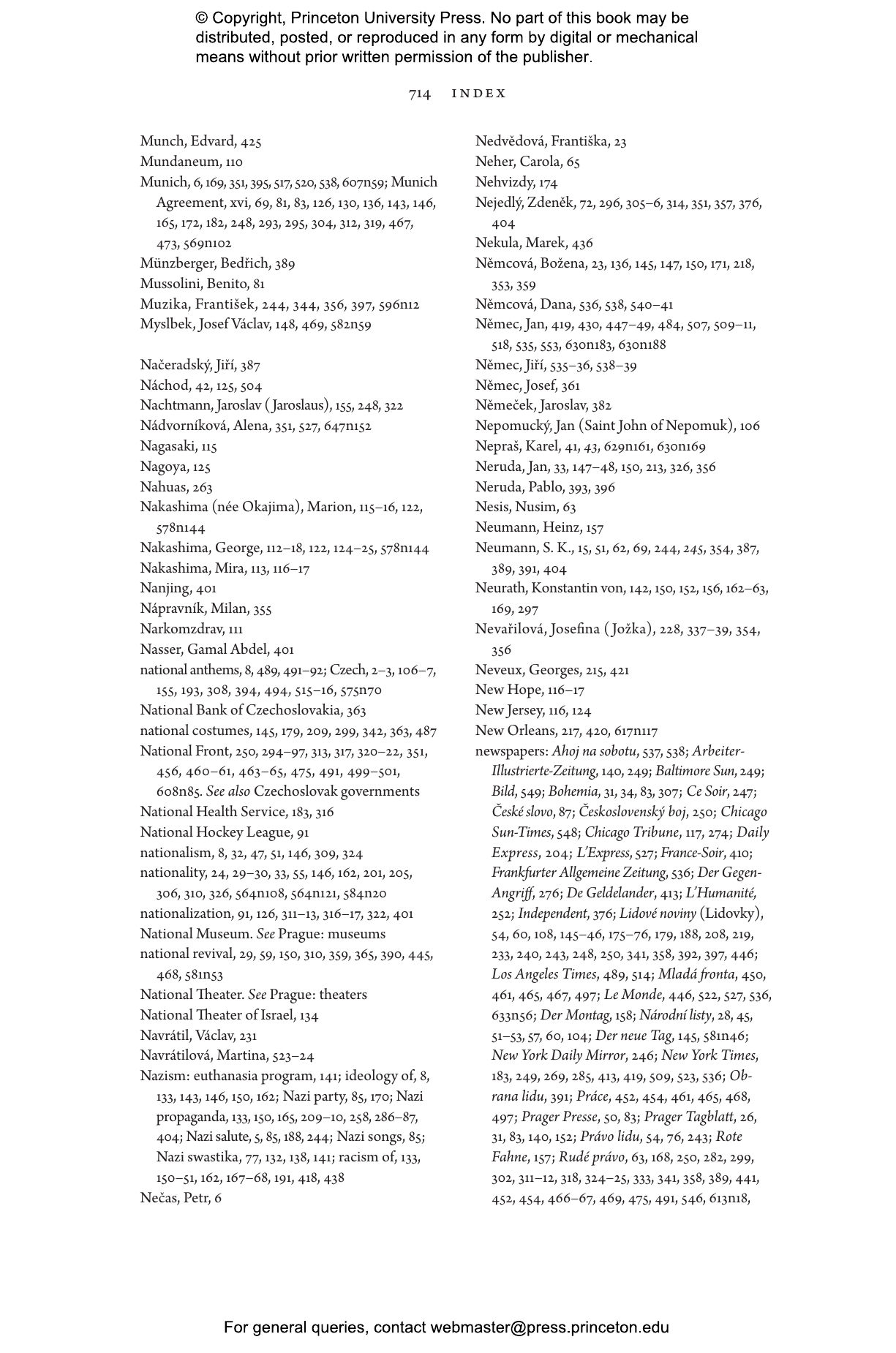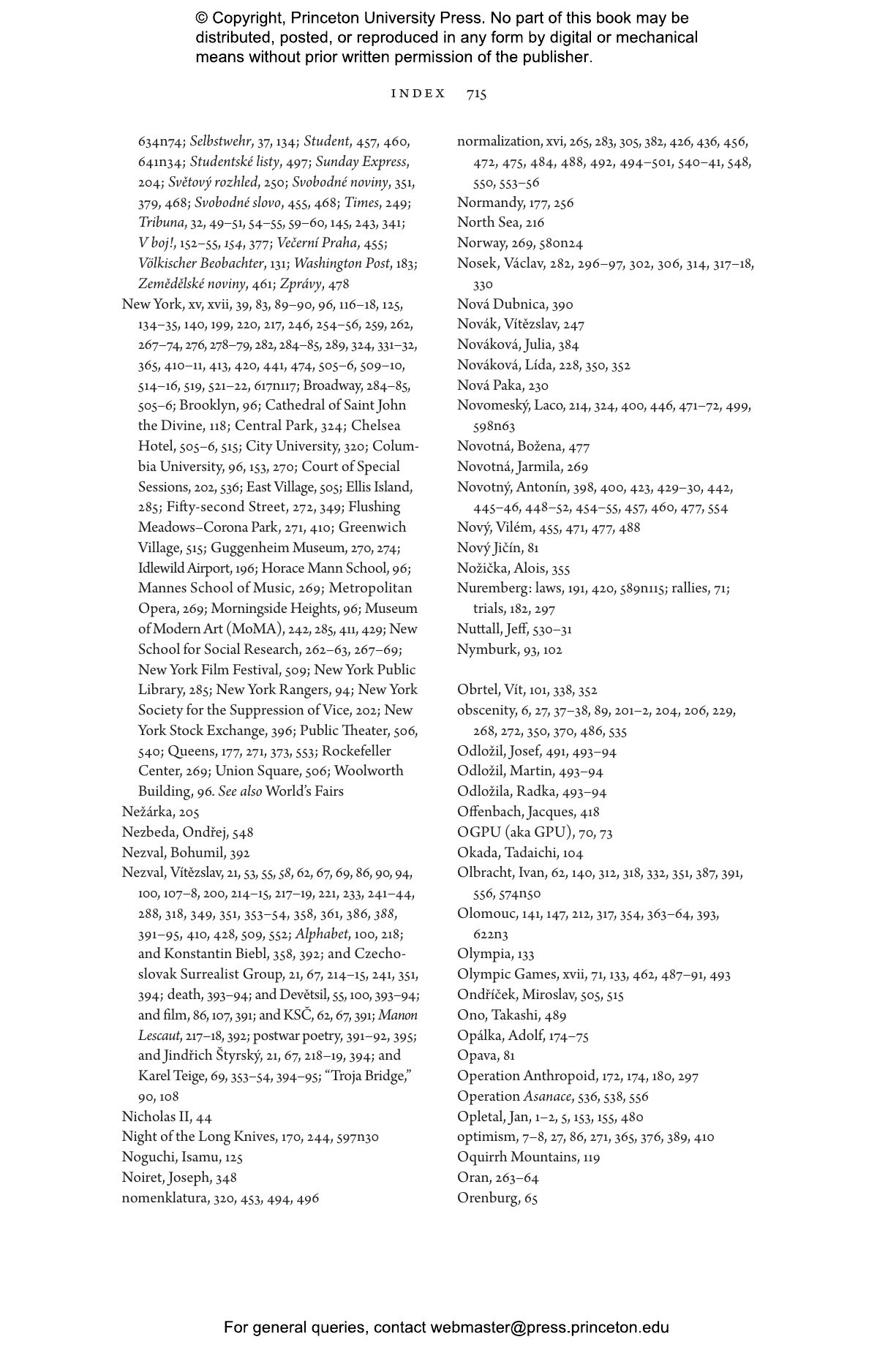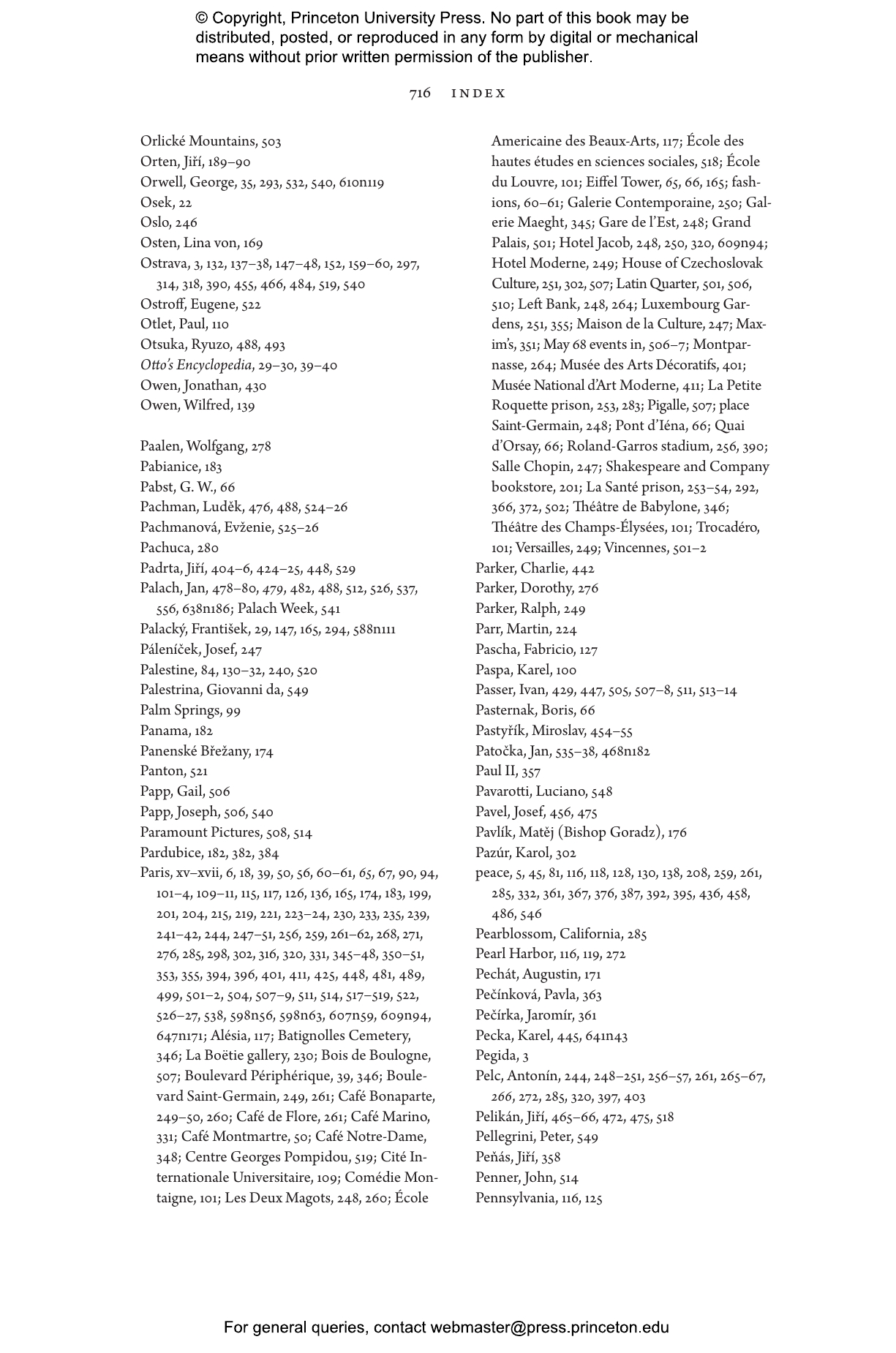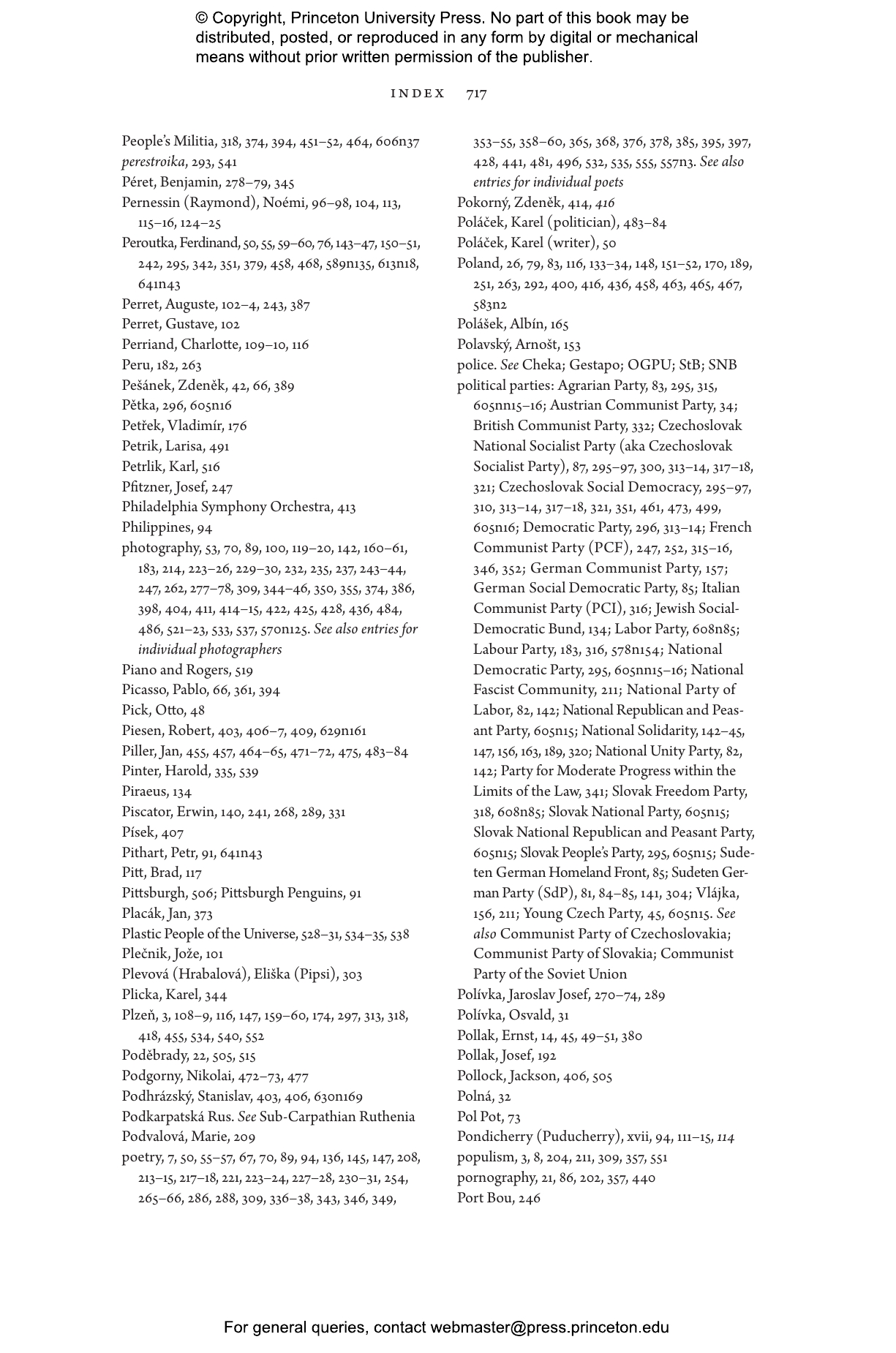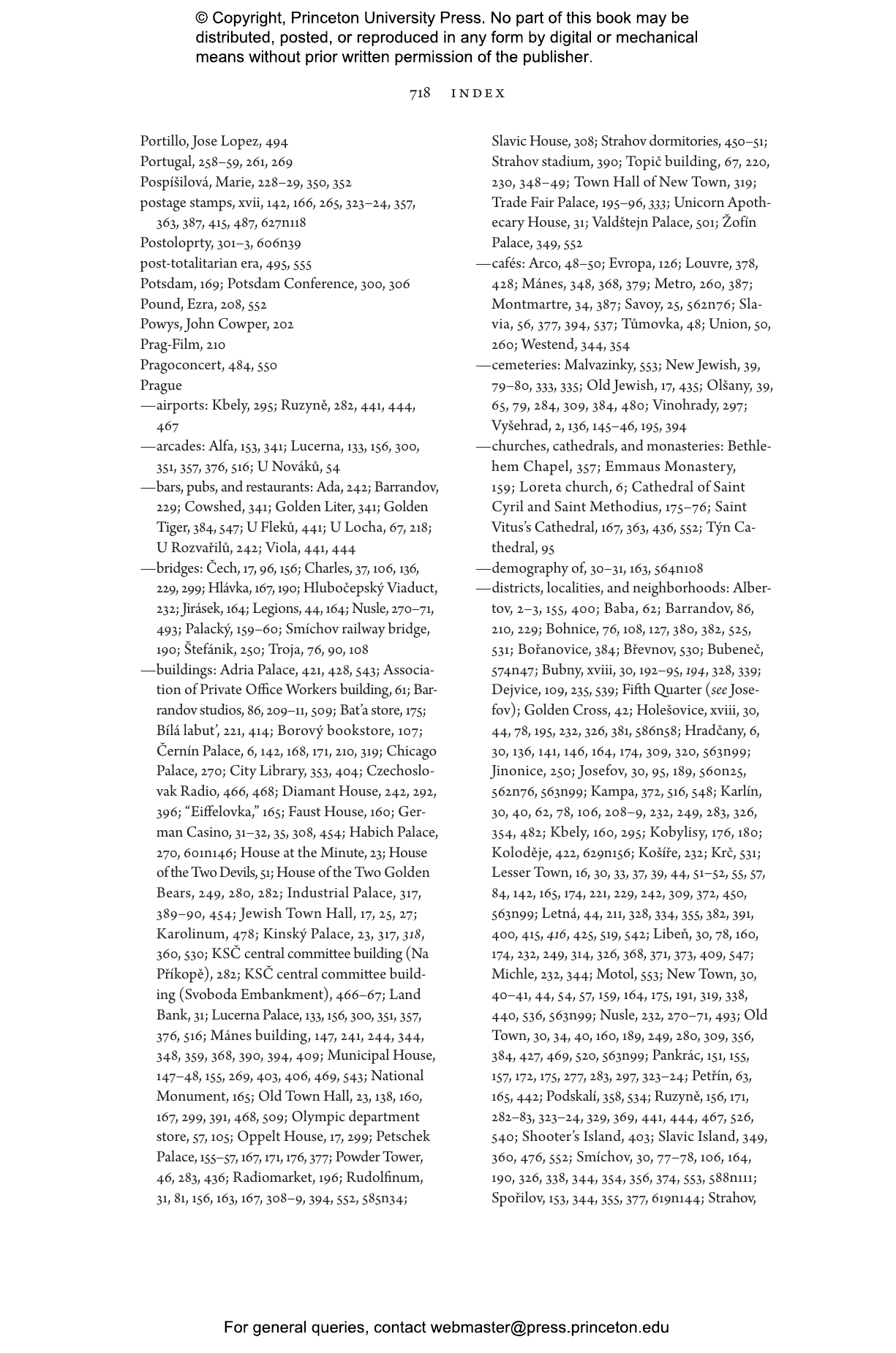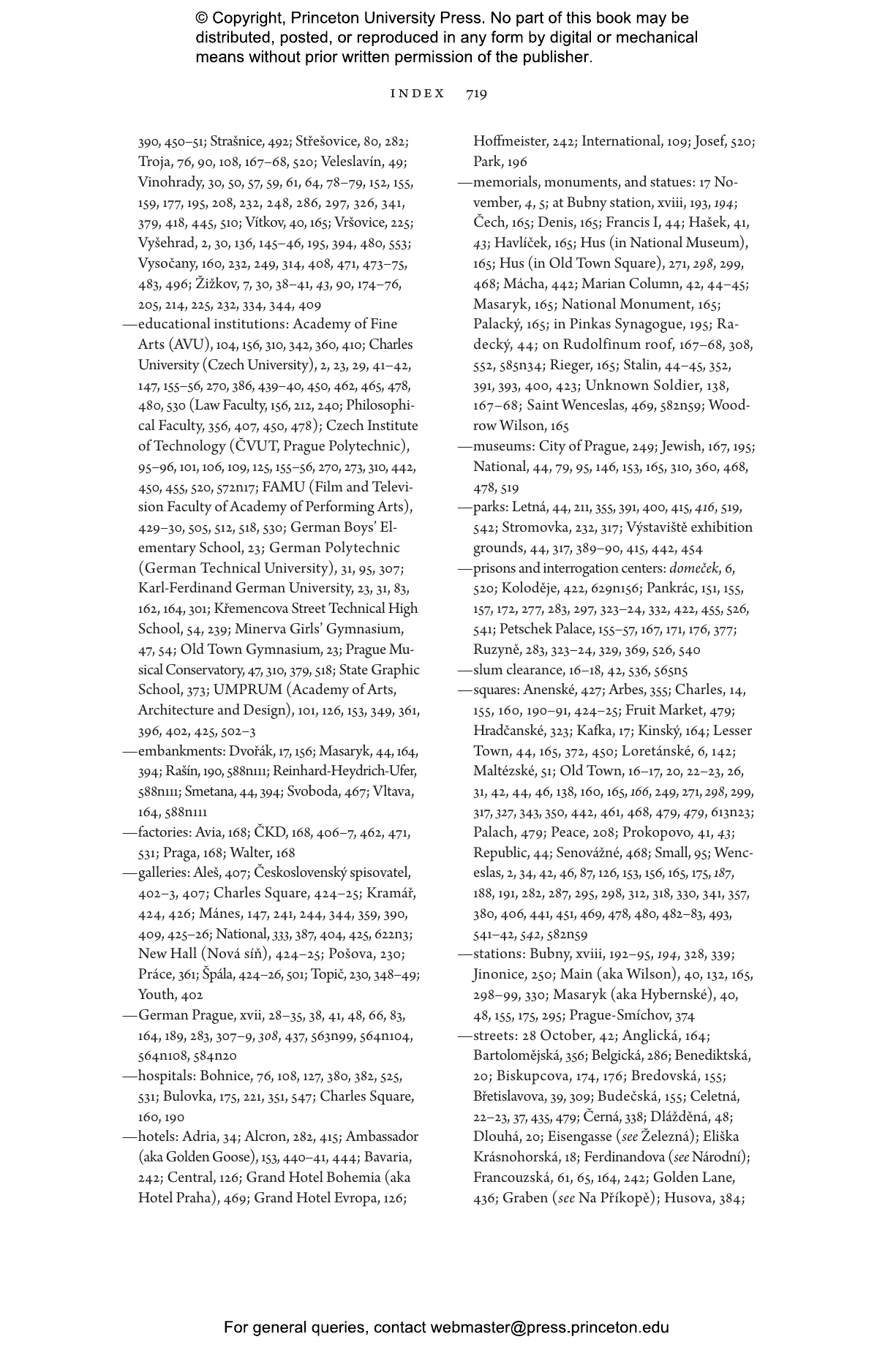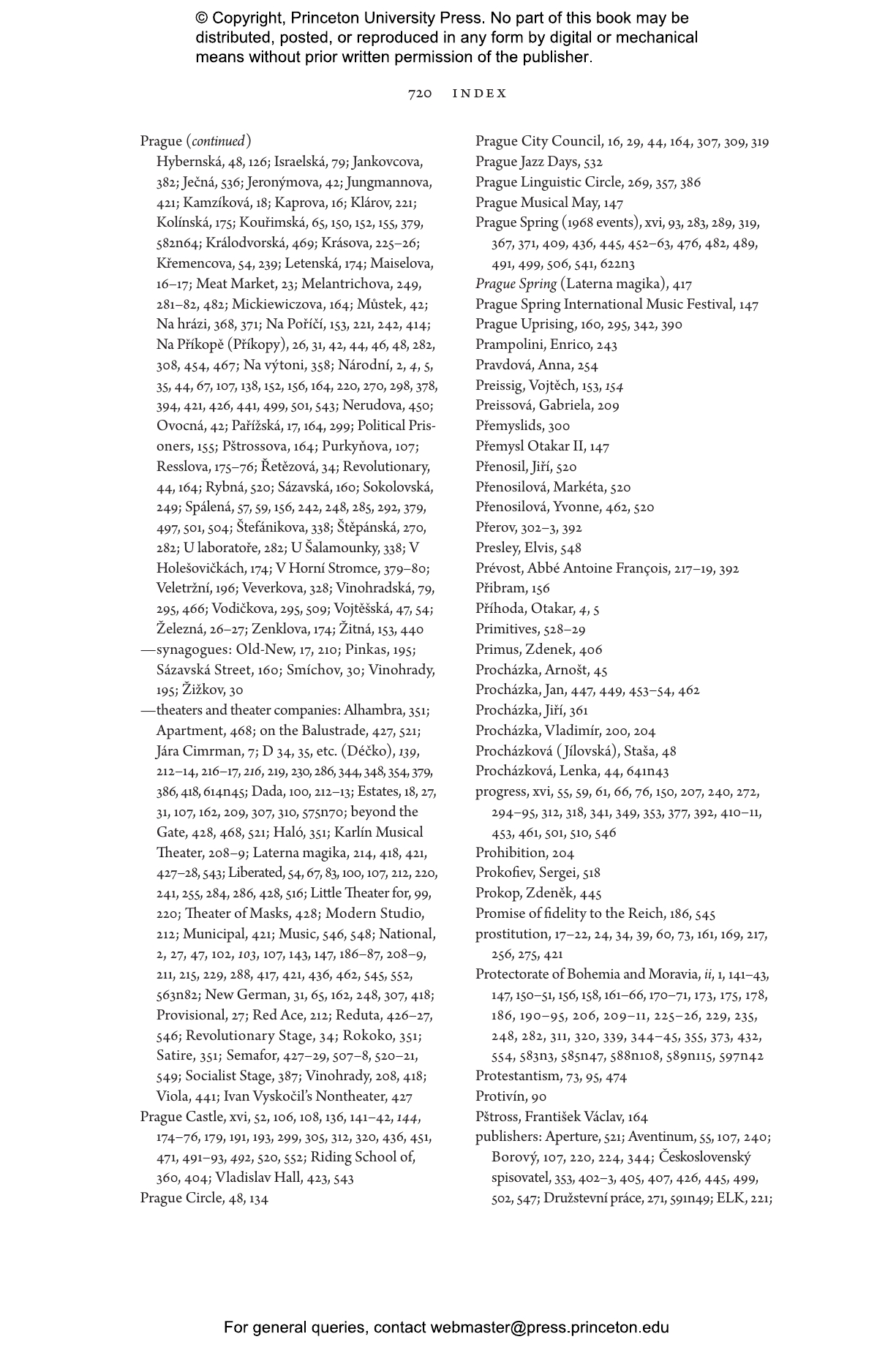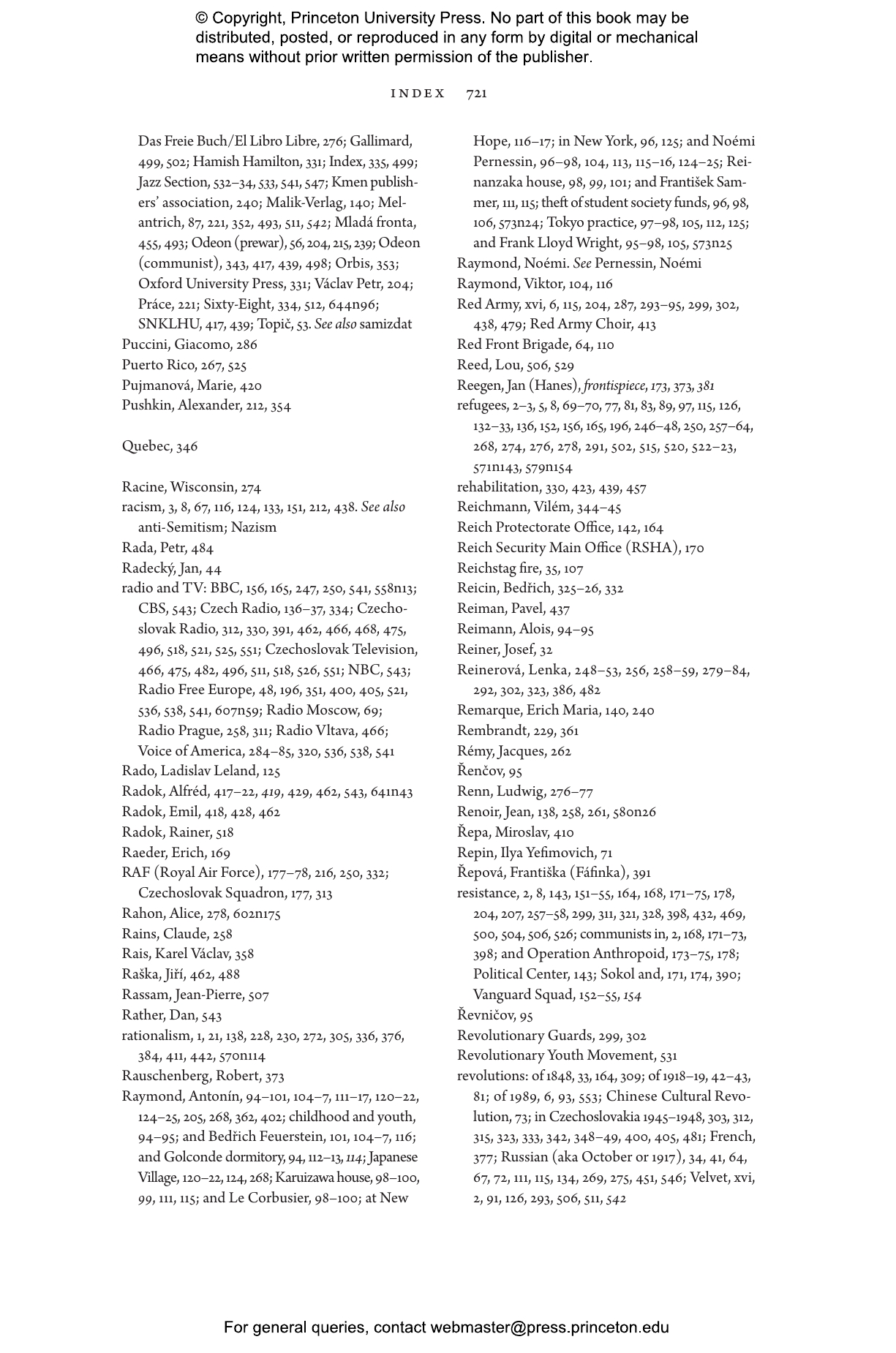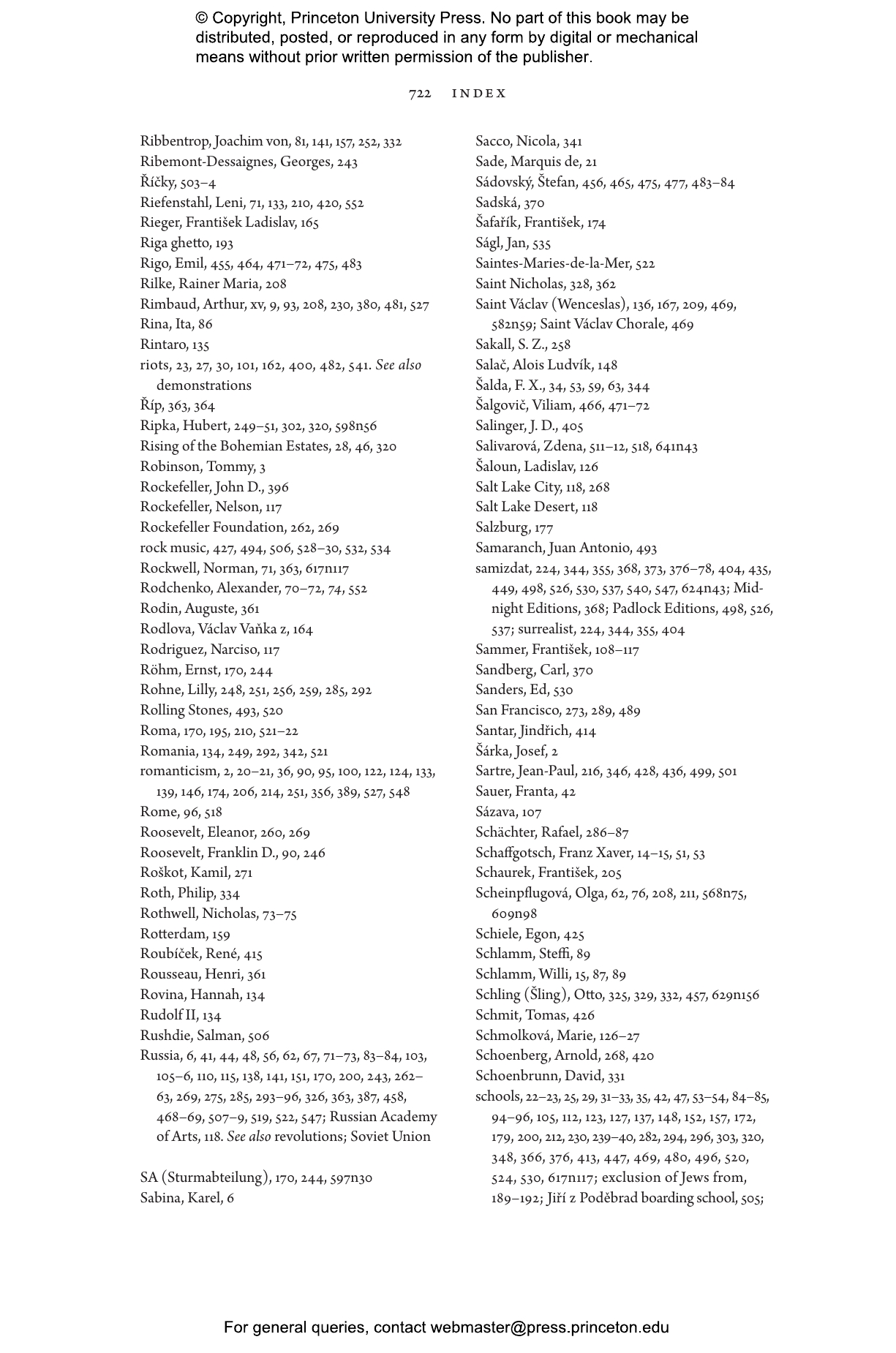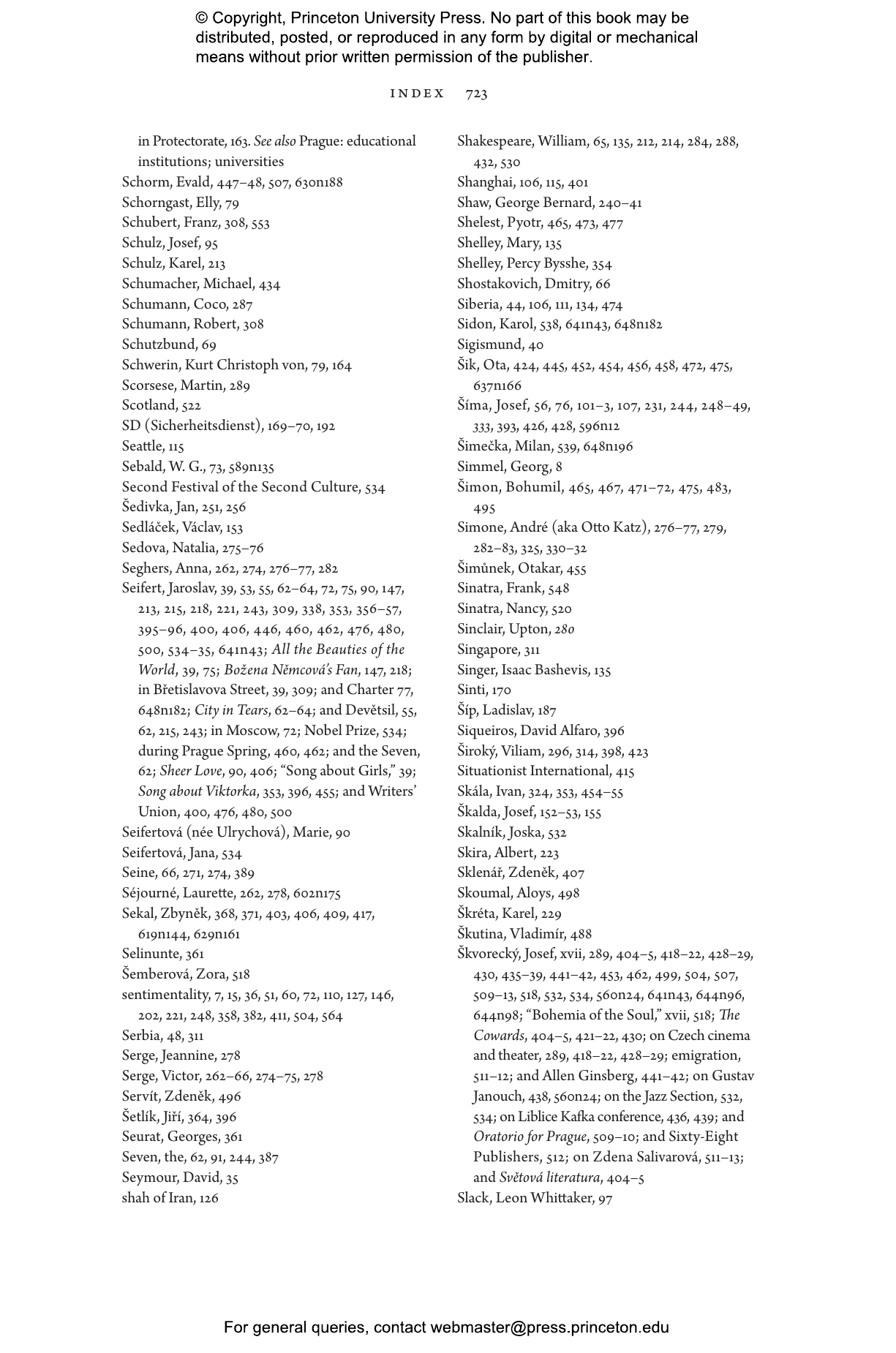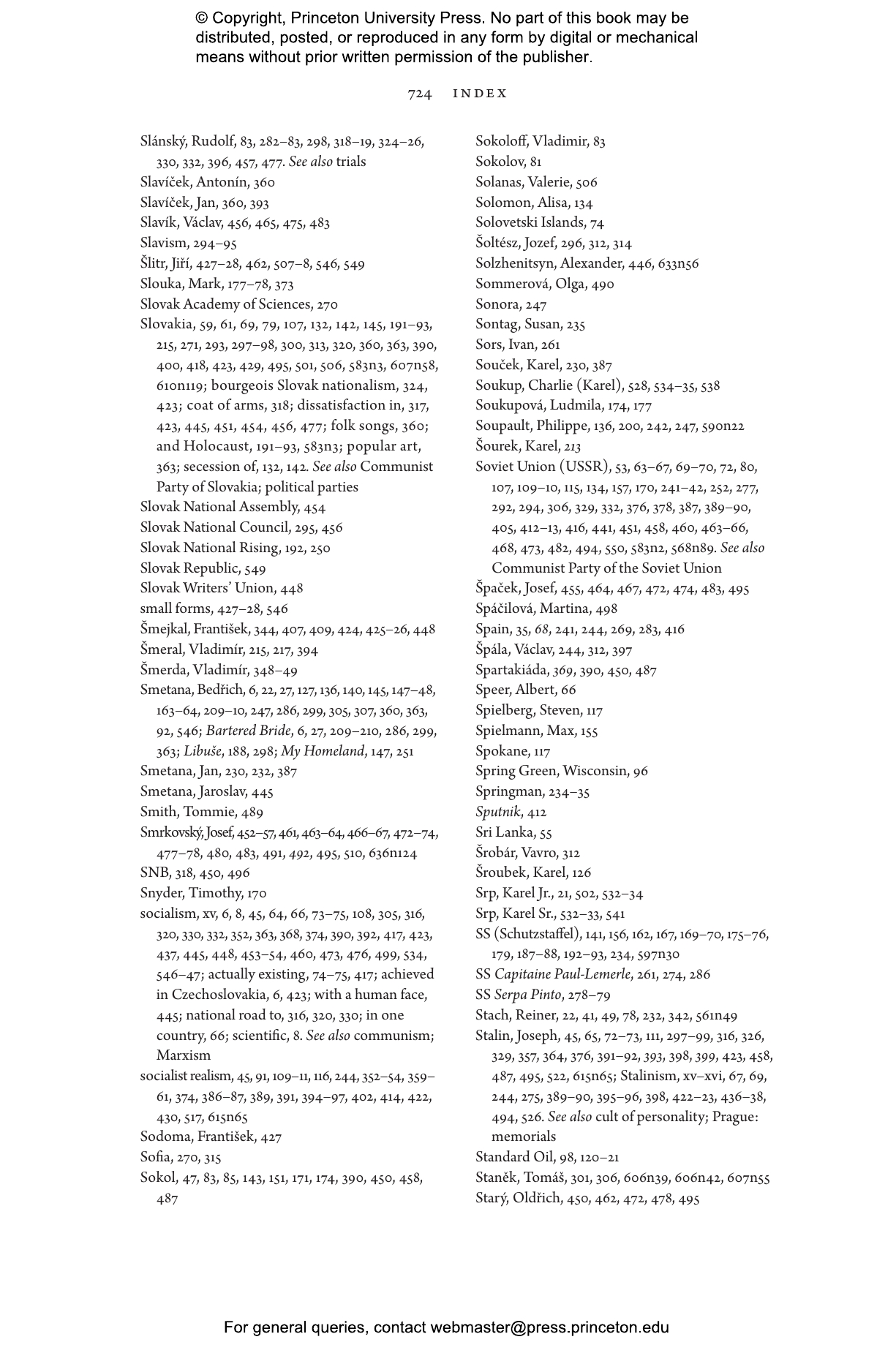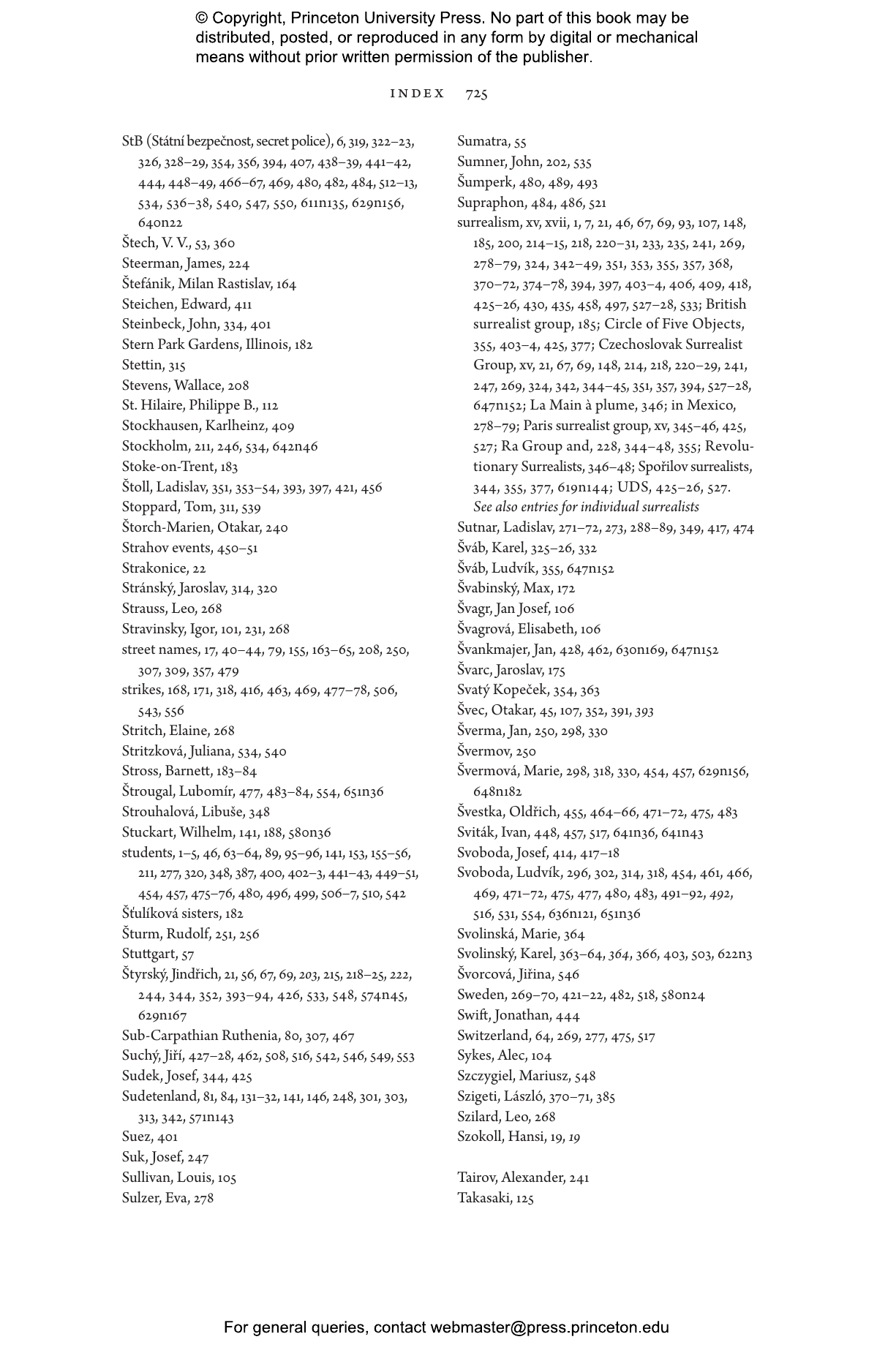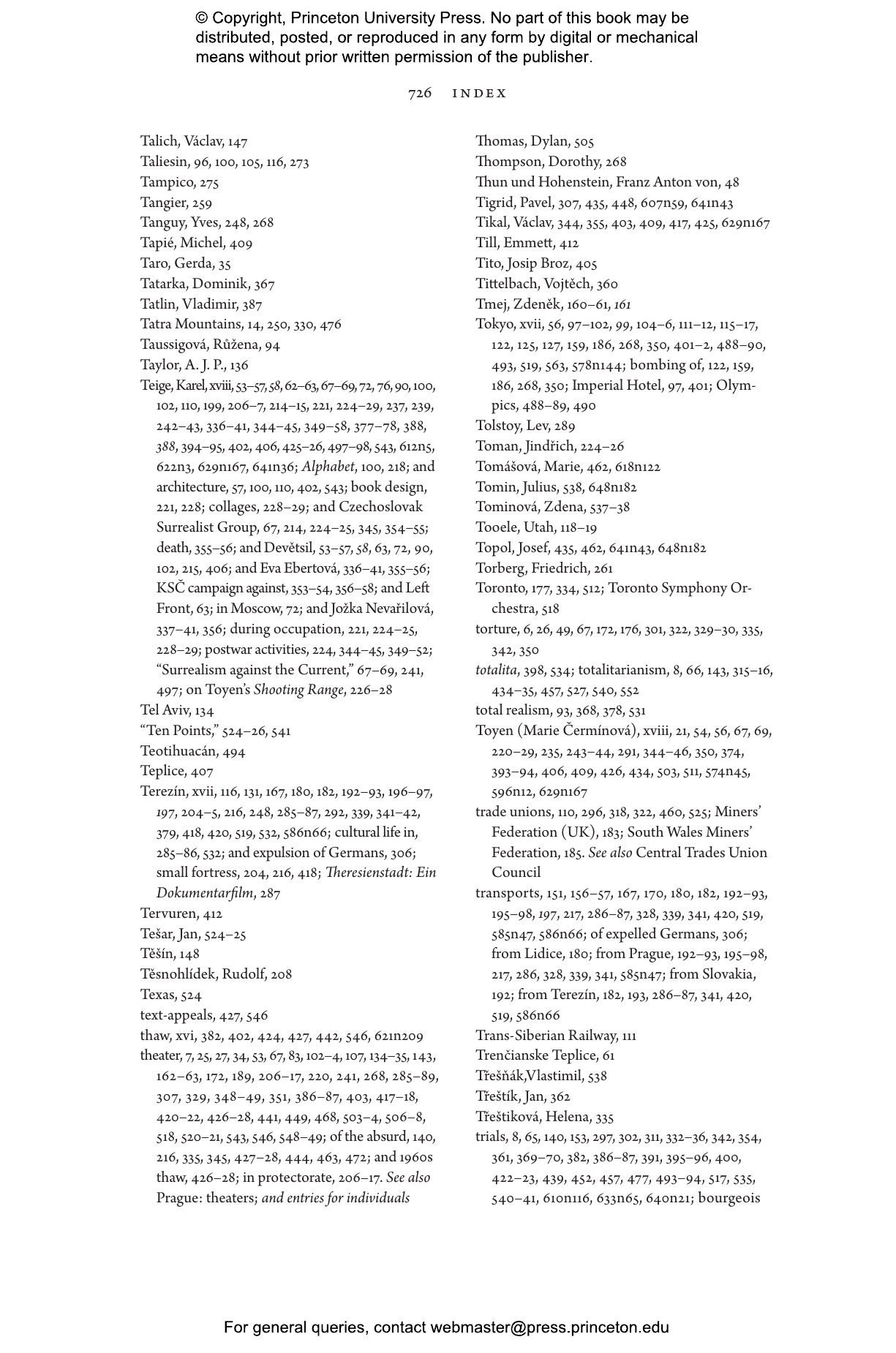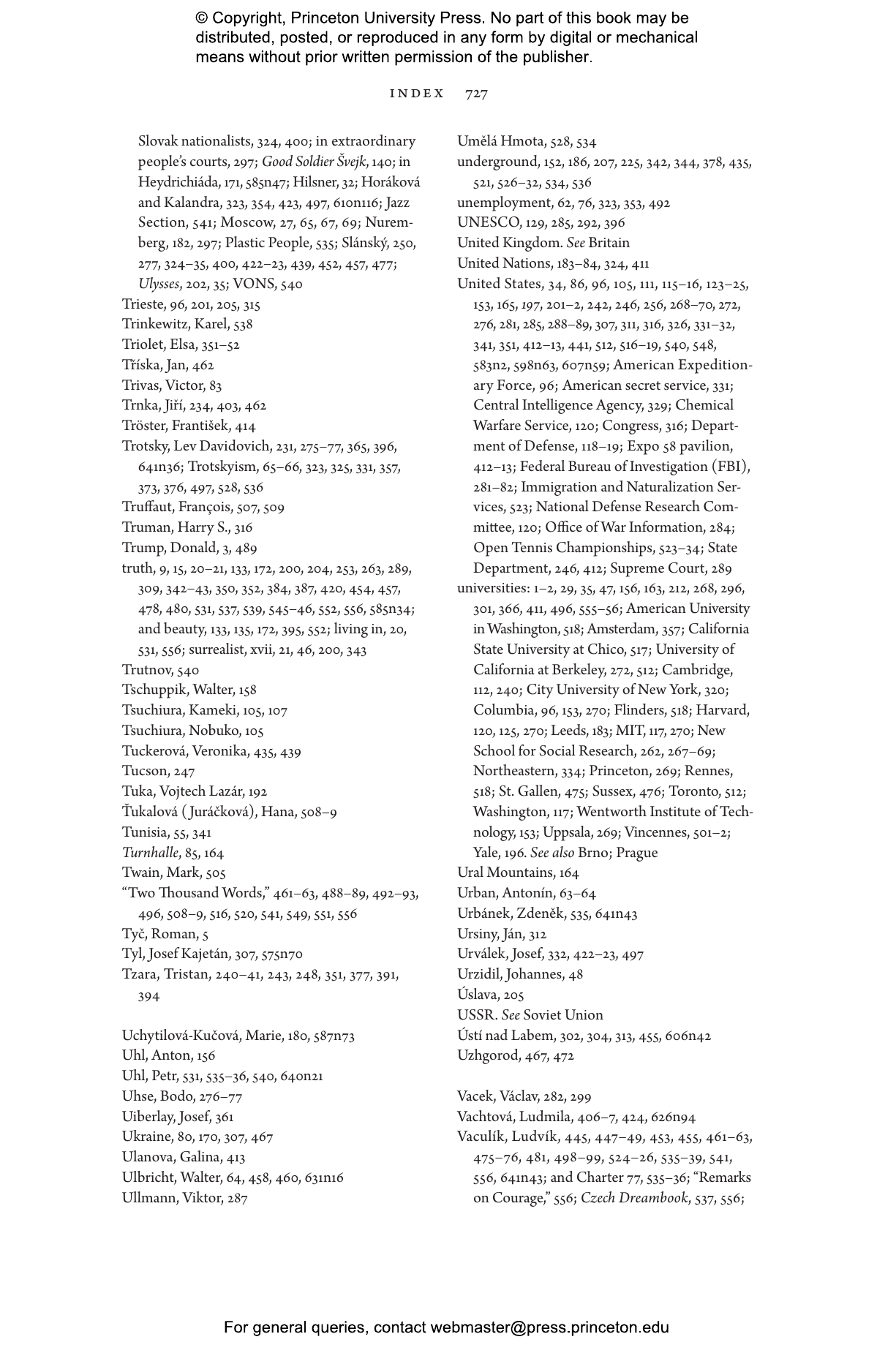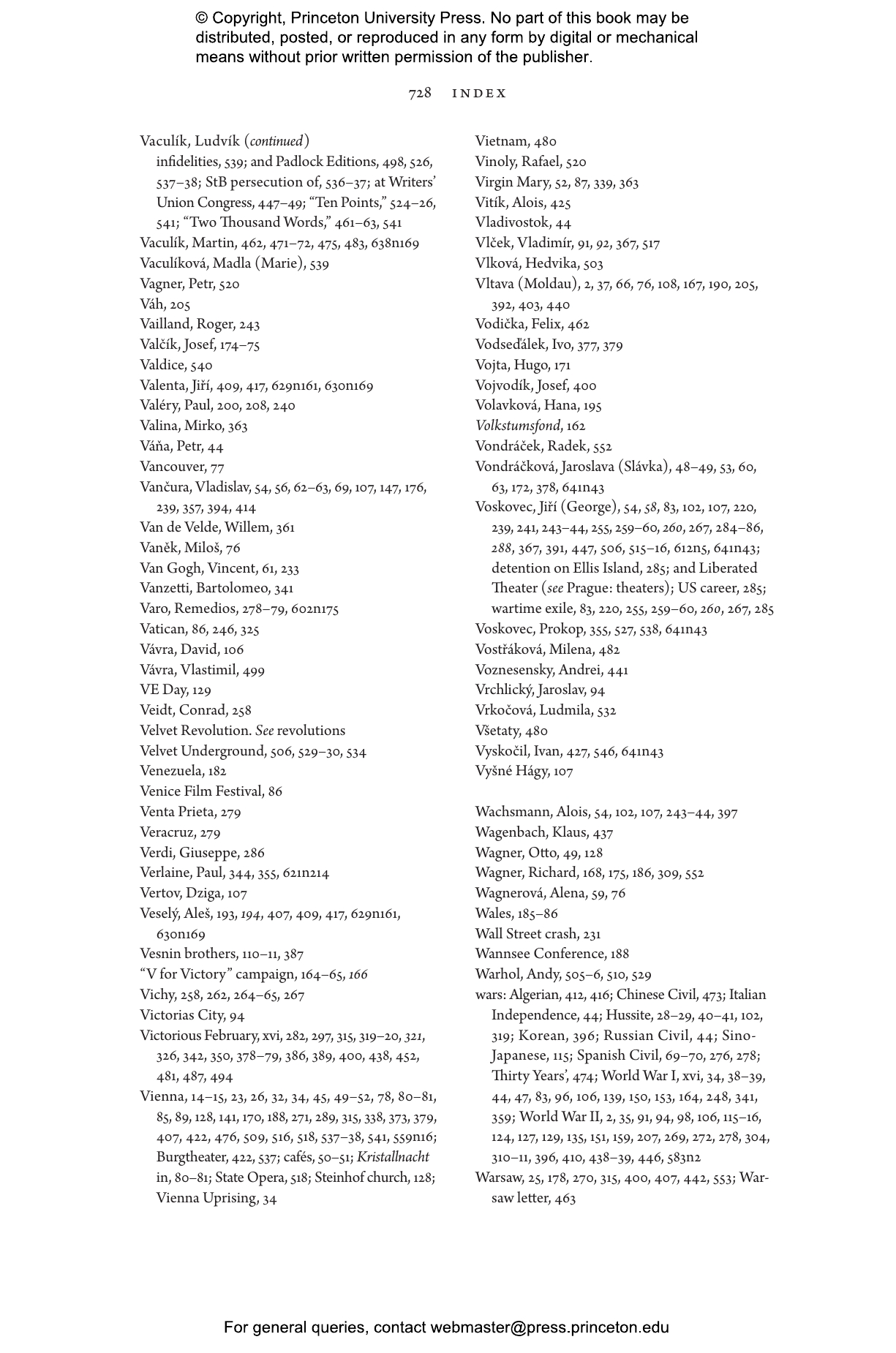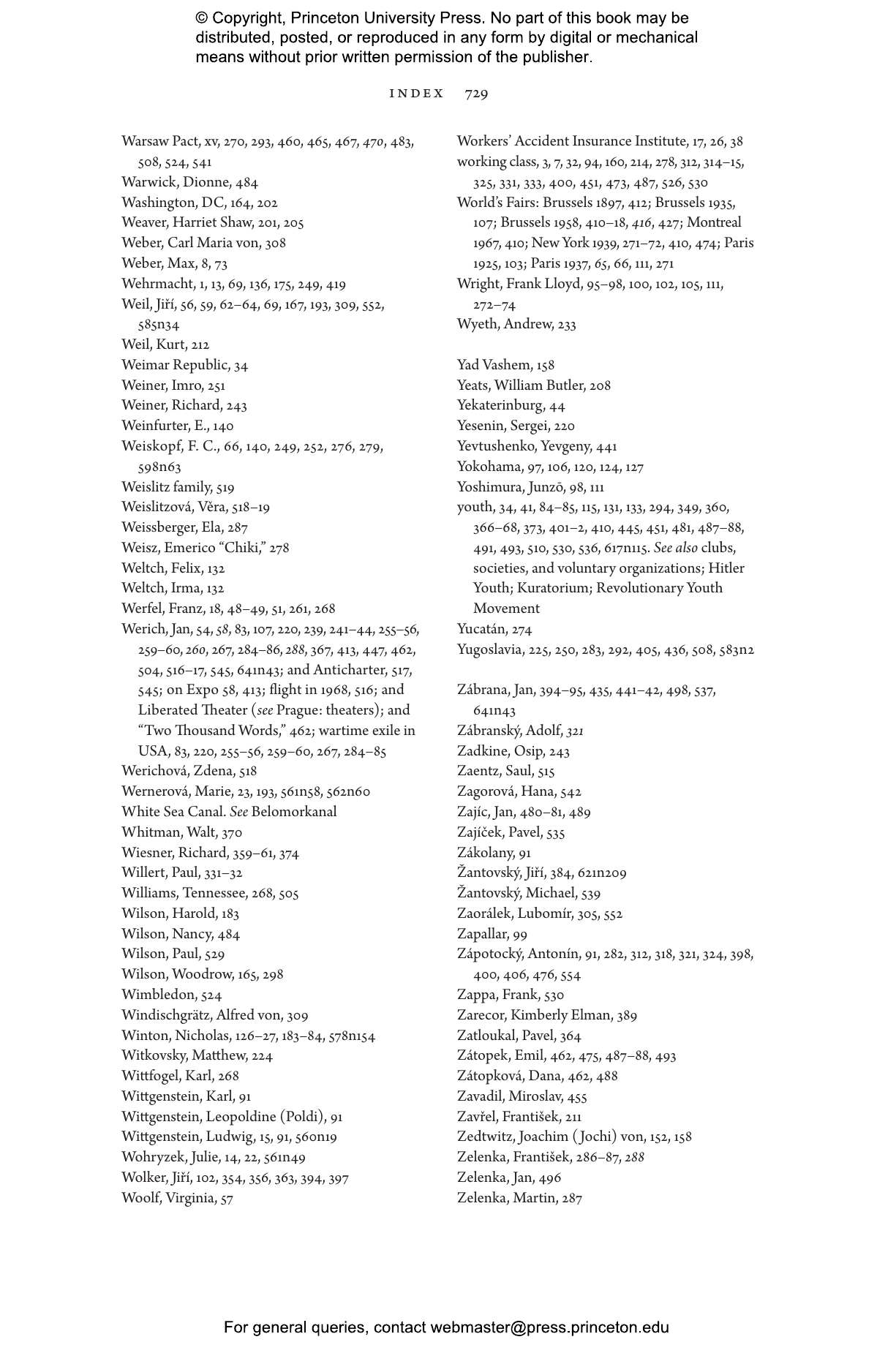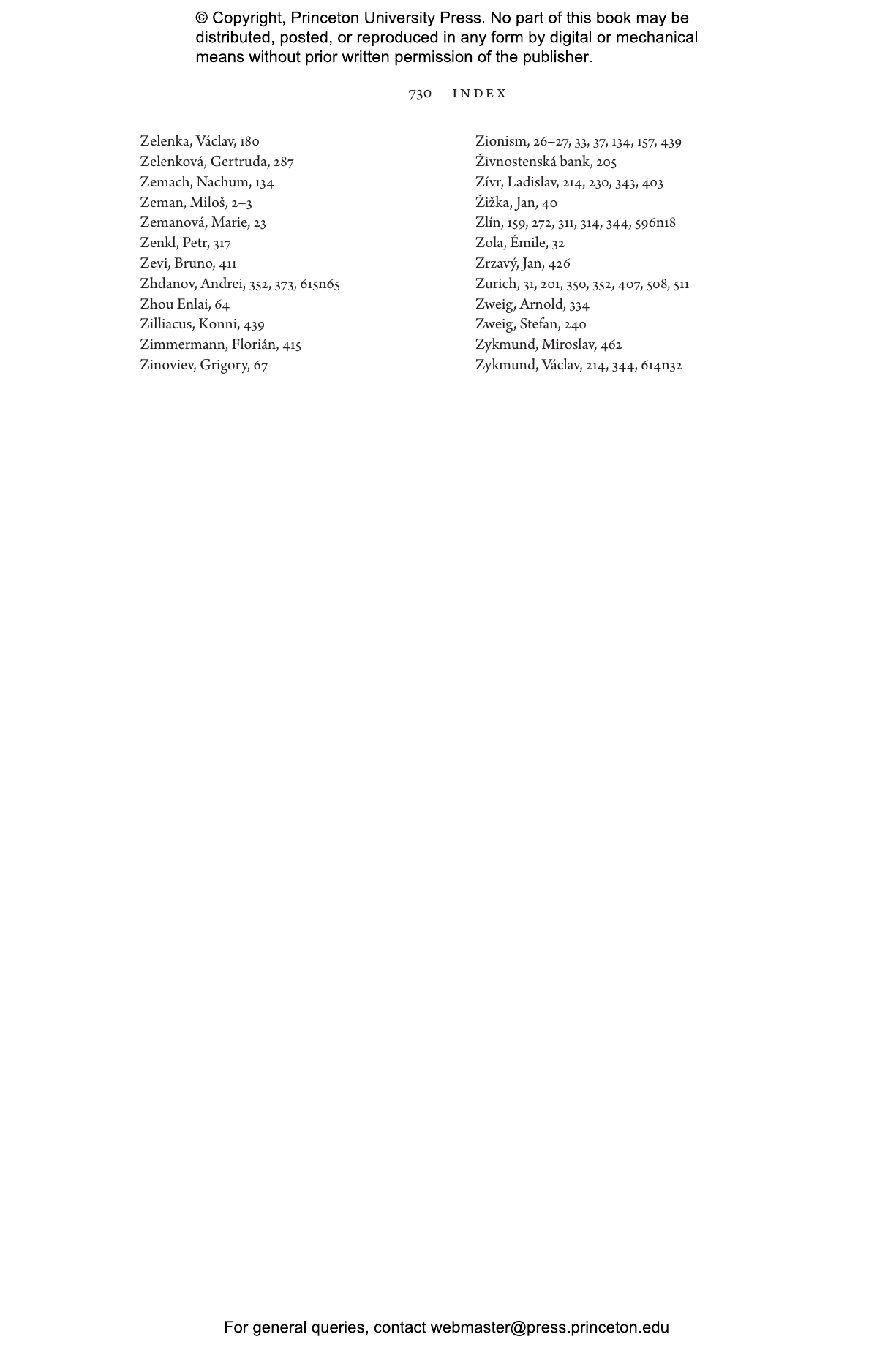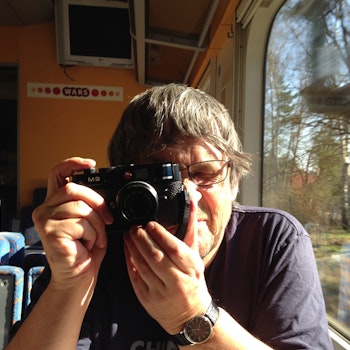Postcards from Absurdistan is a cultural history of Prague from 1938, when the Nazis destroyed Czechoslovakia’s artistically vibrant liberal democracy, to 1989, when the country’s socialist regime collapsed after more than four decades of communist party rule. Derek Sayer shows that Prague’s twentieth century, far from being a story of inexorable progress toward some “end of history,” whether fascist, communist, or democratic, was a tragicomedy of recurring nightmares played out in a land Czech dissidents dubbed Absurdistan. Situated in the eye of the storms that shaped the modern world, Prague holds up an unsettling mirror to the absurdities and dangers of our own times.
In a brilliant narrative, Sayer weaves a vivid montage of the lives of individual Praguers—poets and politicians, architects and athletes, journalists and filmmakers, artists, musicians, and comedians—caught up in the crosscurrents of the turbulent half century following the Nazi invasion. This is the territory of the ideologist, the collaborator, the informer, the apparatchik, the dissident, the outsider, the torturer, and the refugee—not to mention the innocent bystander who is always looking the other way and Václav Havel’s greengrocer whose knowing complicity allows the show to go on. Over and over, Prague exposes modernity’s dreamworlds of progress as confections of kitsch.
In a time when democracy is once again under global assault, Postcards from Absurdistan is an unforgettable portrait of a city that illuminates the predicaments of the modern world.
Awards and Recognition
- Winner of the Canadian Jewish Literary Award for Scholarship
- Finalist for the PROSE Award in European History, Association of American Publishers
"±·±đł¦±đ˛ő˛ő˛ą°ů˛â."—Library Journal starred review
"Fascinating and capacious, Postcards from Absurdistan surveys Prague’s anguished recent past, raising concerns for its future amid new global conflicts and challenges."—Foreword Reviews
"Intriguing. . . . Covering literature, the graphic arts, music, philosophy, architecture, and photography, Sayer profiles a staggering cast of artists and intellectuals."—Publishers Weekly
"Informative and illuminating."—Alena Dvořáková, Dublin Review of Books
"[A] kaleidoscopic romp across five decades of intellectual, artistic, cultural, and political foment and creativity in Prague, from the Nazi Anschluss to the collapse of communism. . . . The book offers a magnificent and expansive collection of close readings, insightful narratives, obscure gems, and sometimes-funny, sometimes-wrenching reflections on Prague's cultural elites. . . . Postcards from Absurdistan represents the crowning achievement of Professor Sayer's prodigious scholarship on Czech modernity."—2023 Canadian Jewish Literary Awards jury citation
"Sayer chronicles a world of the absurd but also contributes to it. Essentially he provides an episodic celebration of the Czech contribution to (post)modern civilization, with some brilliant aperçus."—R.J.W. Evans, Common Knowledge
"A tour de force of Czech cultural history. . . . This eminently readable book . . . is a well-balanced introduction to the Czech twentieth century for students and the wider public, and also offers many insights for expert scholars. Derek Sayer has written a deserving conclusion to his Czech trilogy."—Felic Jeschke, CEU Review of Books
"Beginning with the intimate relationship between Franz Kafka and the Czech feminist, journalist, and writer Milena Jesenská, the book embarks on a colorful journey through the fates of hundreds of figures of Bohemian cultural life between 1918 and 1989. For Sayer, Prague is a loose starting point for the interweaving of the lives of the actors in his book, wherever these took place. . . . A literarily brilliant and empirically rich collage of stories from the history of Czech culture in the twentieth century."—Rudolf Kučera, Journal of Modern History
"The book’s main title is Postcards from Absurdistan, and the sense of absurdity is largely delivered. Yet the story branches out so internationally – from Prague to Paris to Moscow to Tokyo, India, and the Utah desert, among other places – and the absurdity presented seems so evenly shared, that it can make the world in general appear an Absurdistan. It very likely is, yet there is a particular style of absurdity found in 20th century Central and Eastern Europe, whether nationalist, communist, or a combination of the two, which the book effectively presents and defines."—Michael Stein, Transitions
“Like Walter Benjamin’s Arcades Project on nineteenth-century Paris, Derek Sayer’s book on twentieth-century Prague brilliantly mixes an infinity of small worlds that reflect the greater world of an enigmatic and fascinating city.”—Jan Baetens, author of Rebuilding Story Worlds: “The Obscure Cities” by Schuiten and Peeters
“Postcards from Absurdistan is a compelling account of the official and the everyday dramas of twentieth-century Prague. Derek Sayer evokes the farce, satire, tragedy, and absurdity of the fragments that create history, masterfully balancing reality and the myths constructed by visual artists, writers, dramatists, and composers.”—Marta Filipová, author of Modernity, History, and Politics in Czech Art
“An extraordinary entrance ticket to modern Czech culture—erudite, independent, fascinating!”—Jindřich Toman, author of Czech Cubism and the Book
“Brilliant and addictively readable, Postcards from Absurdistan is at once an intimate history of Prague and a lively retelling of the story of the twentieth century.”—Paulina Bren, author of The Greengrocer and His TV: The Culture of Communism after the 1968 Prague Spring
